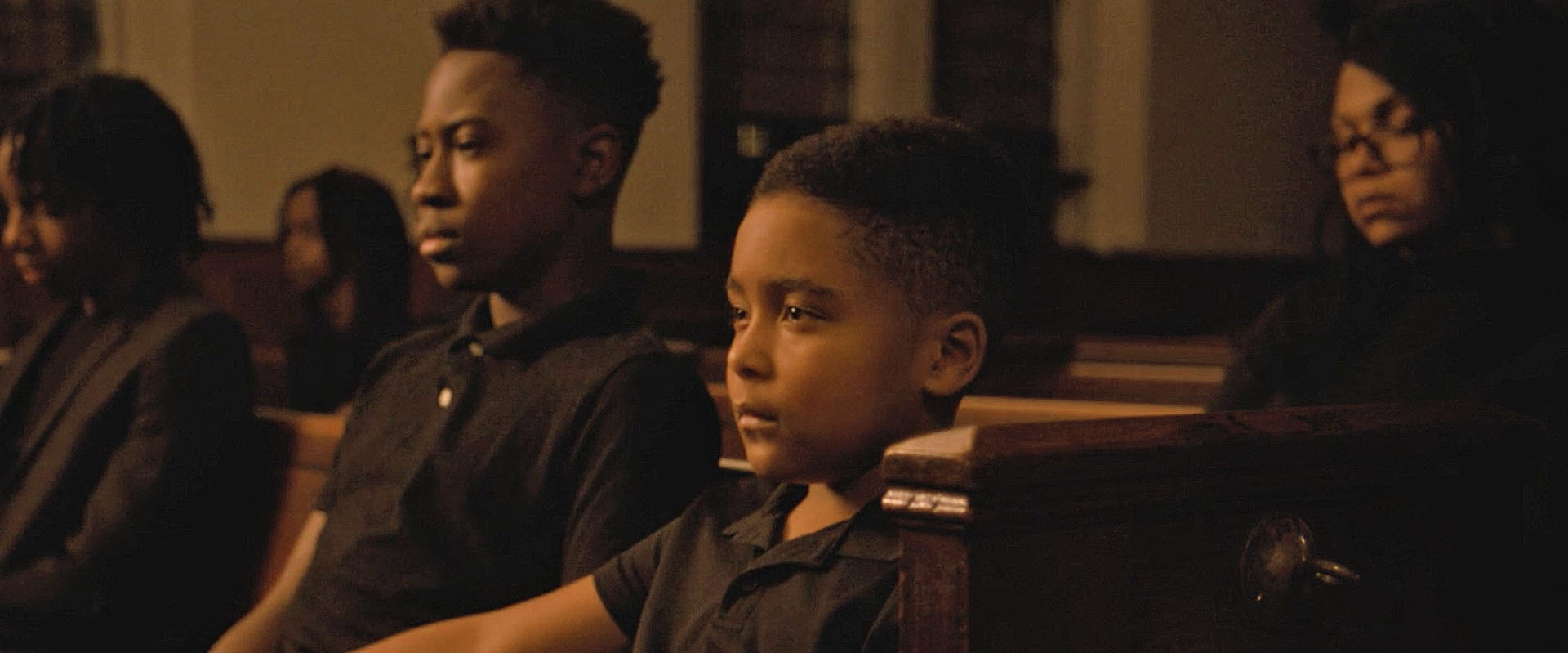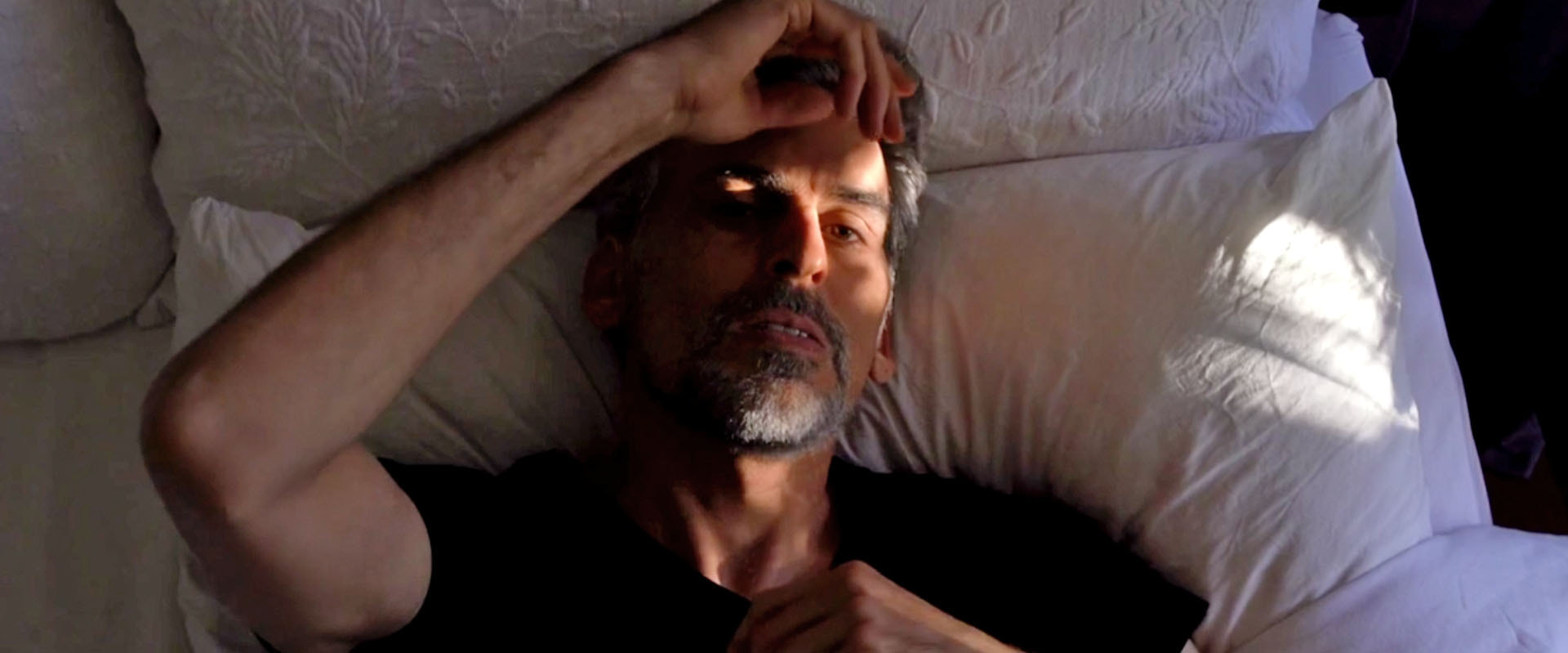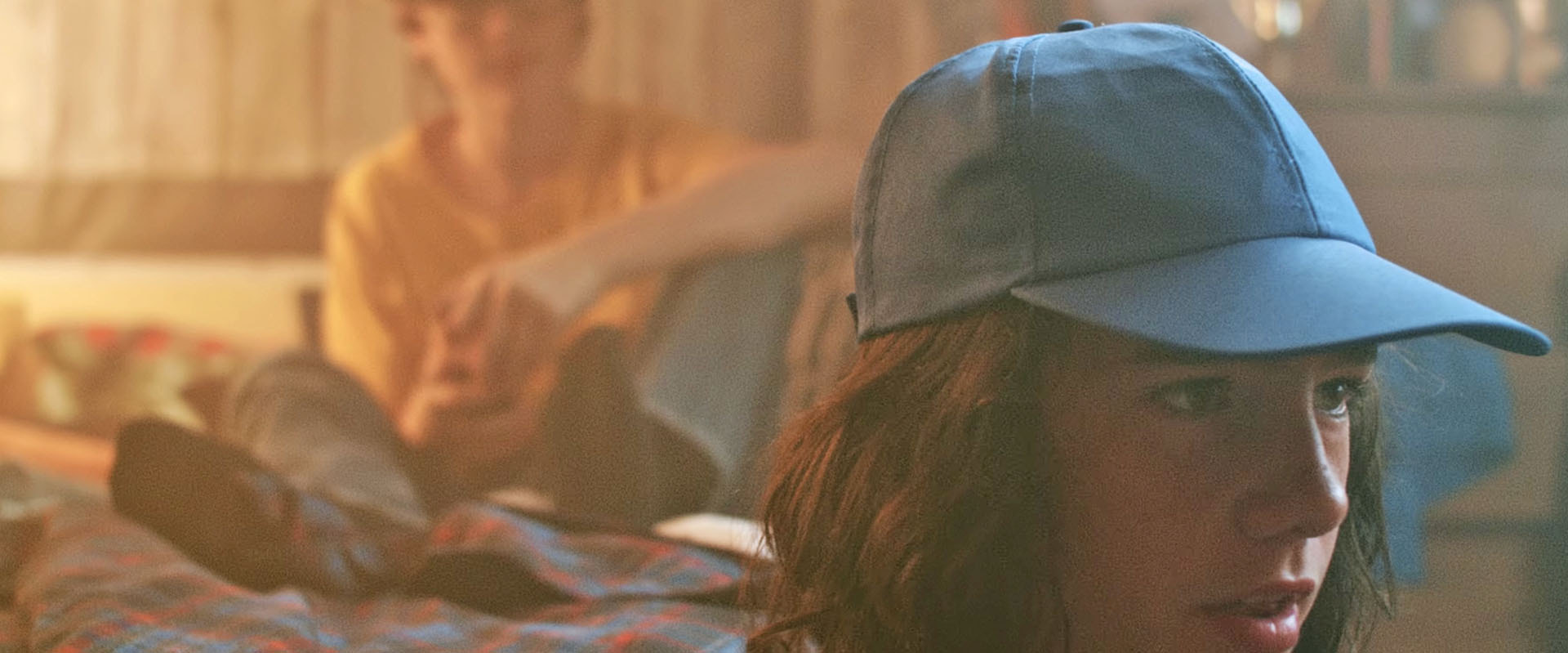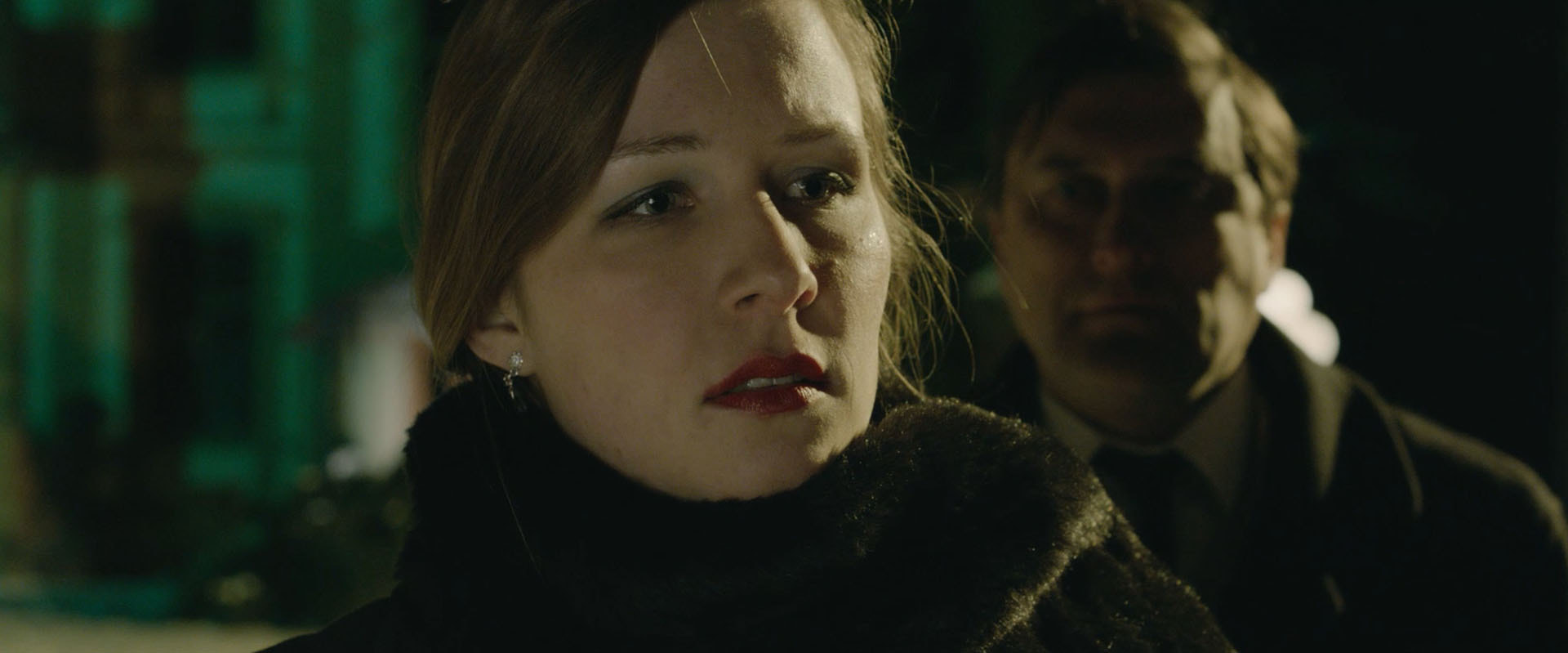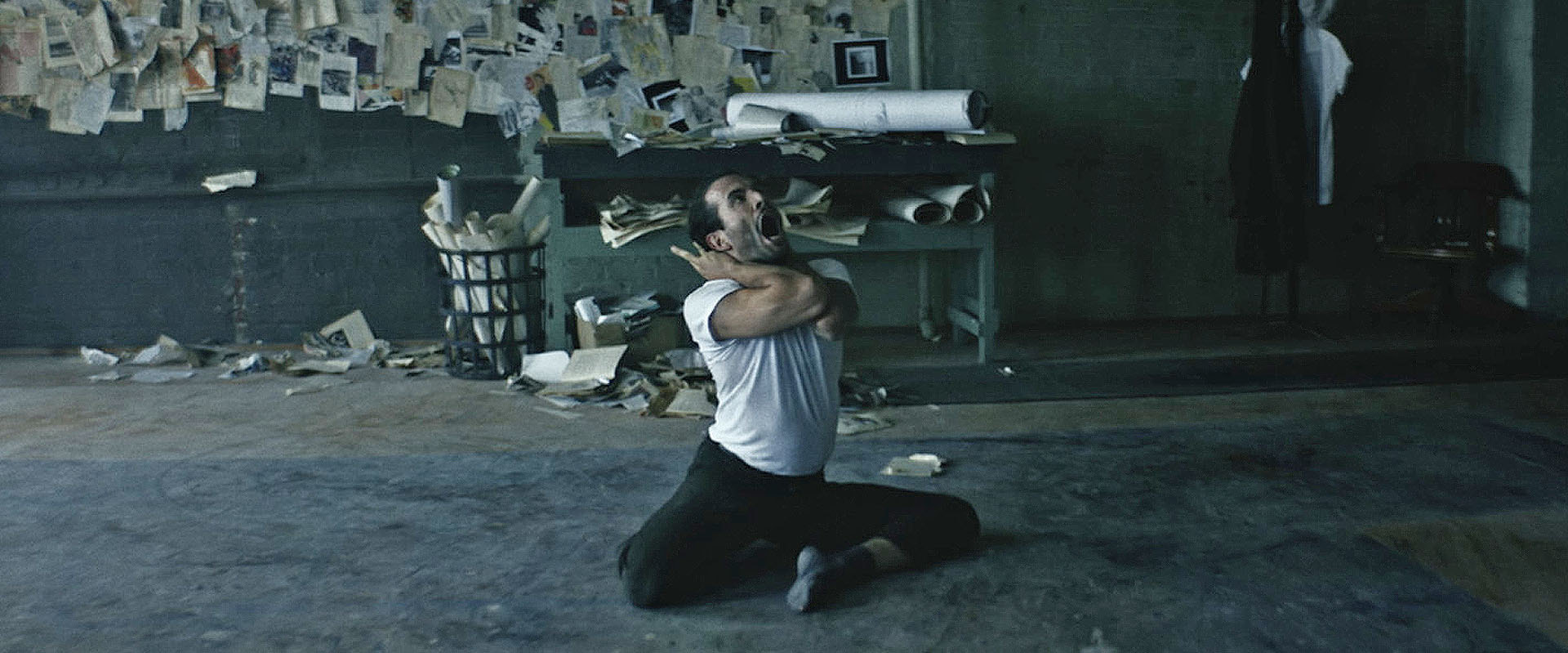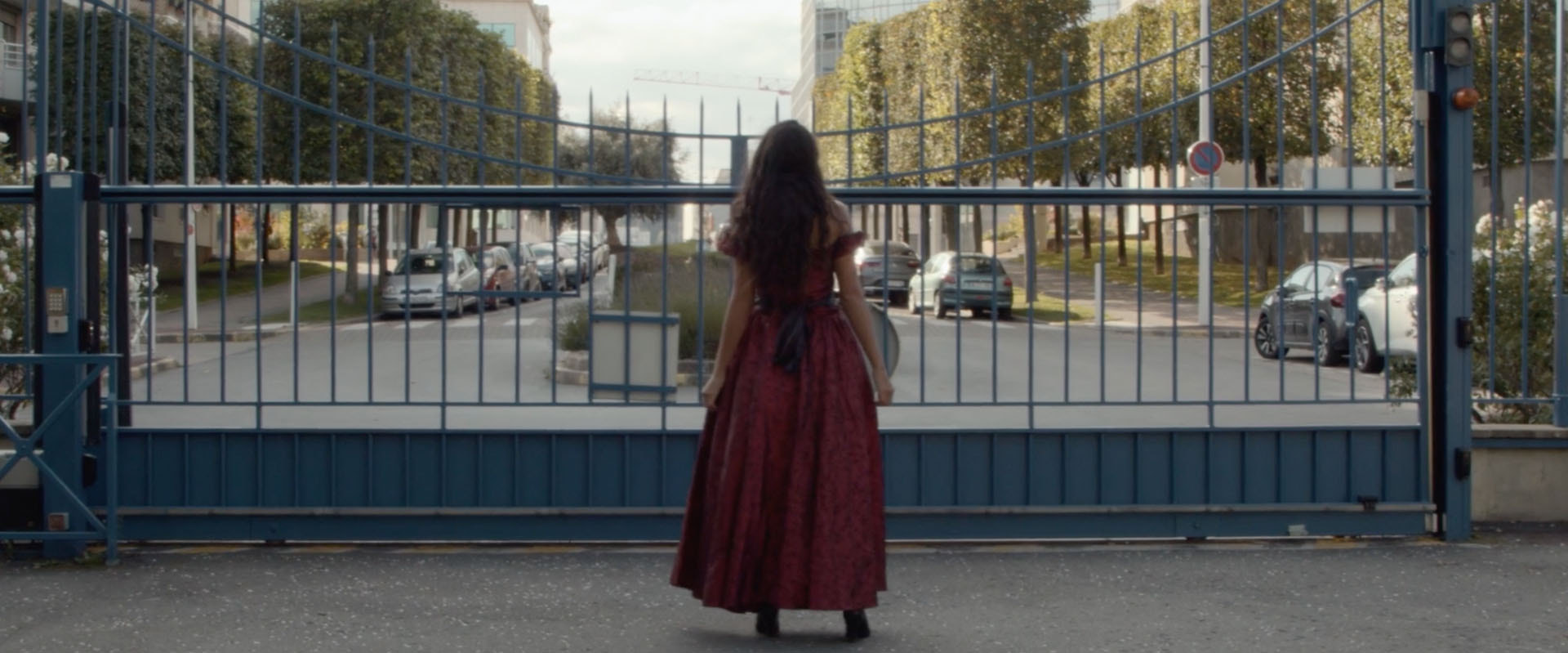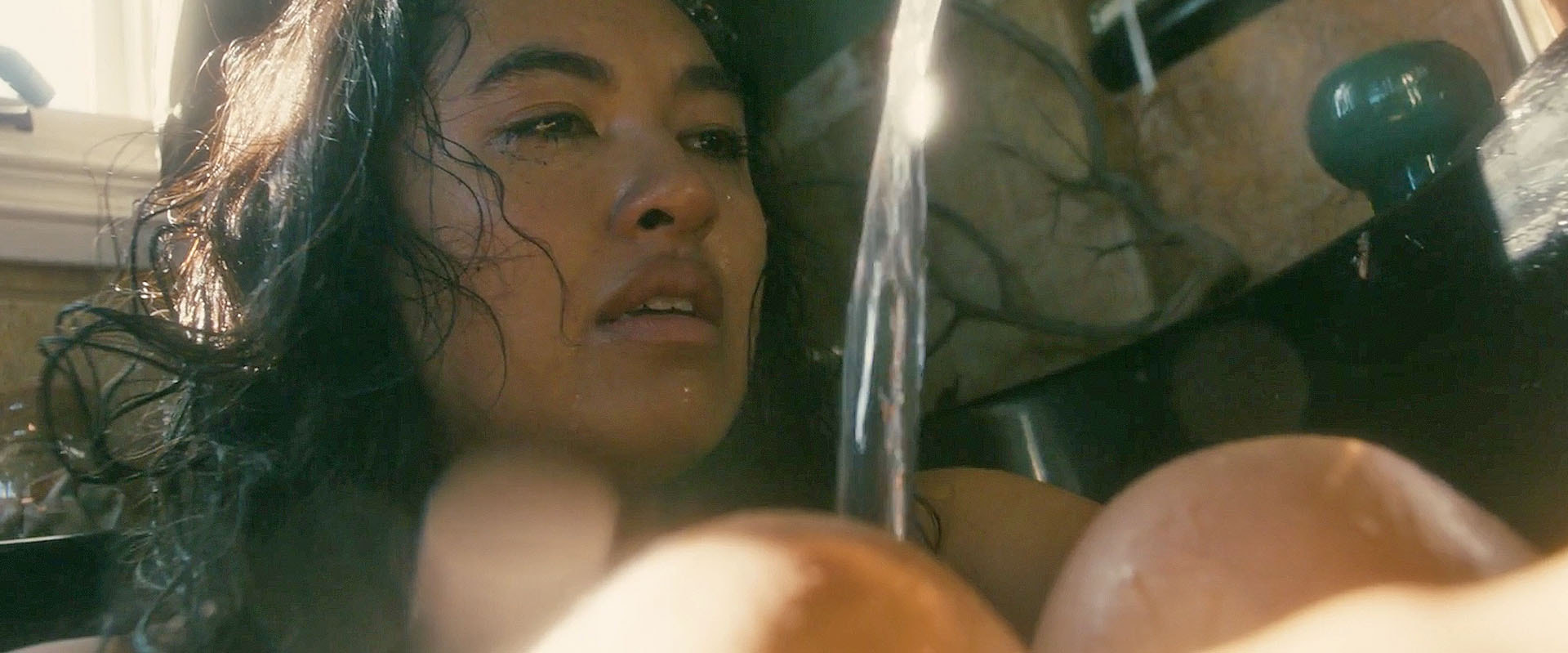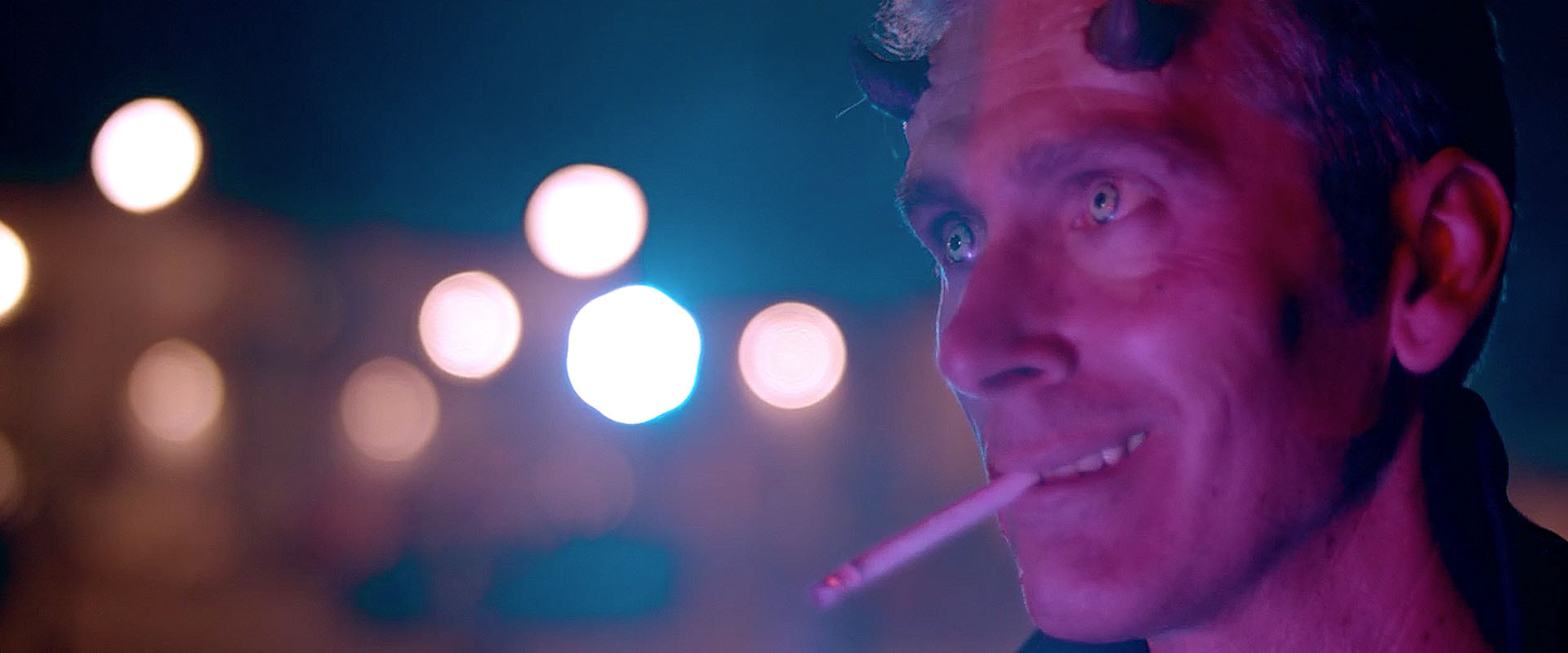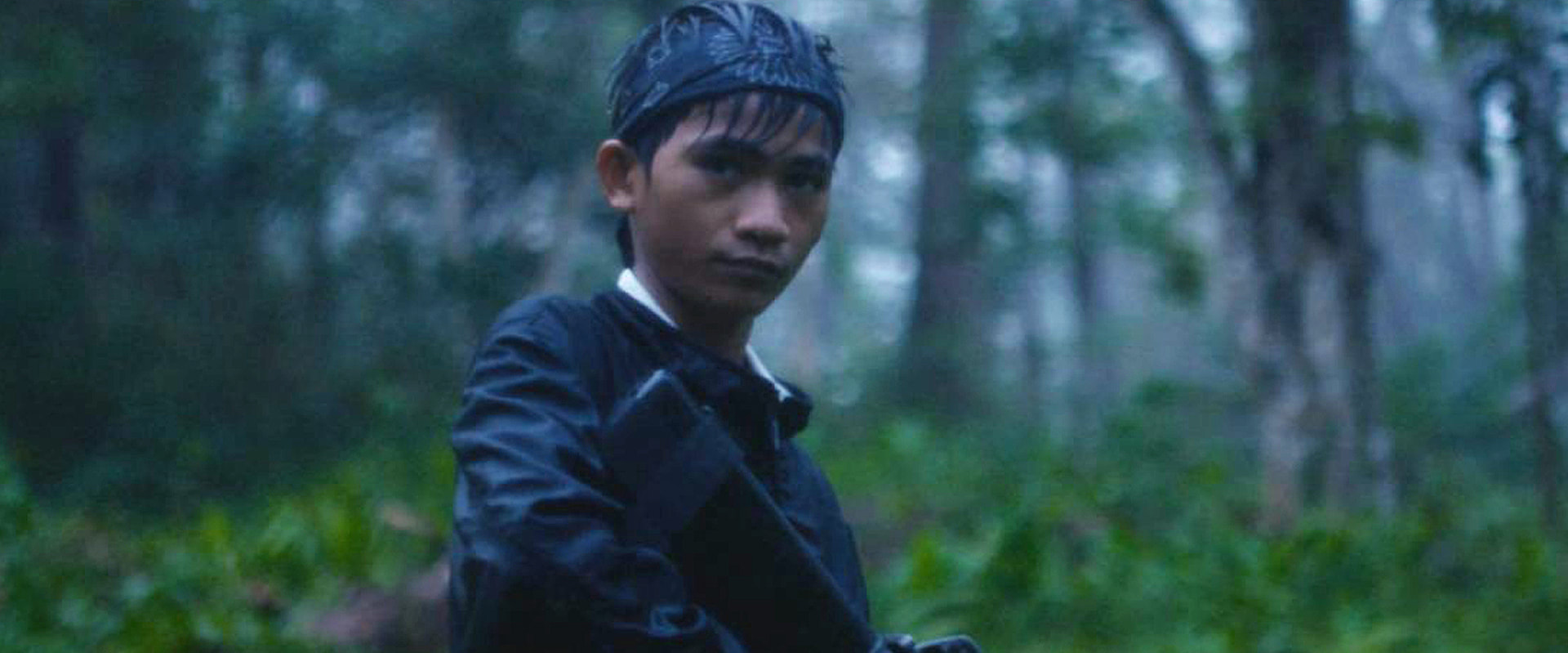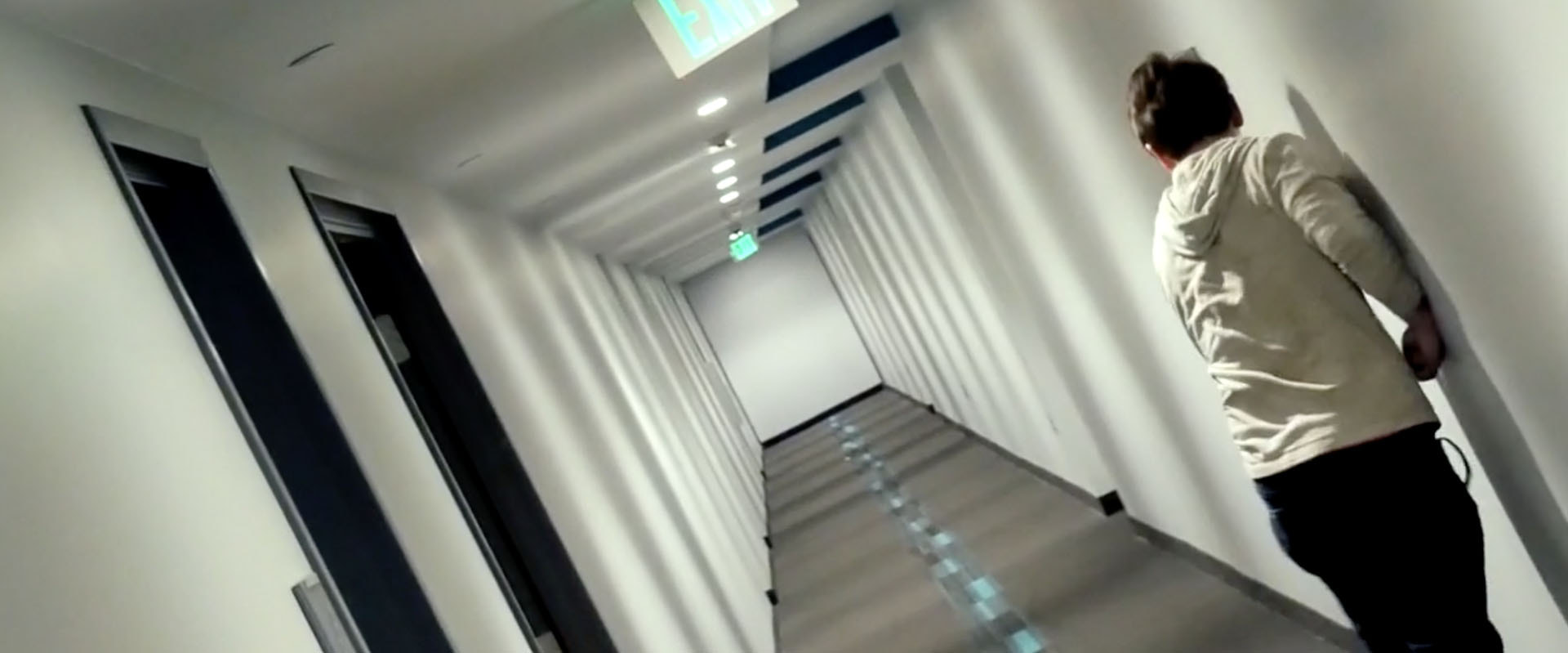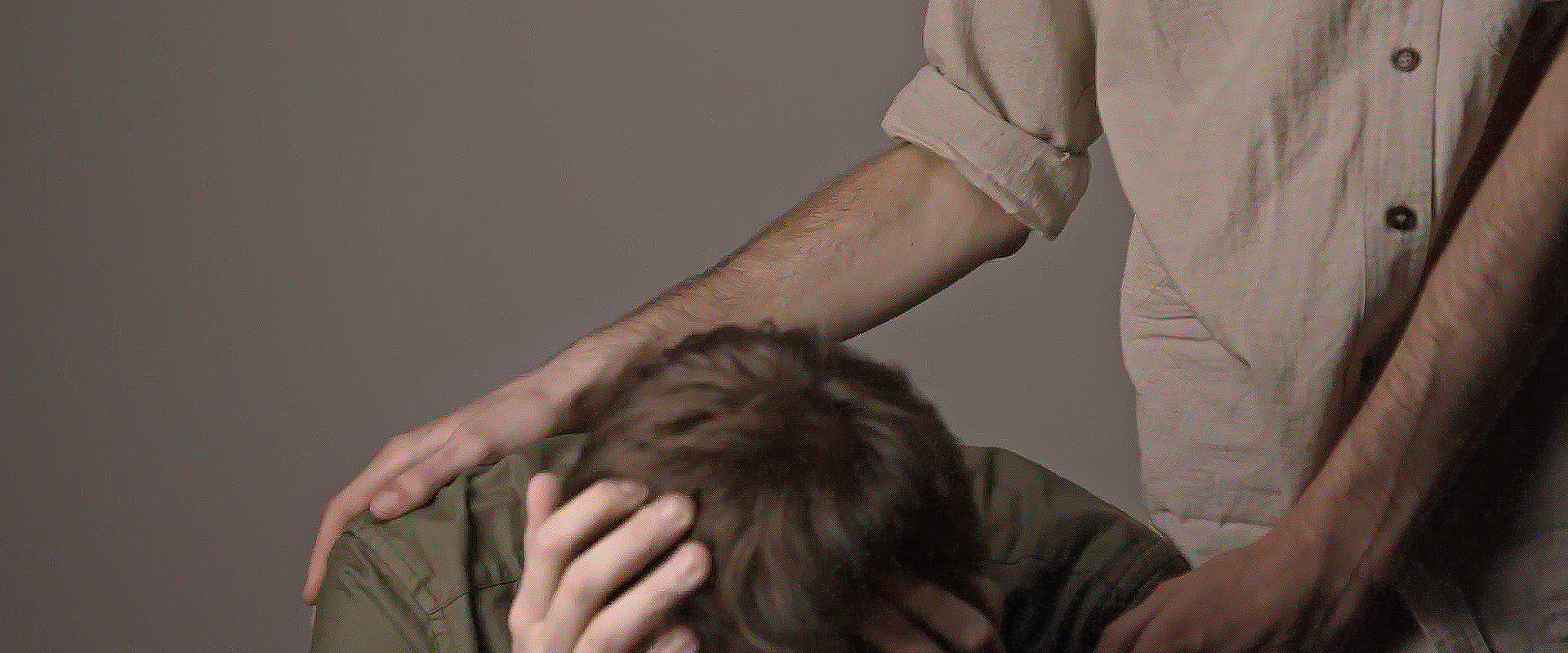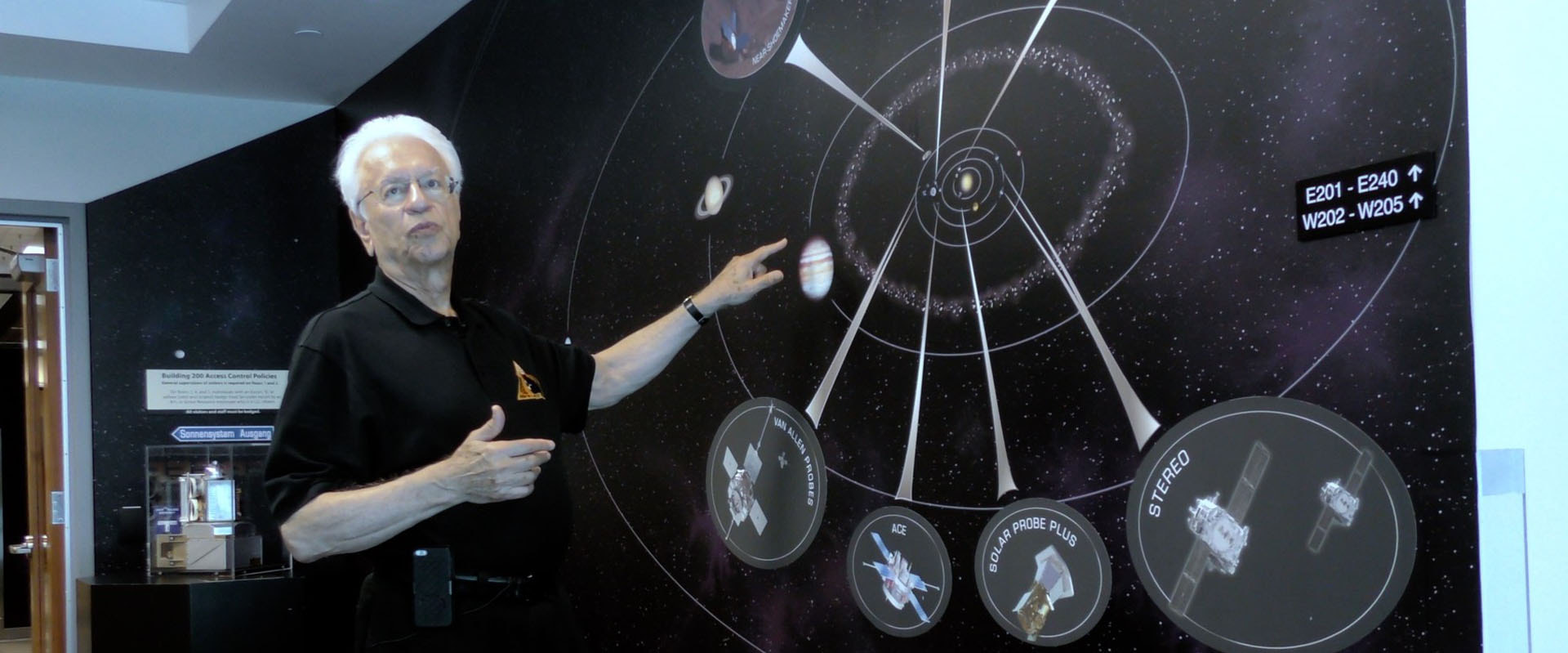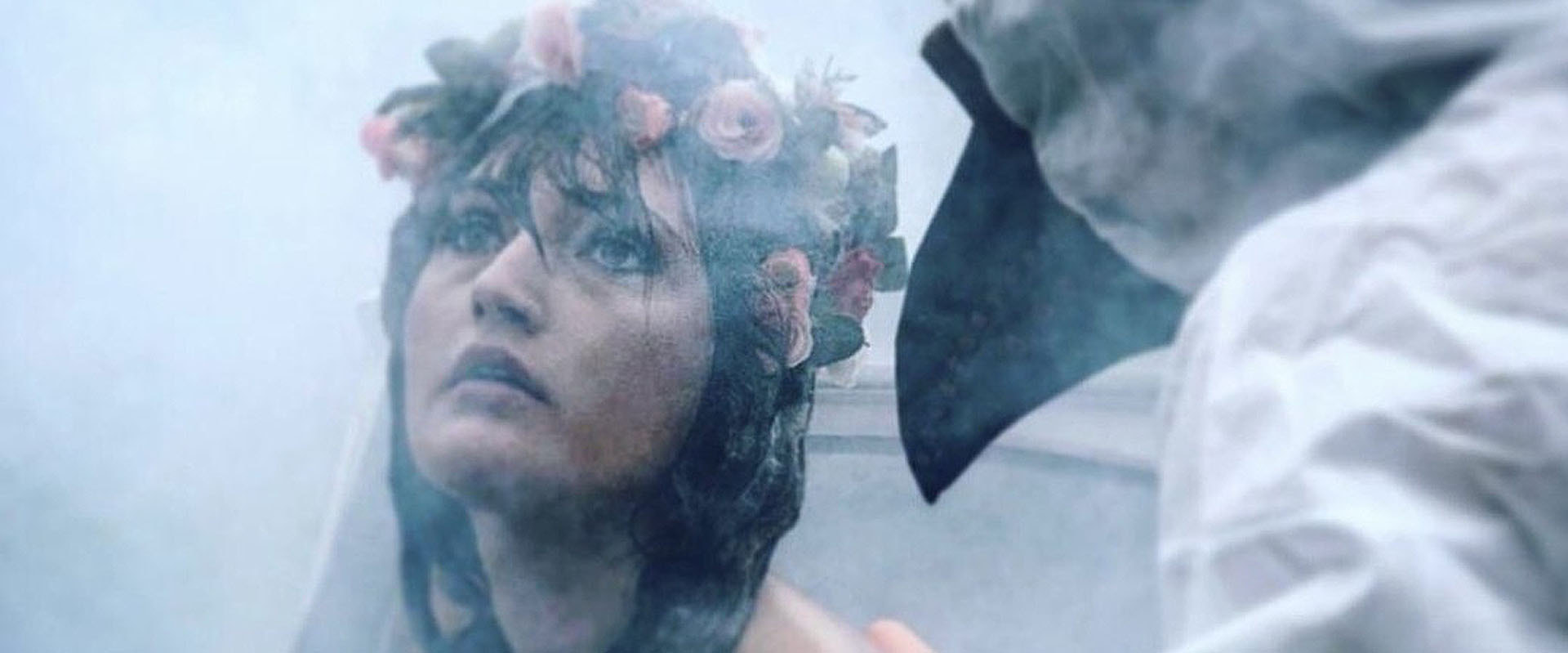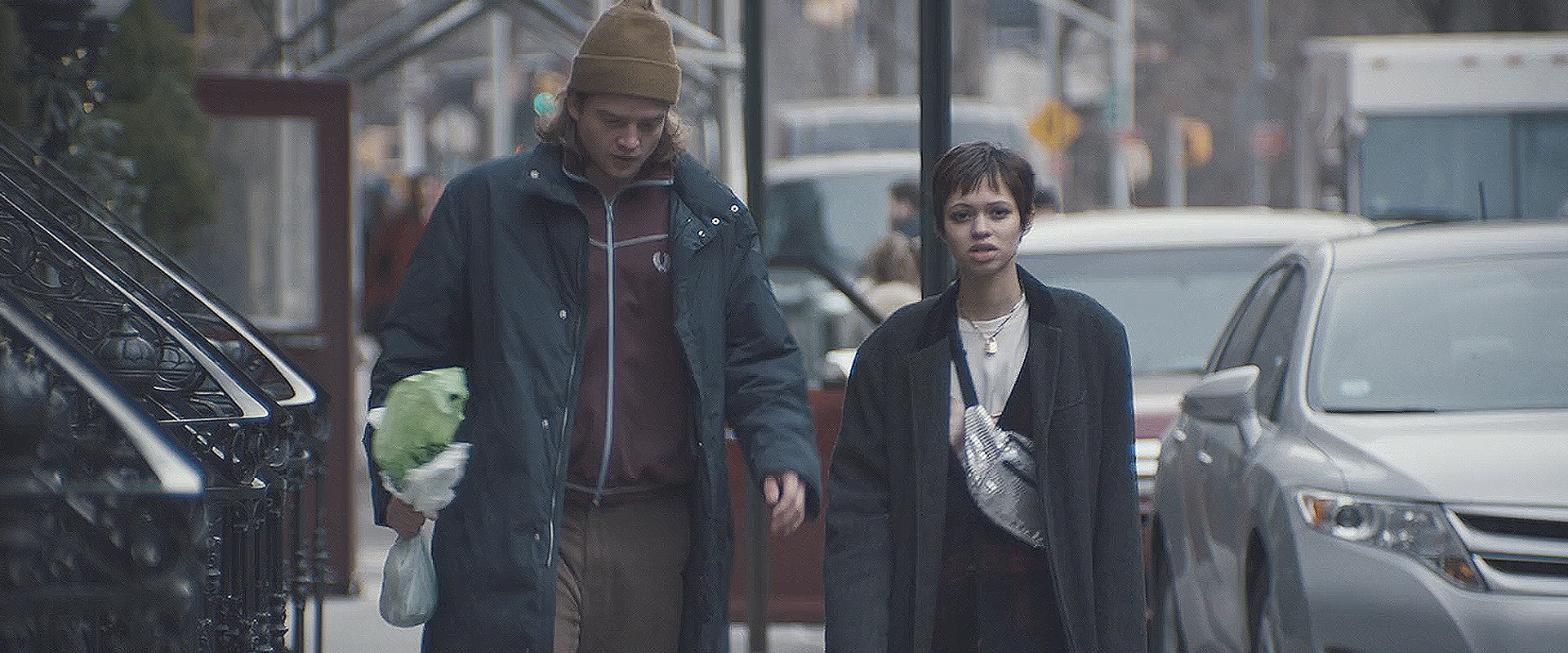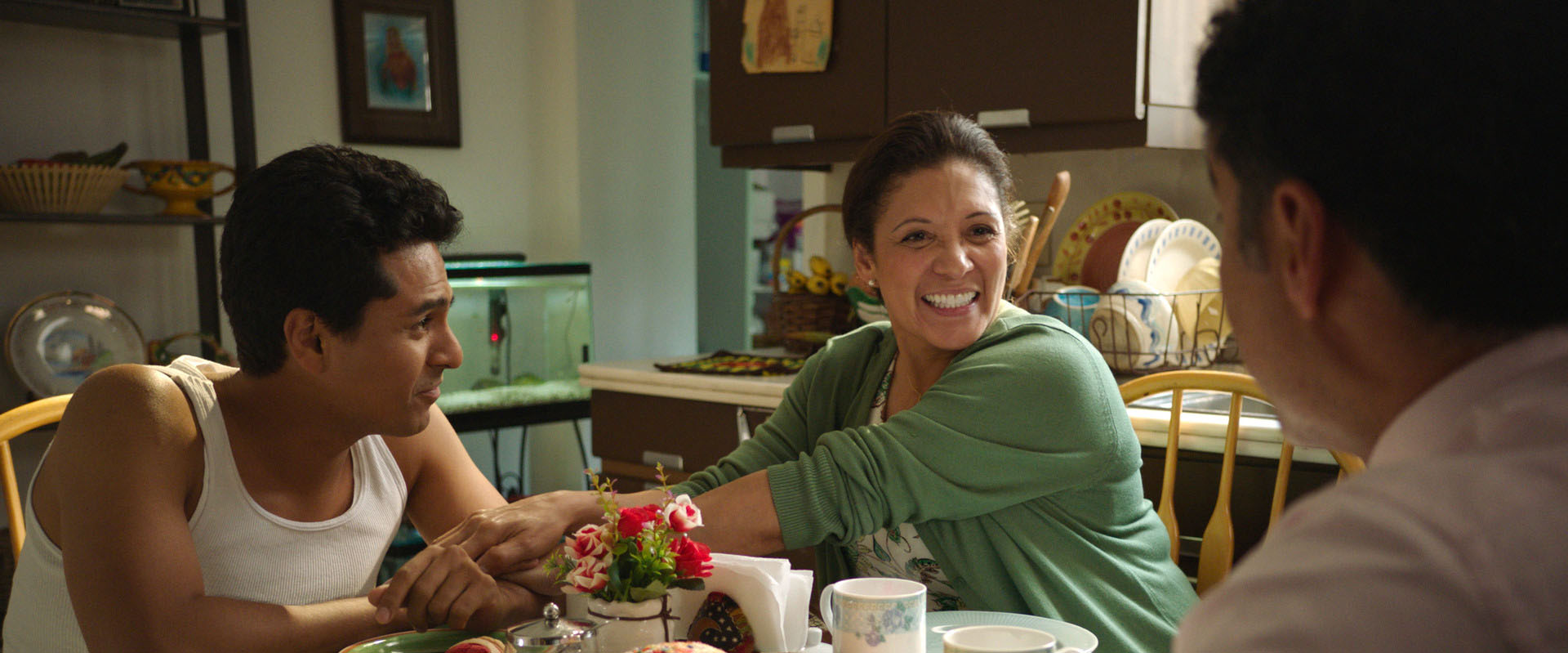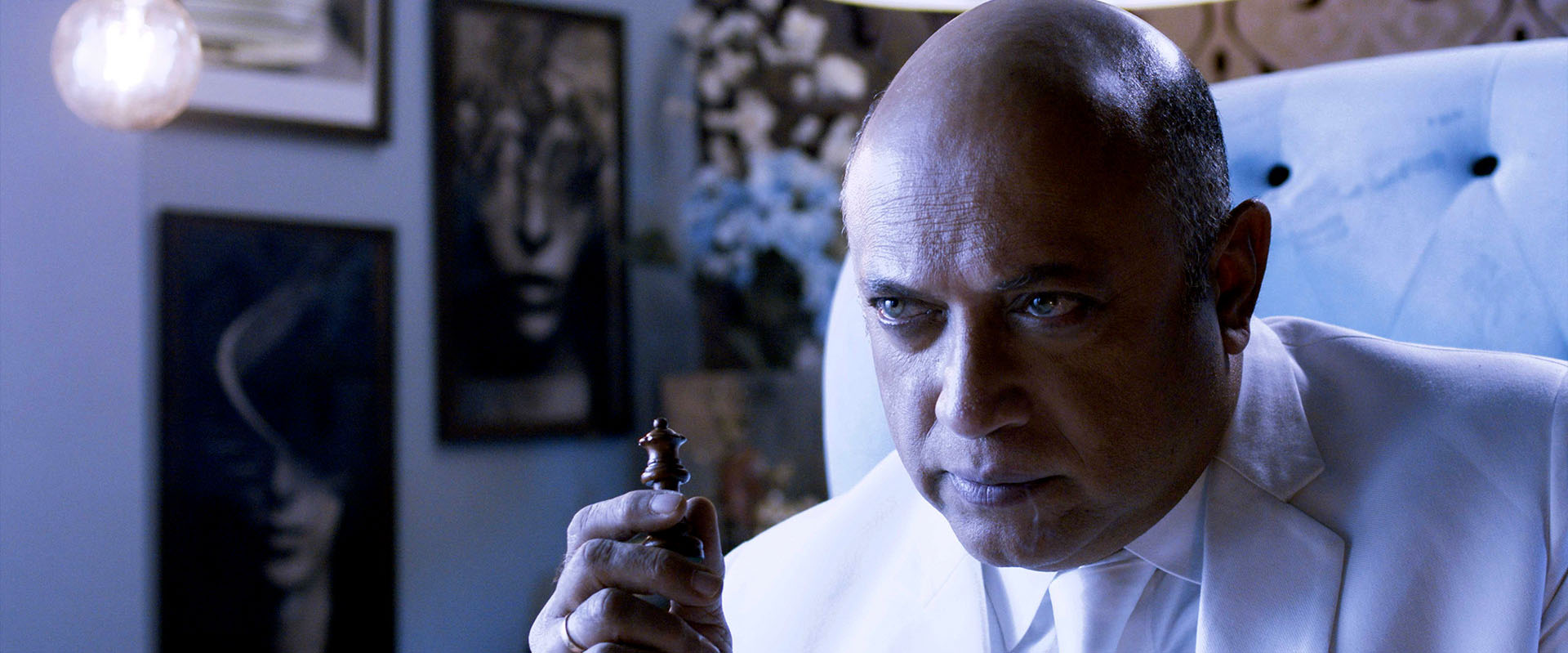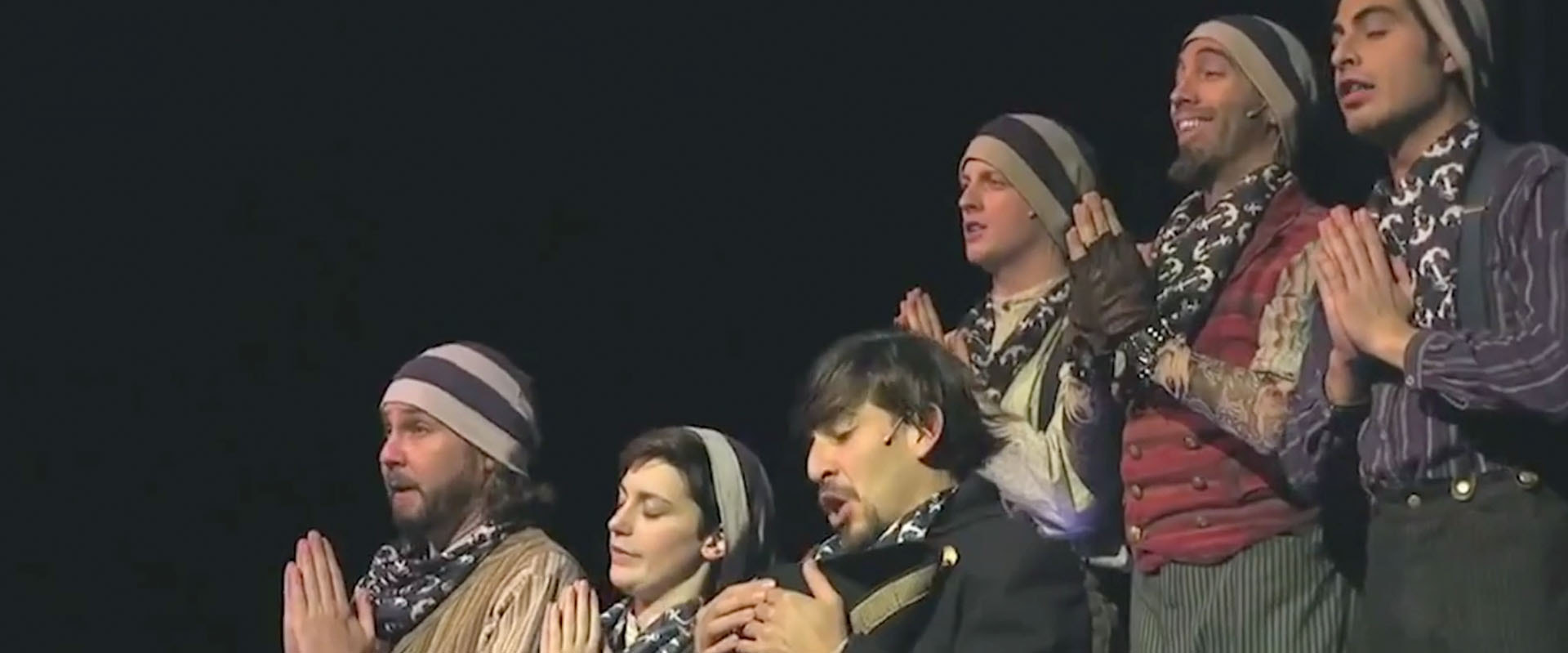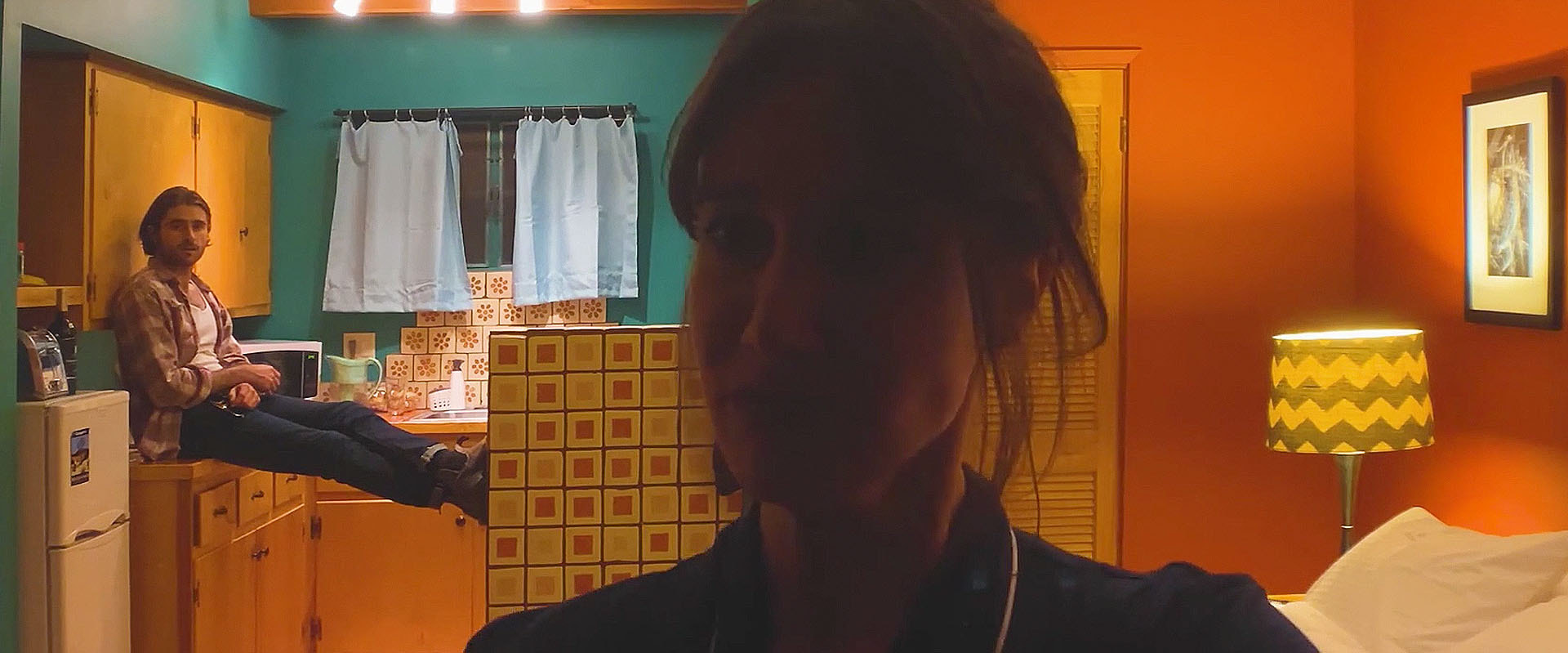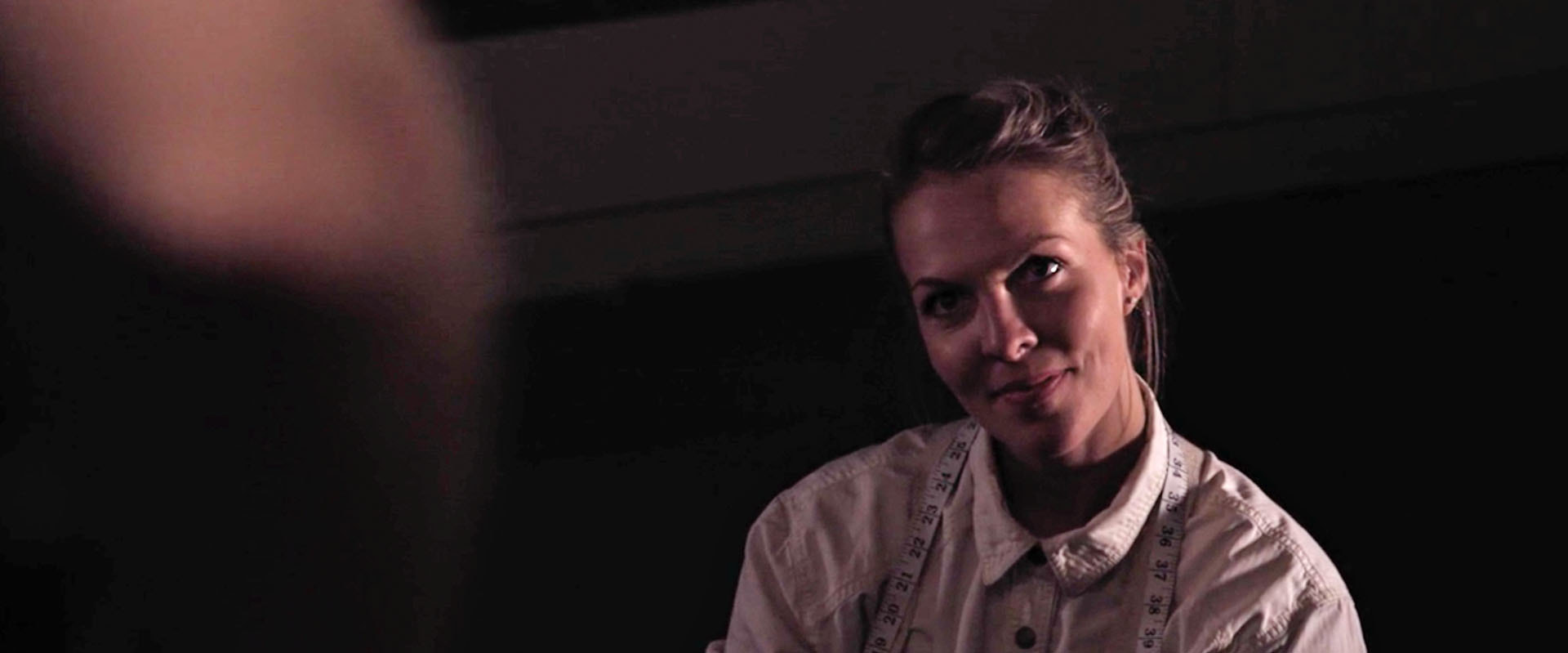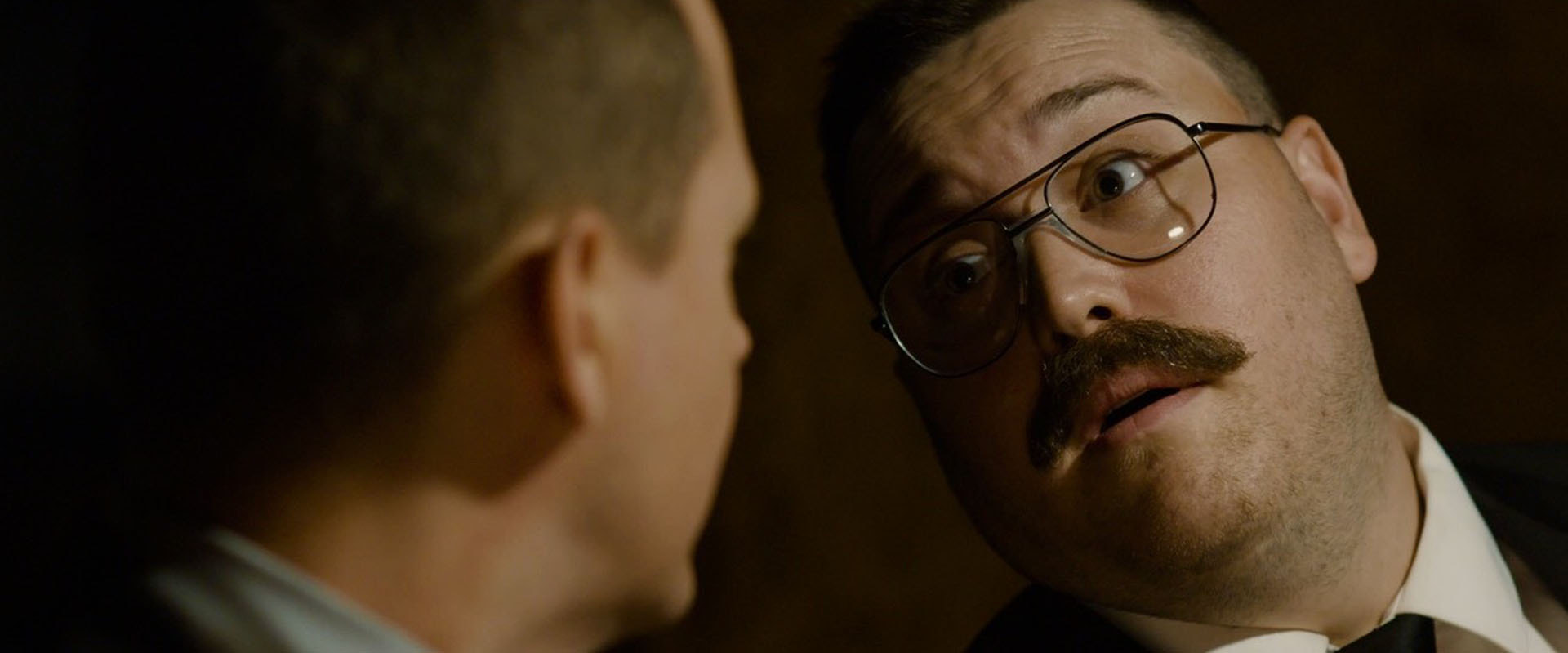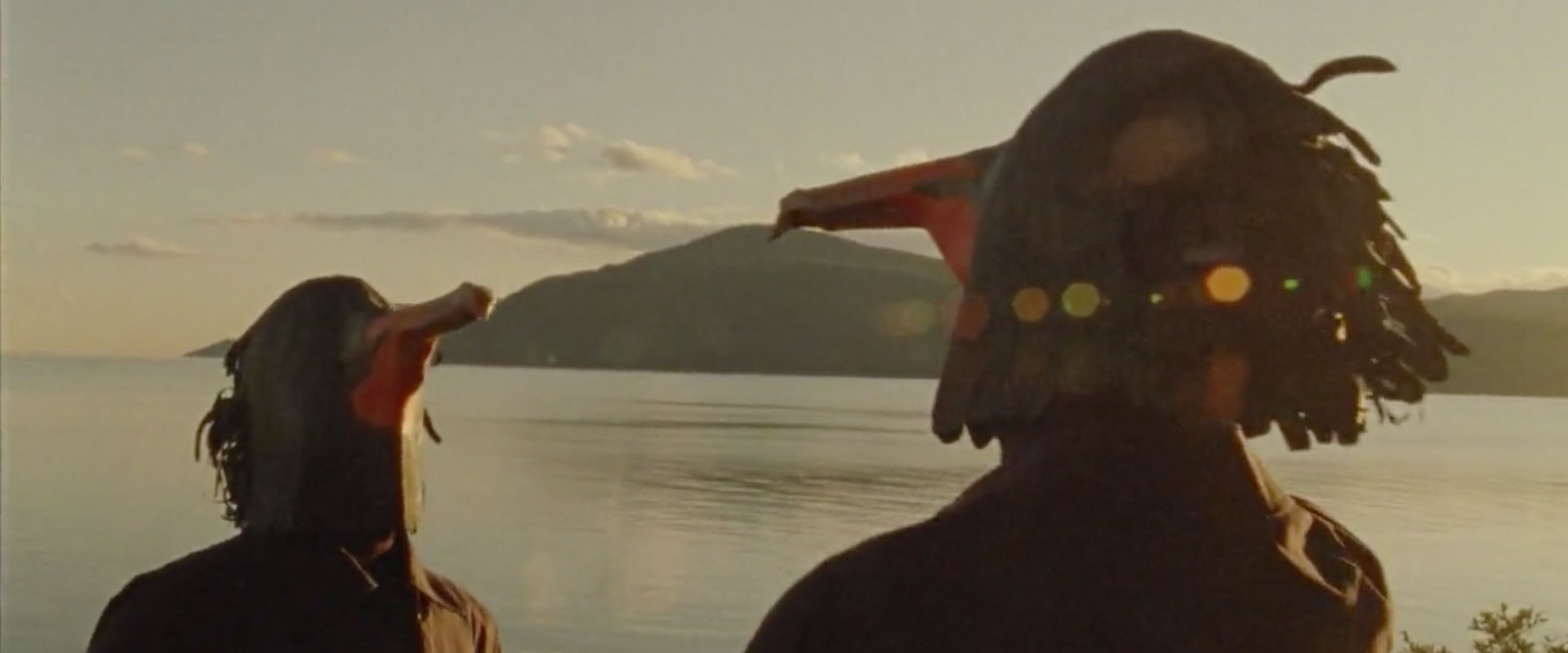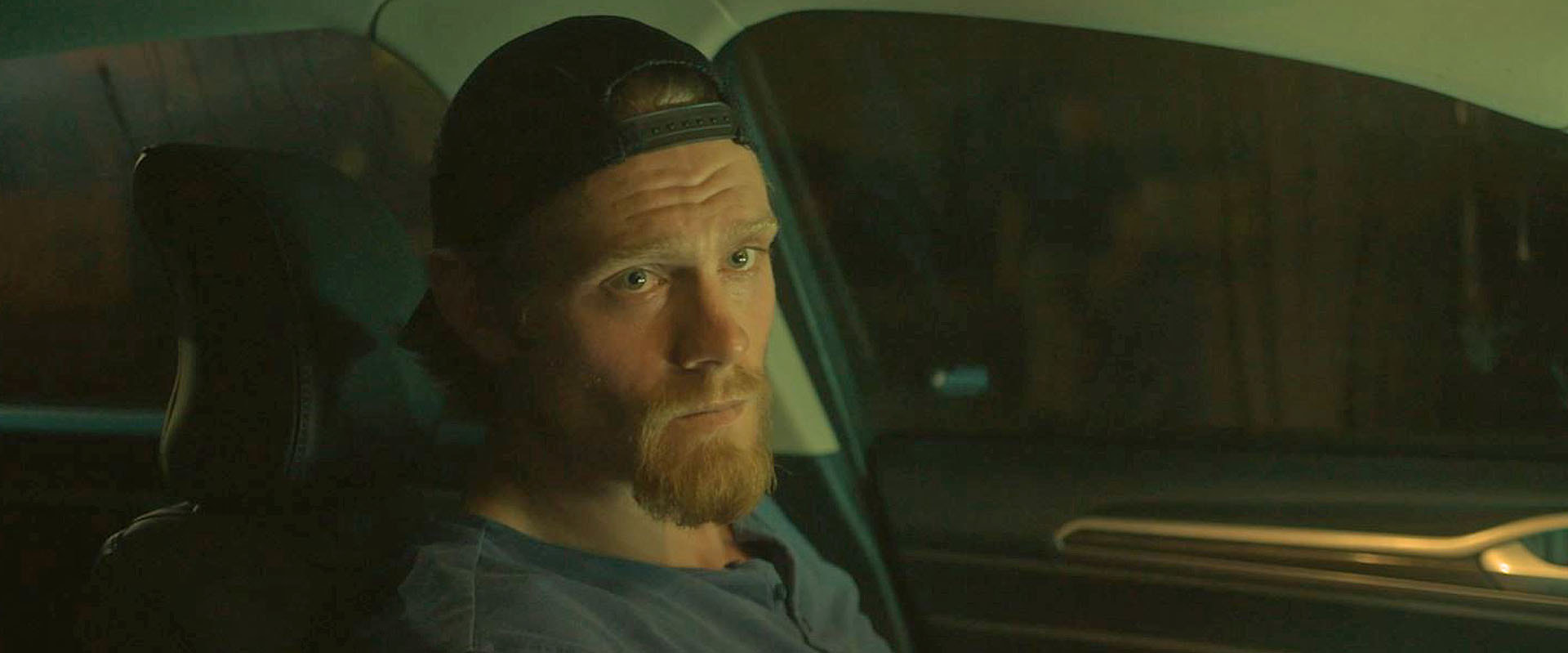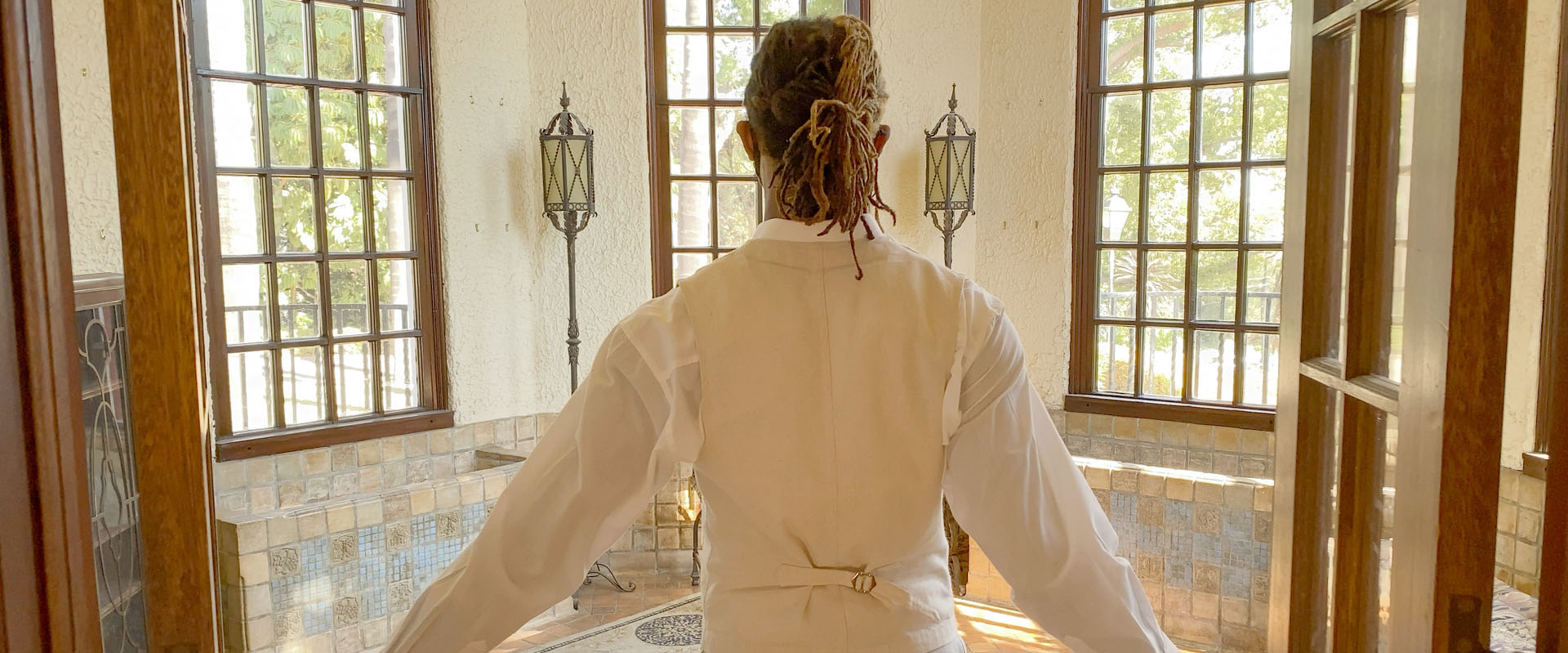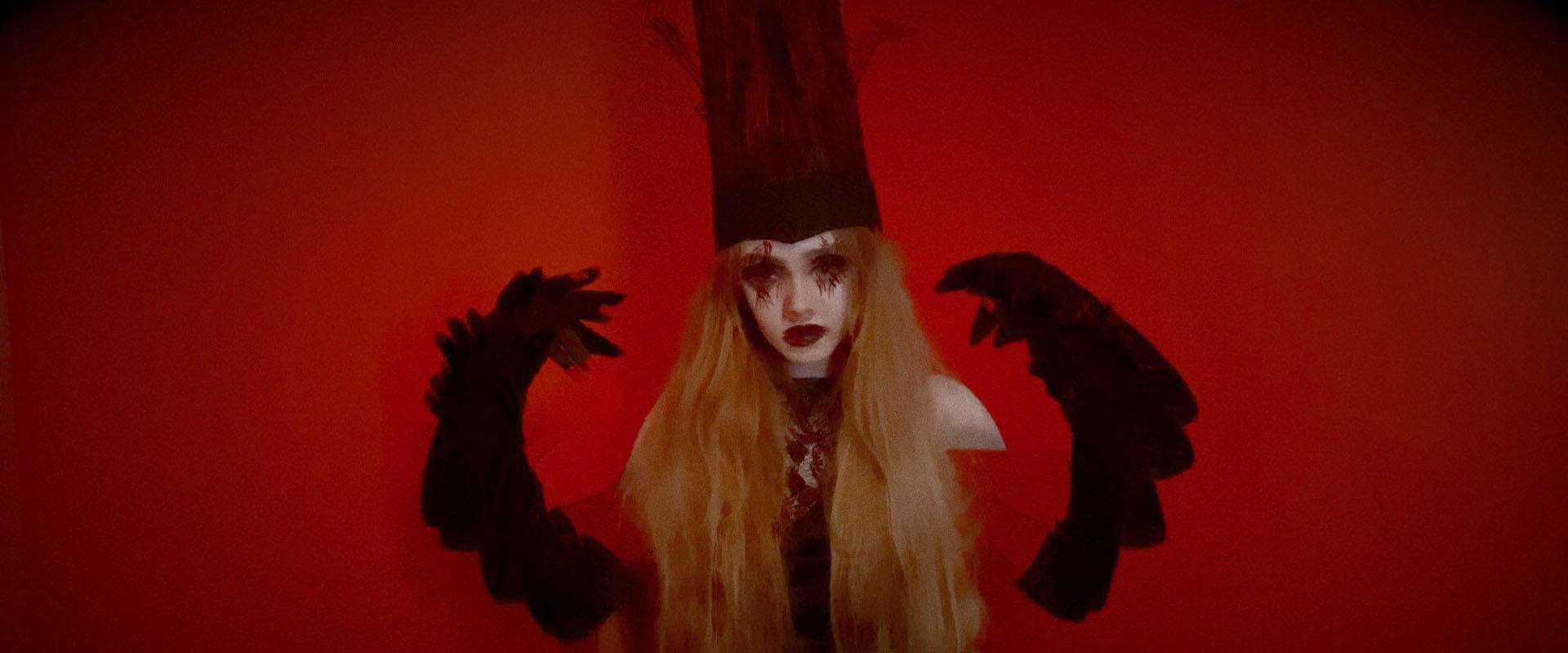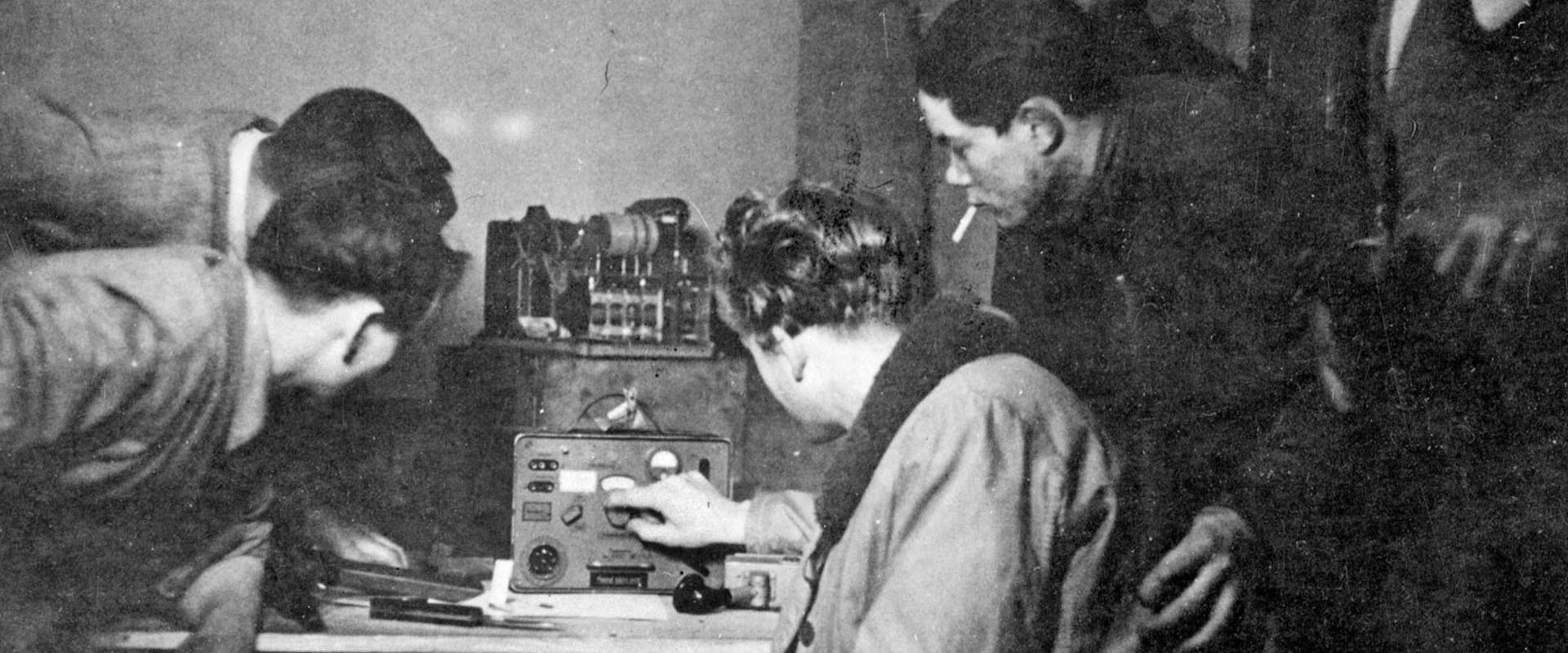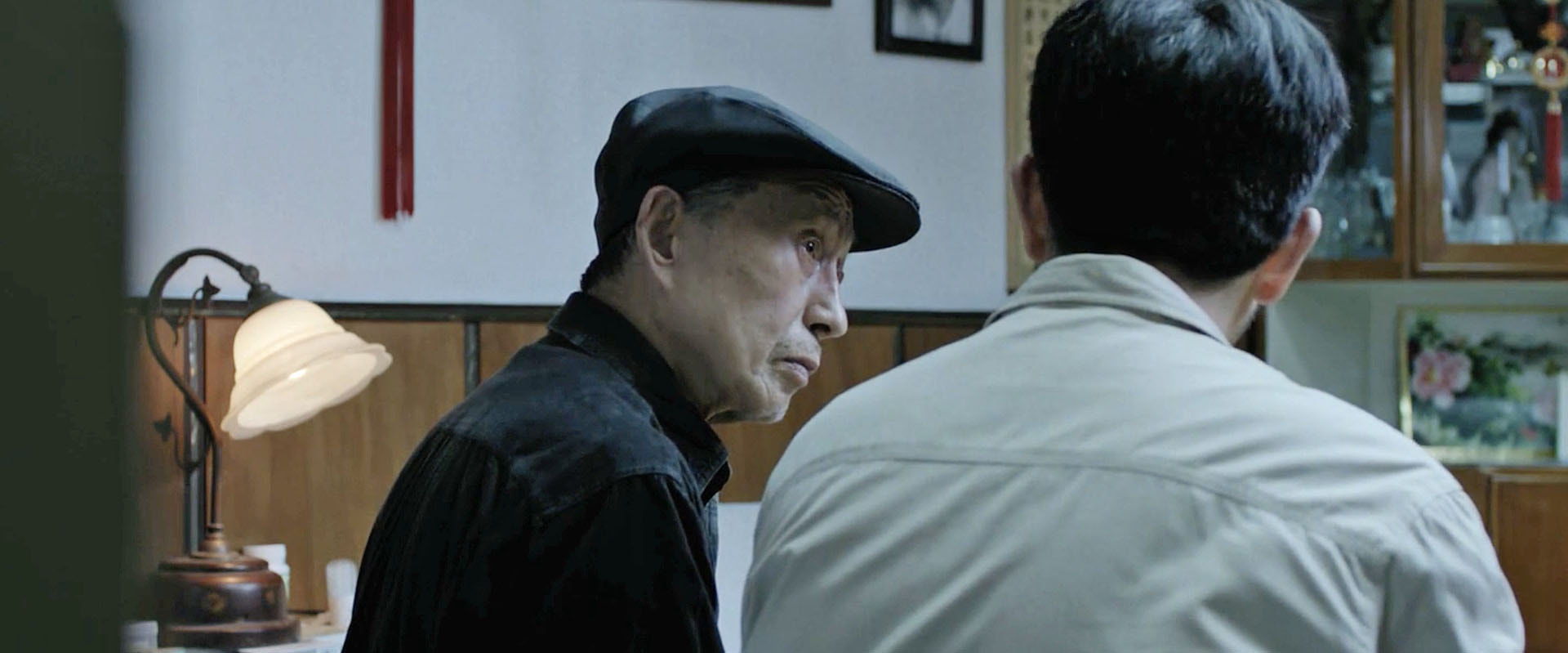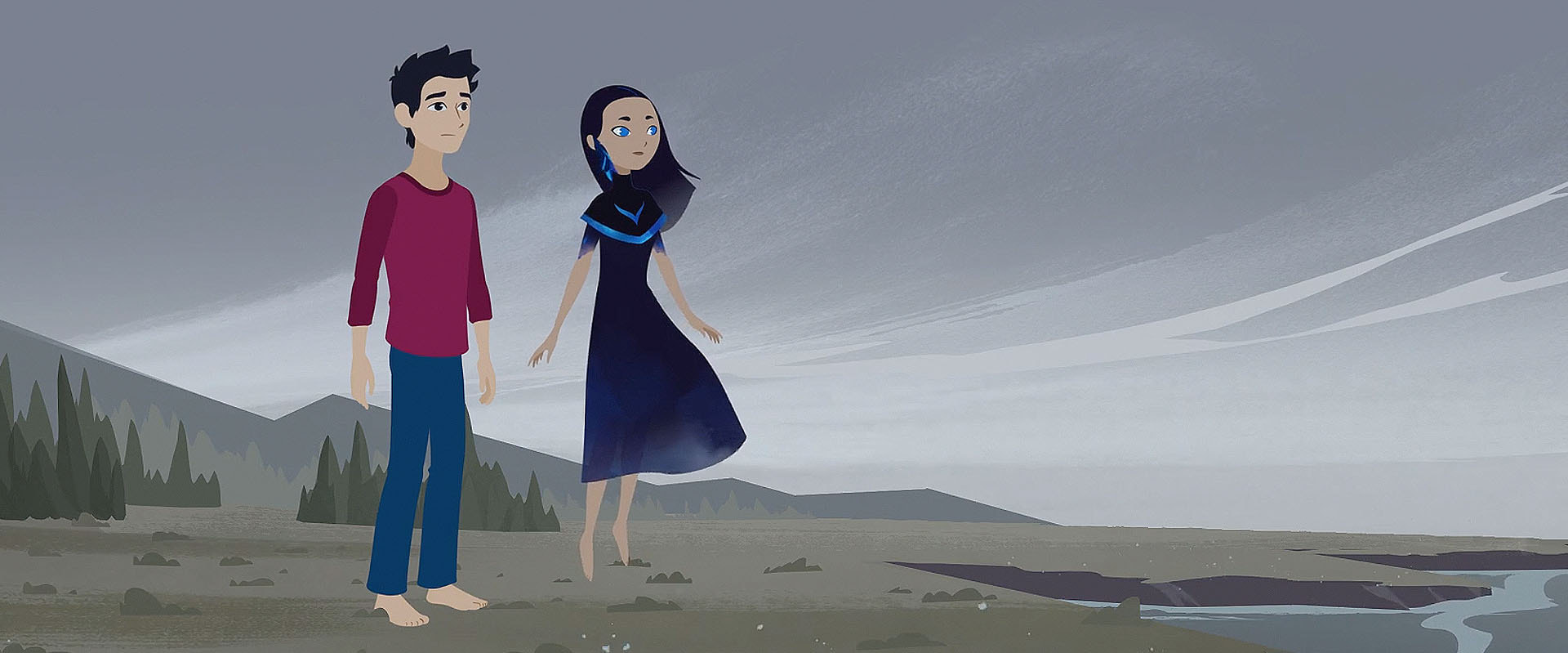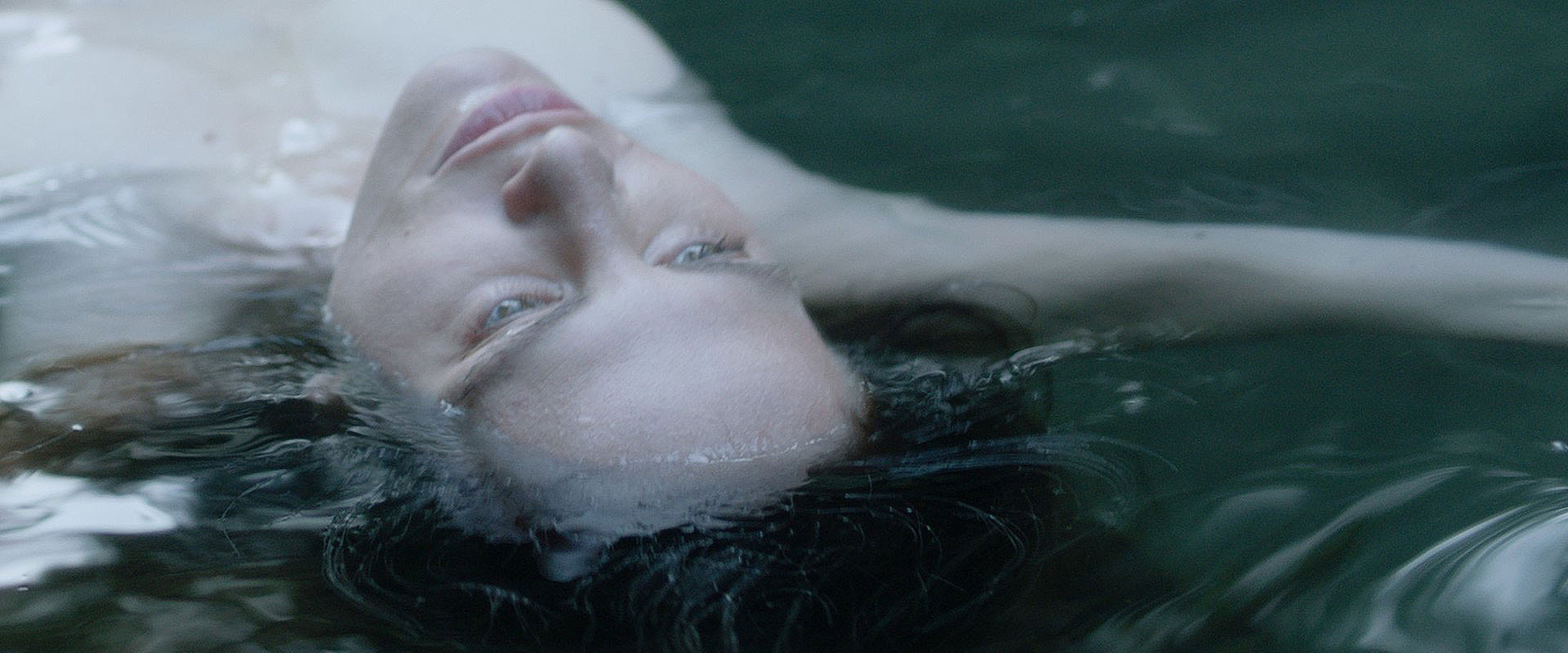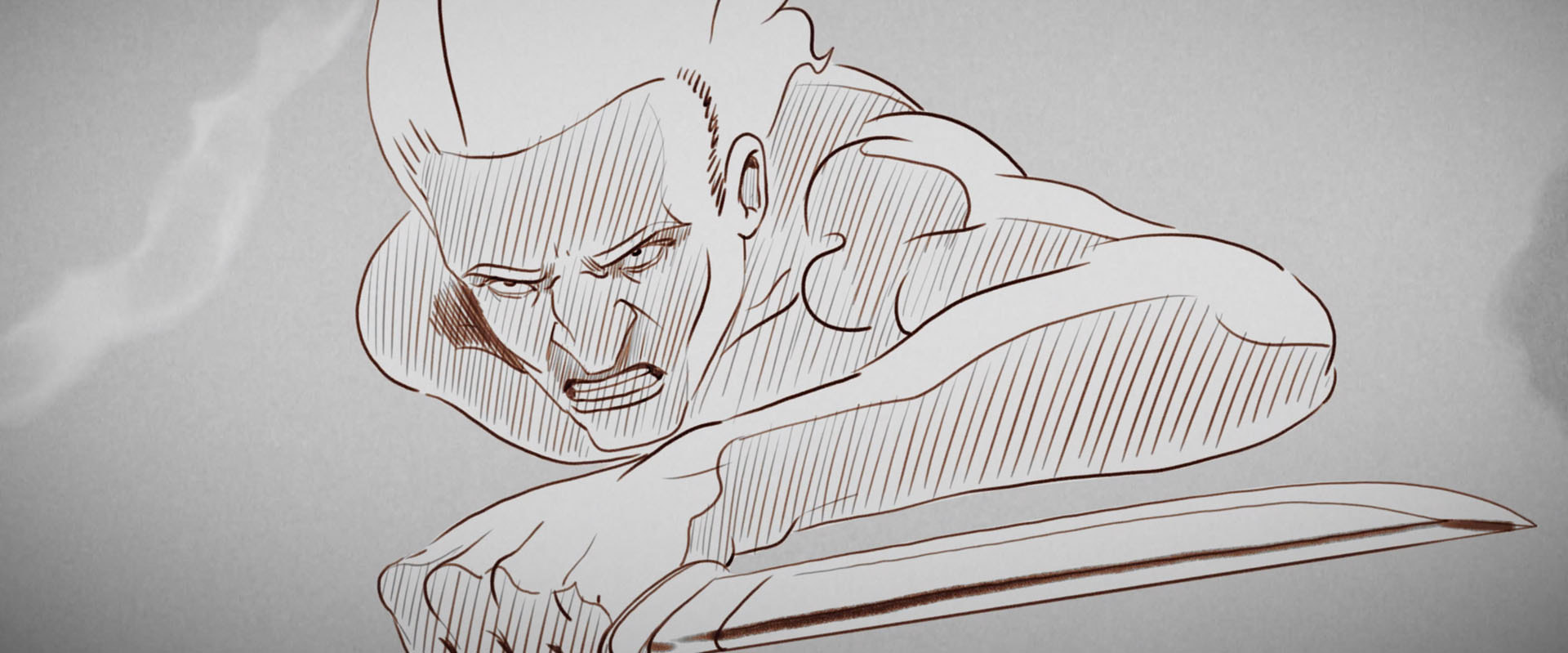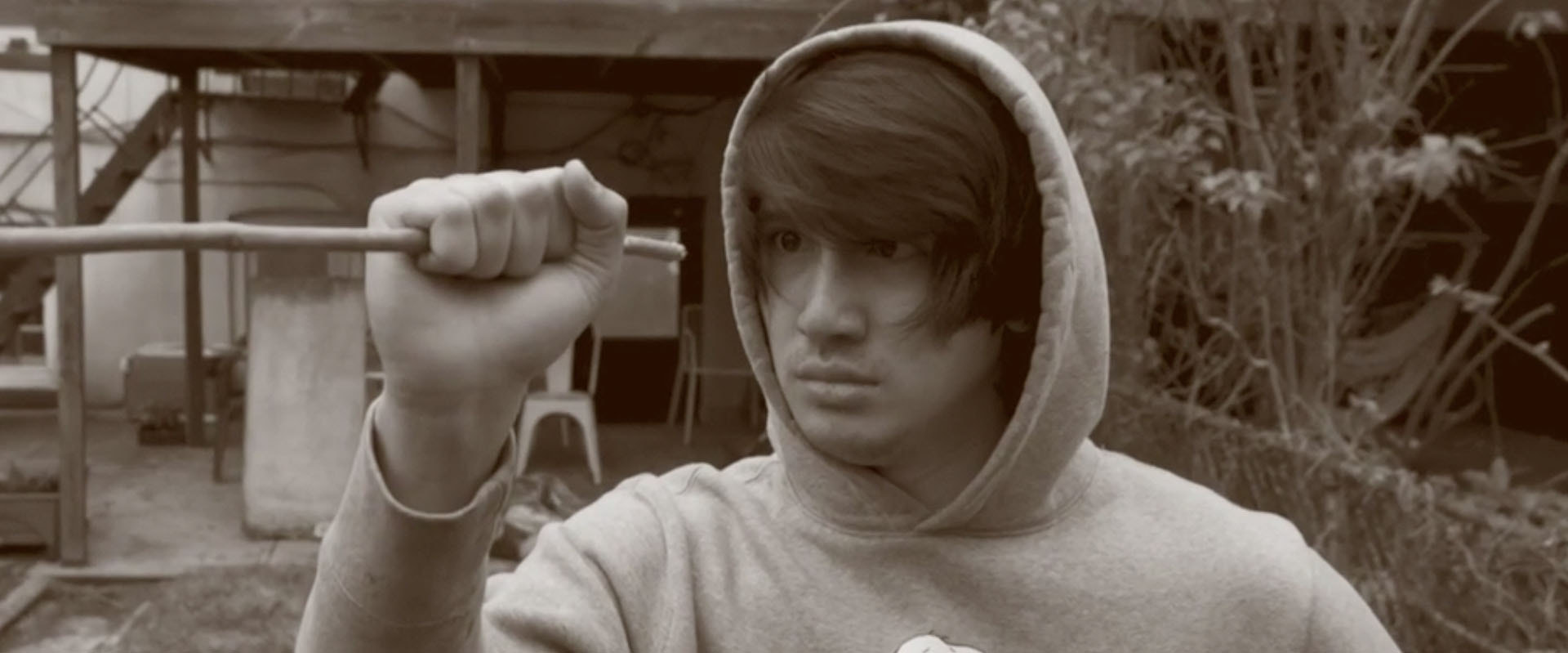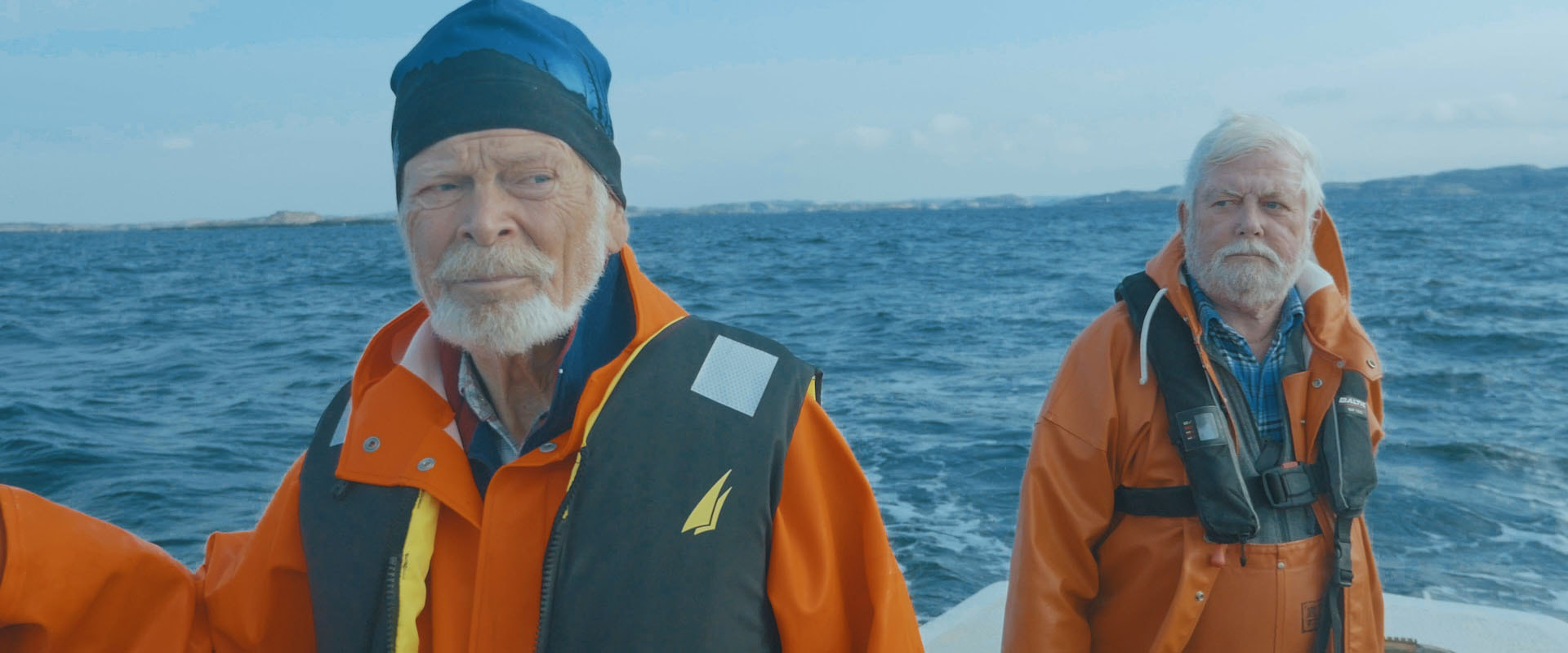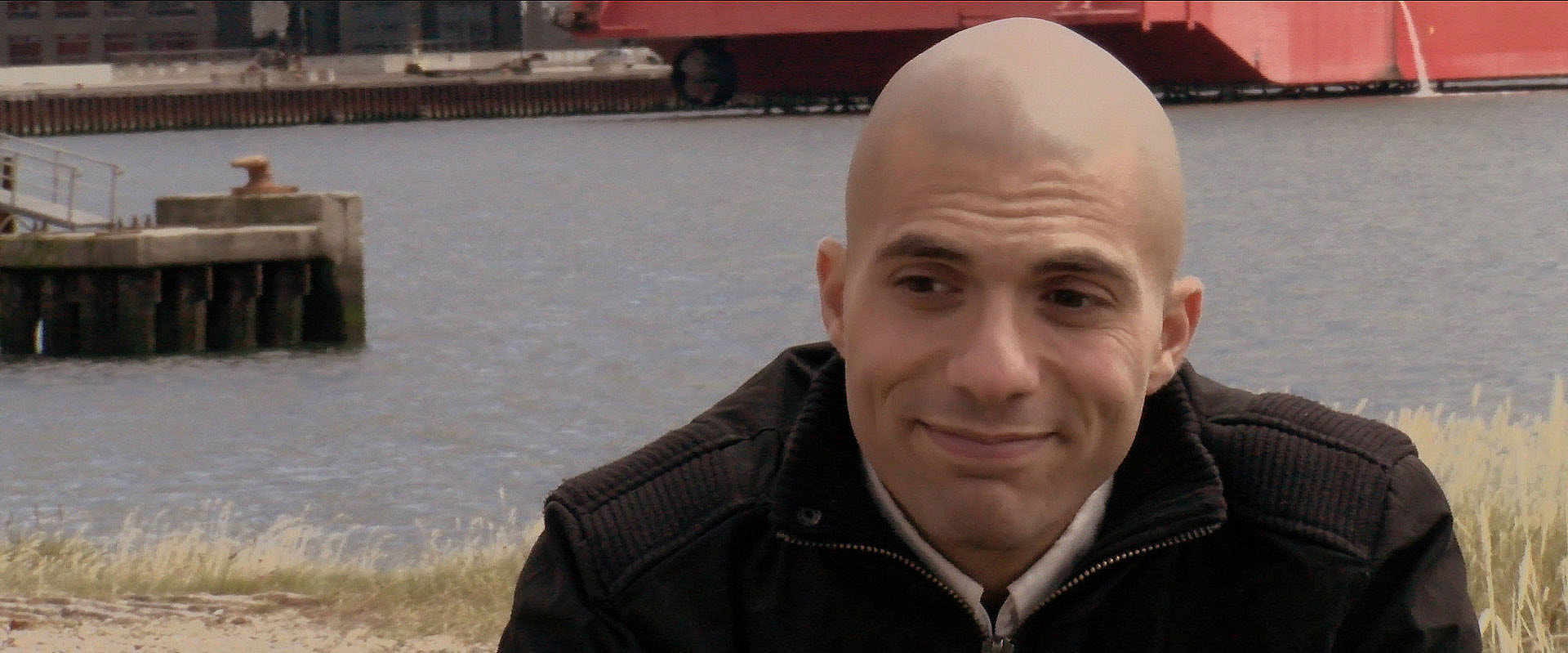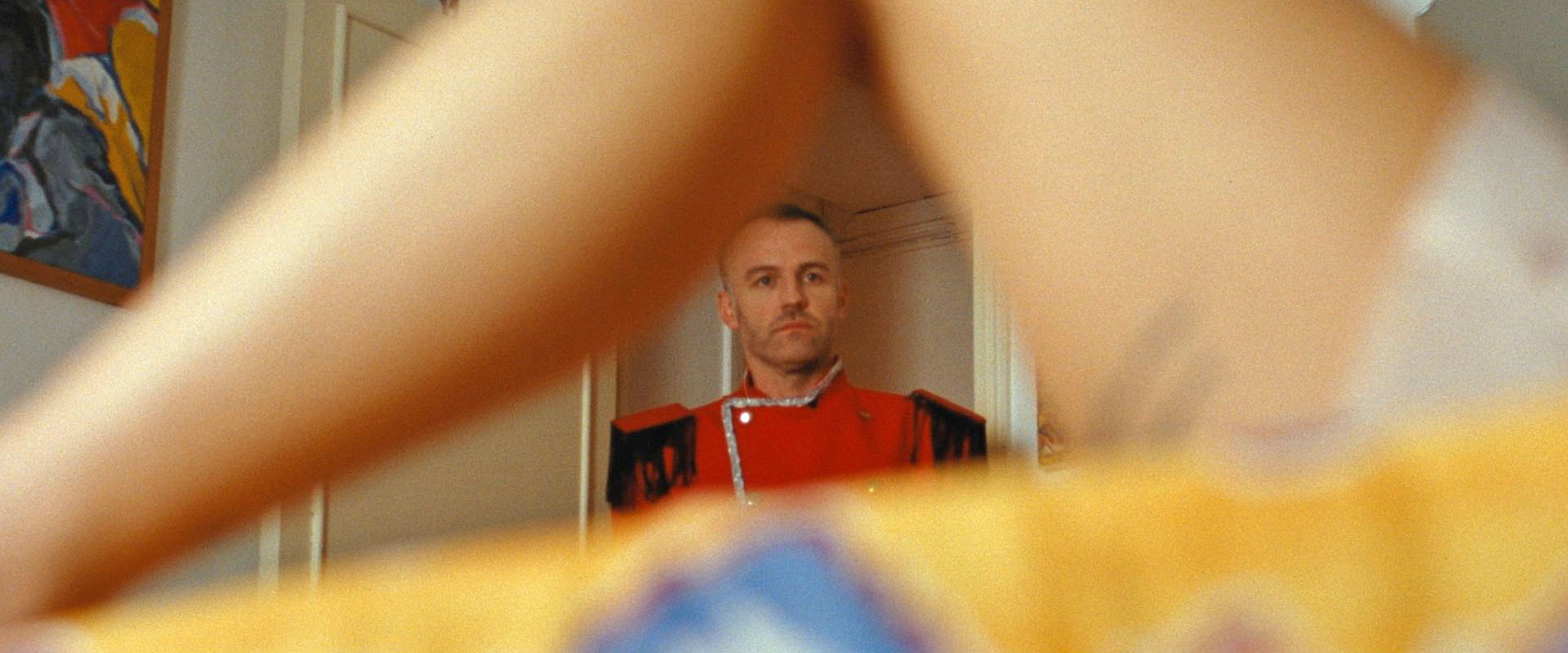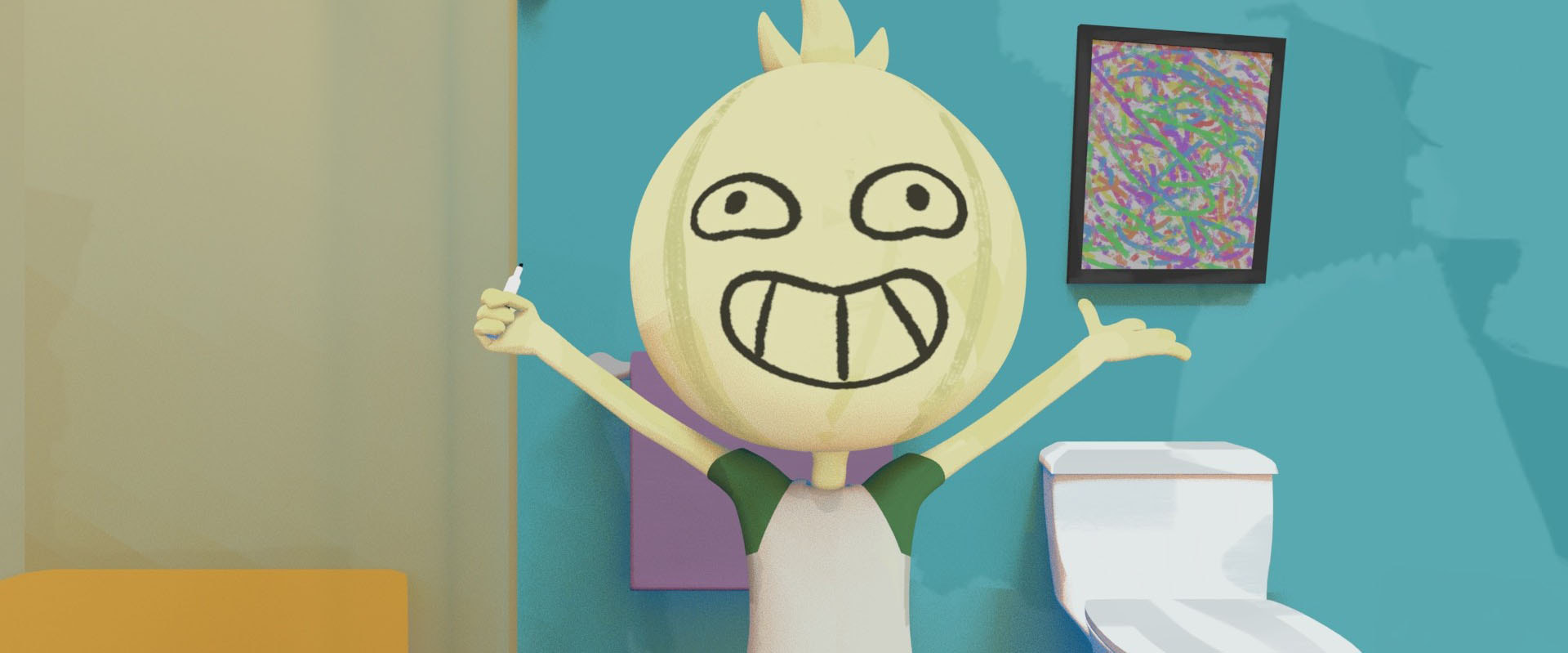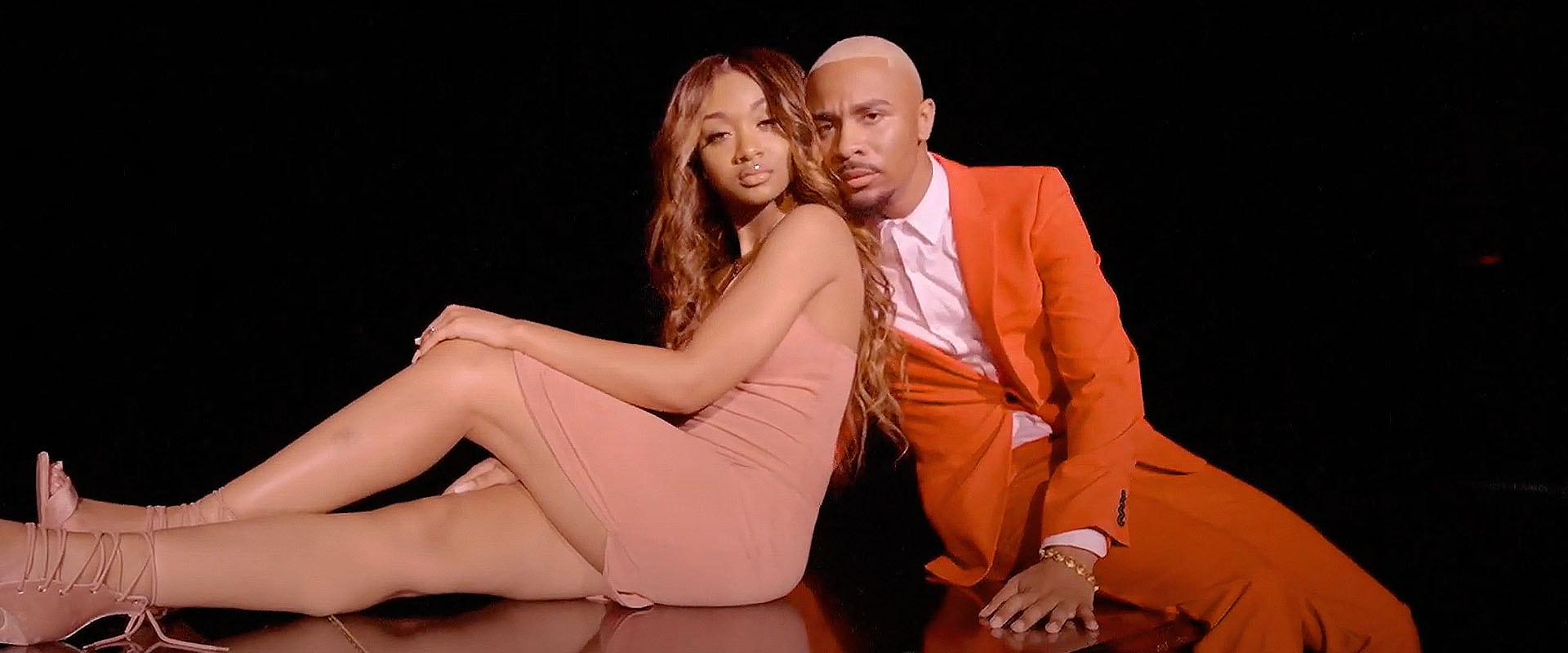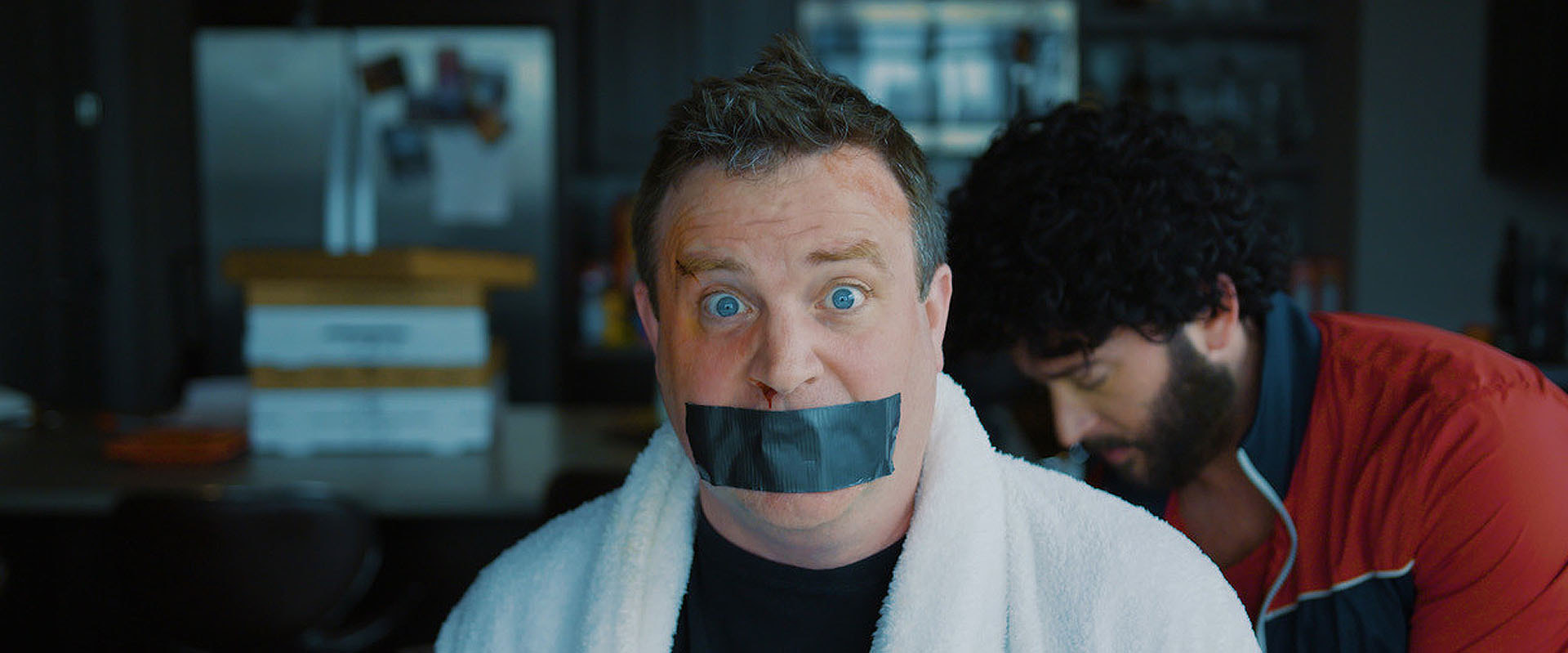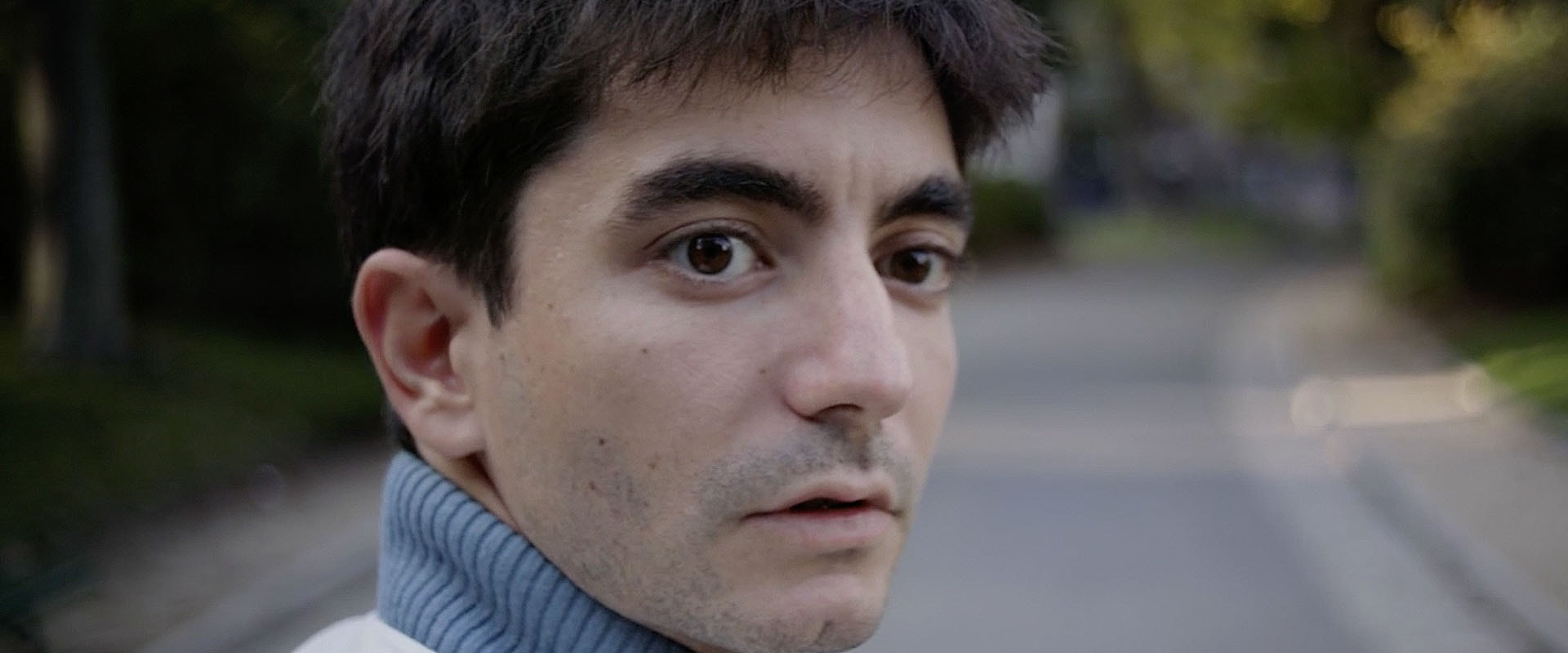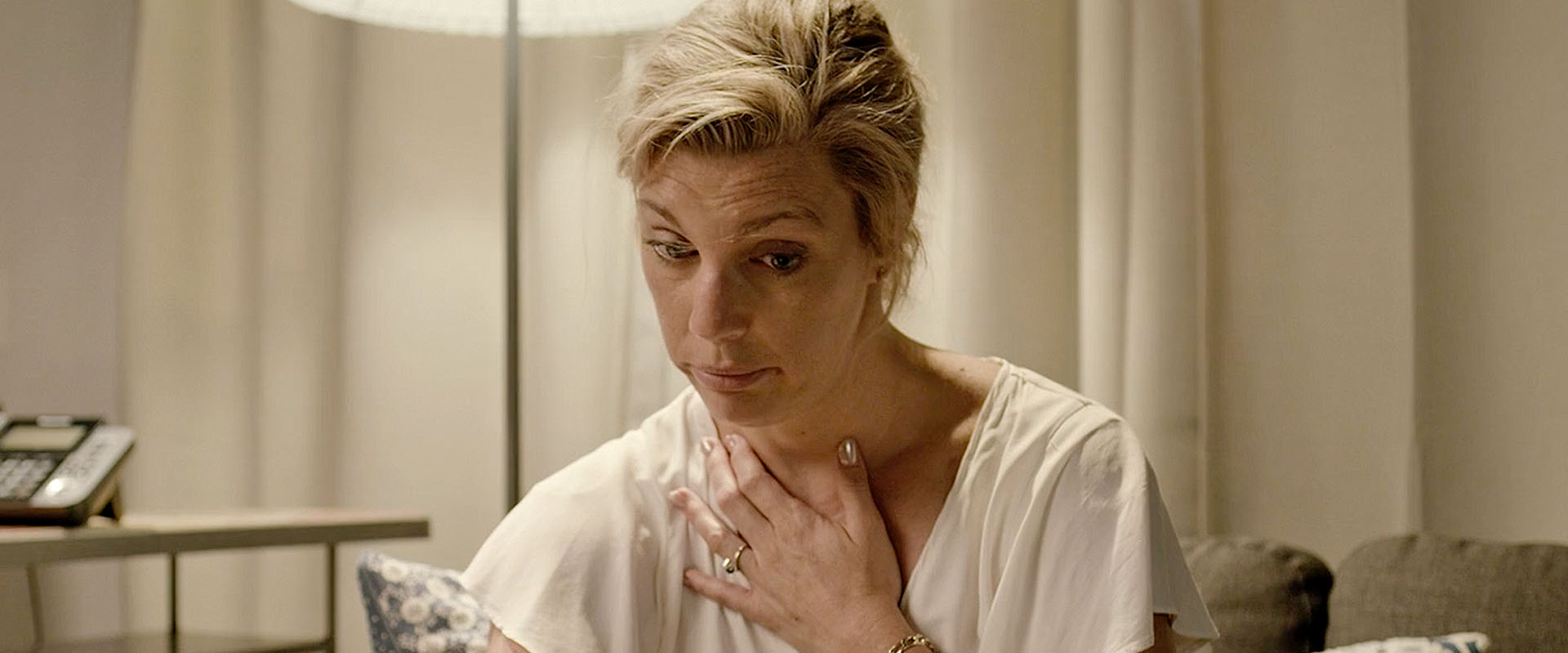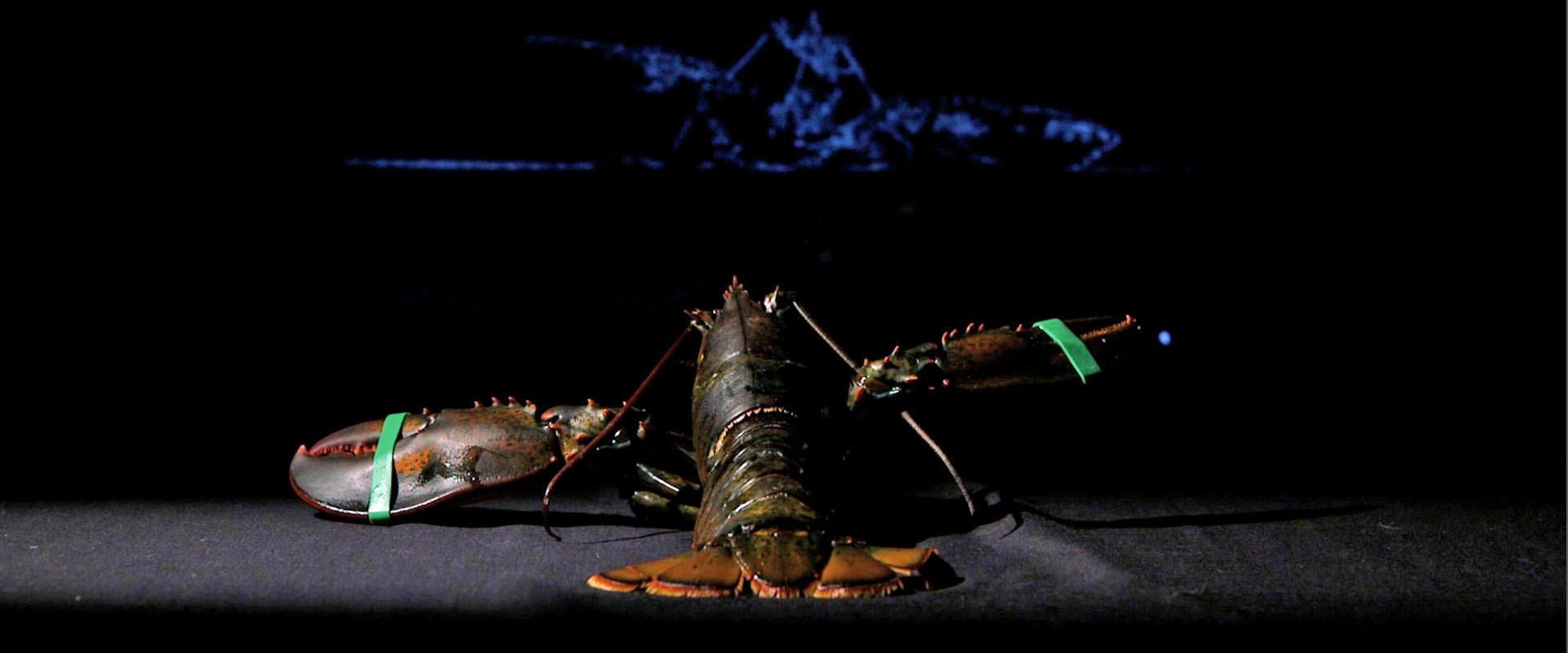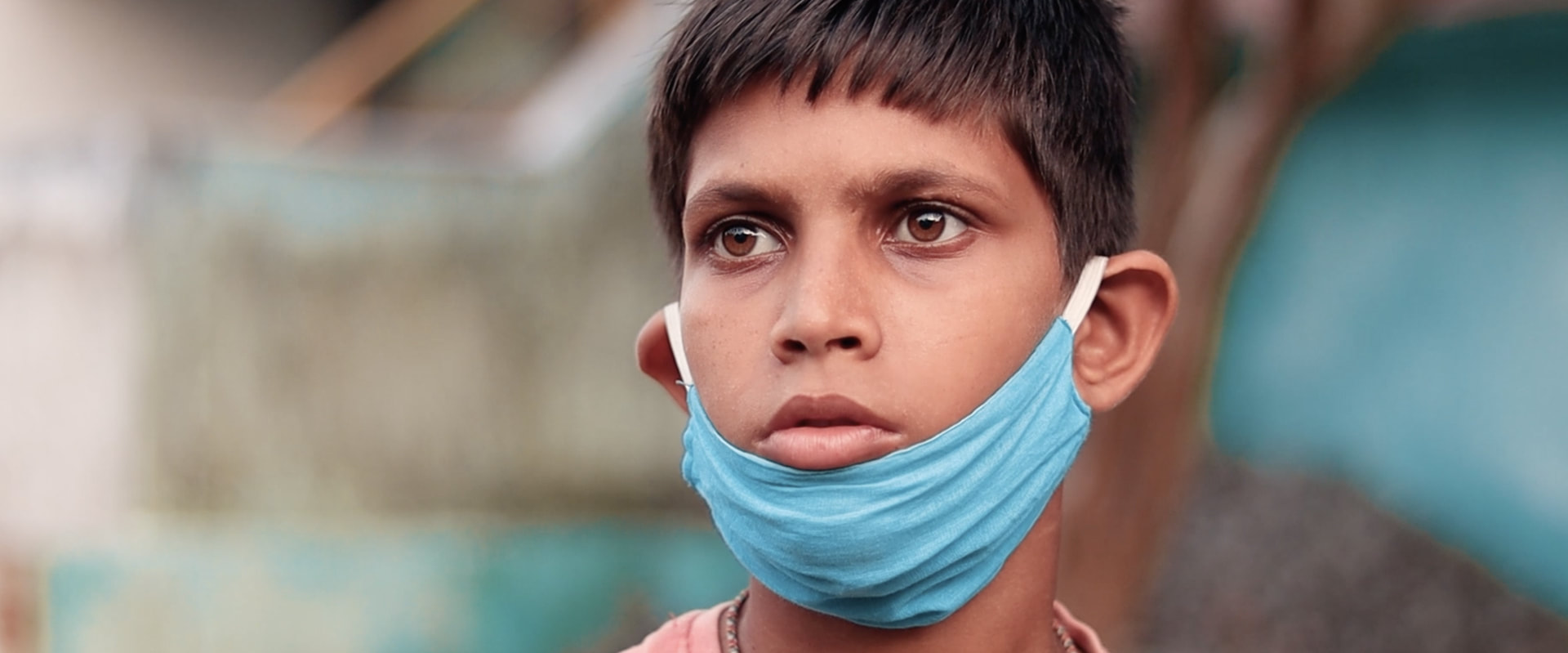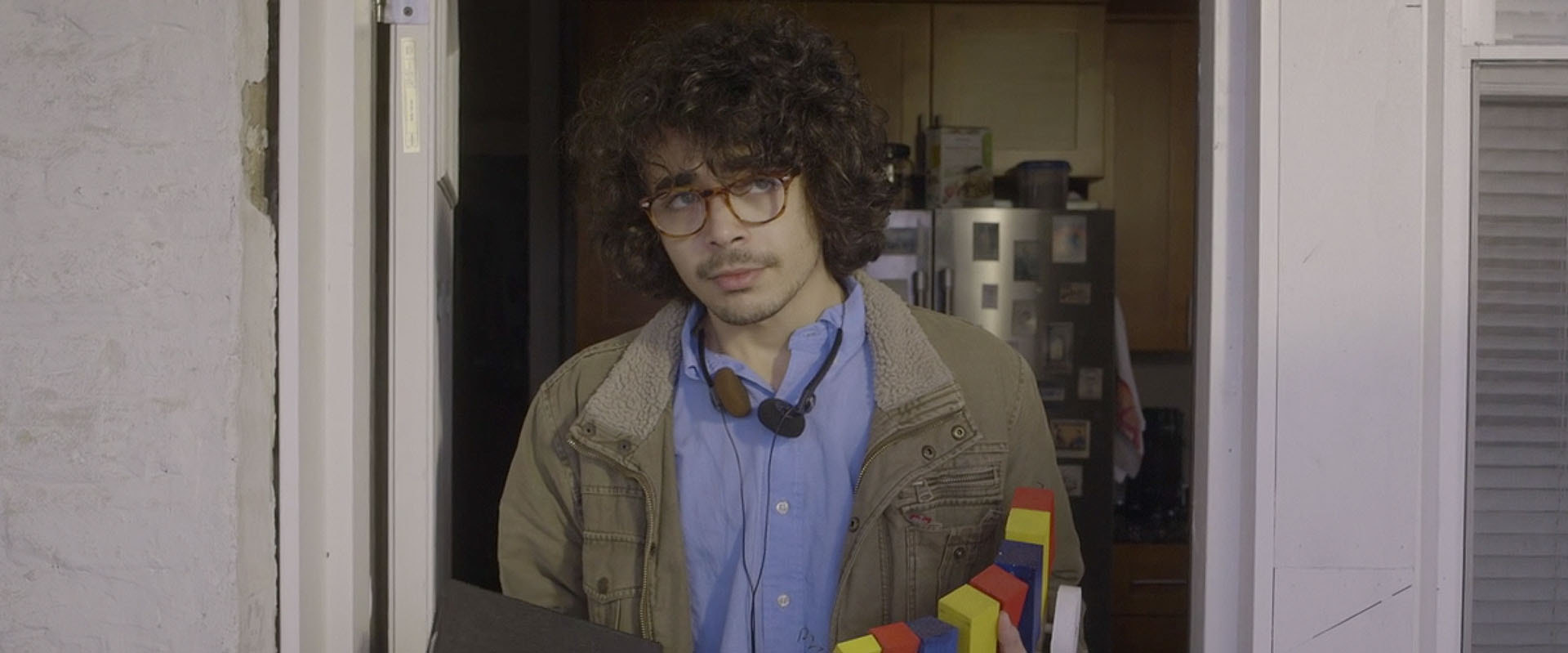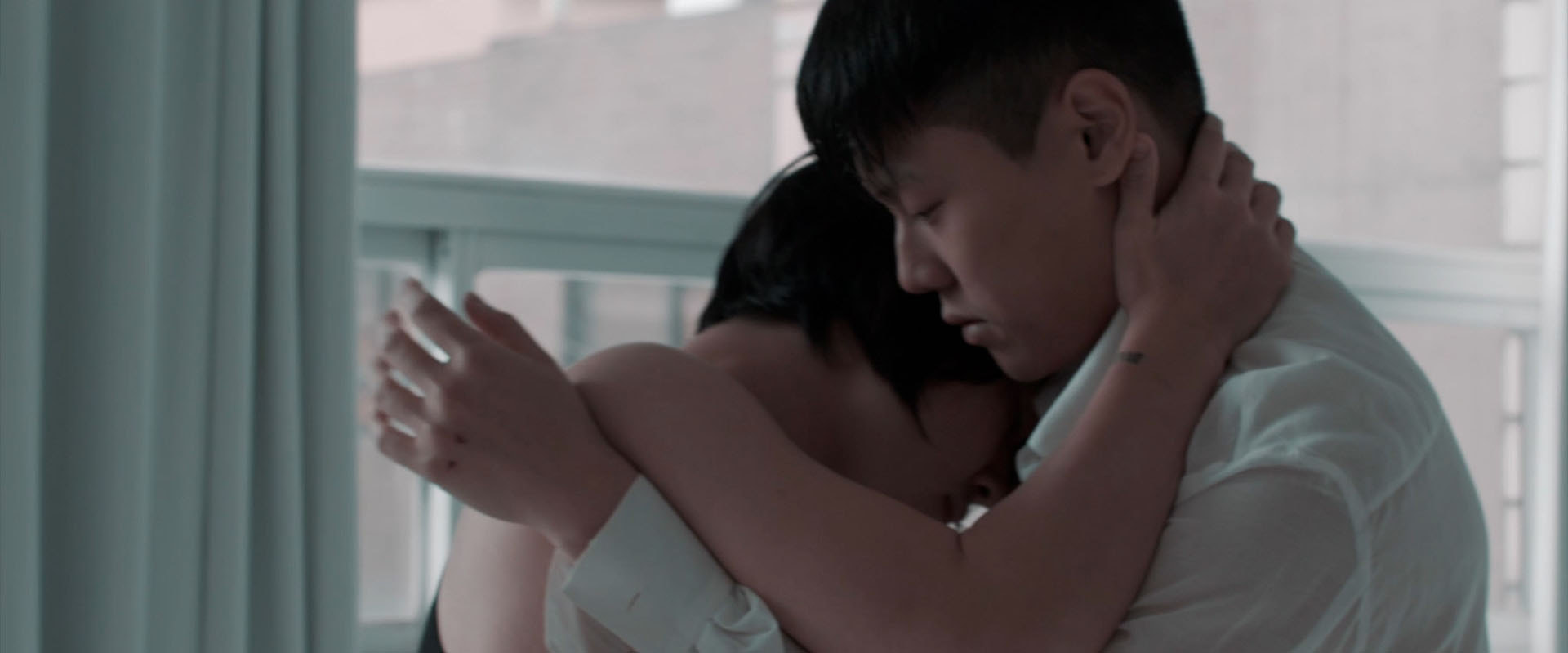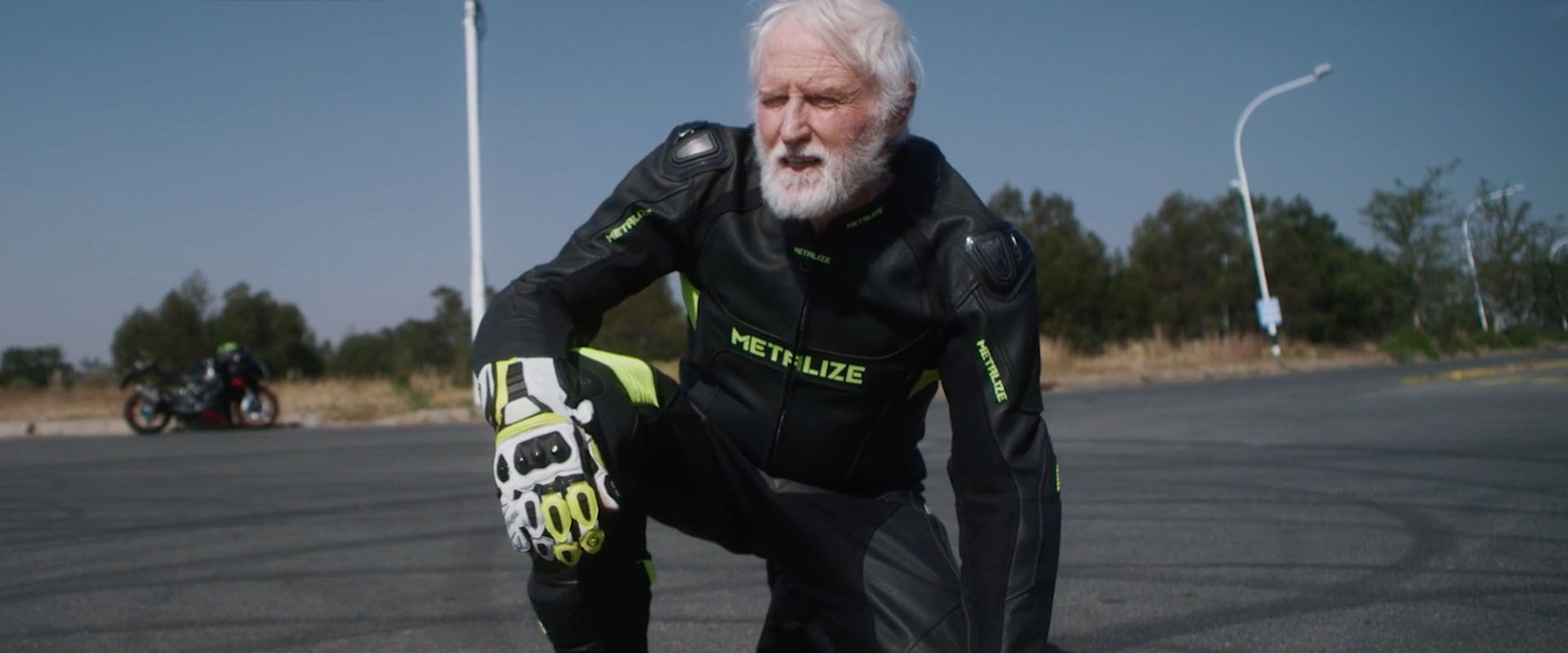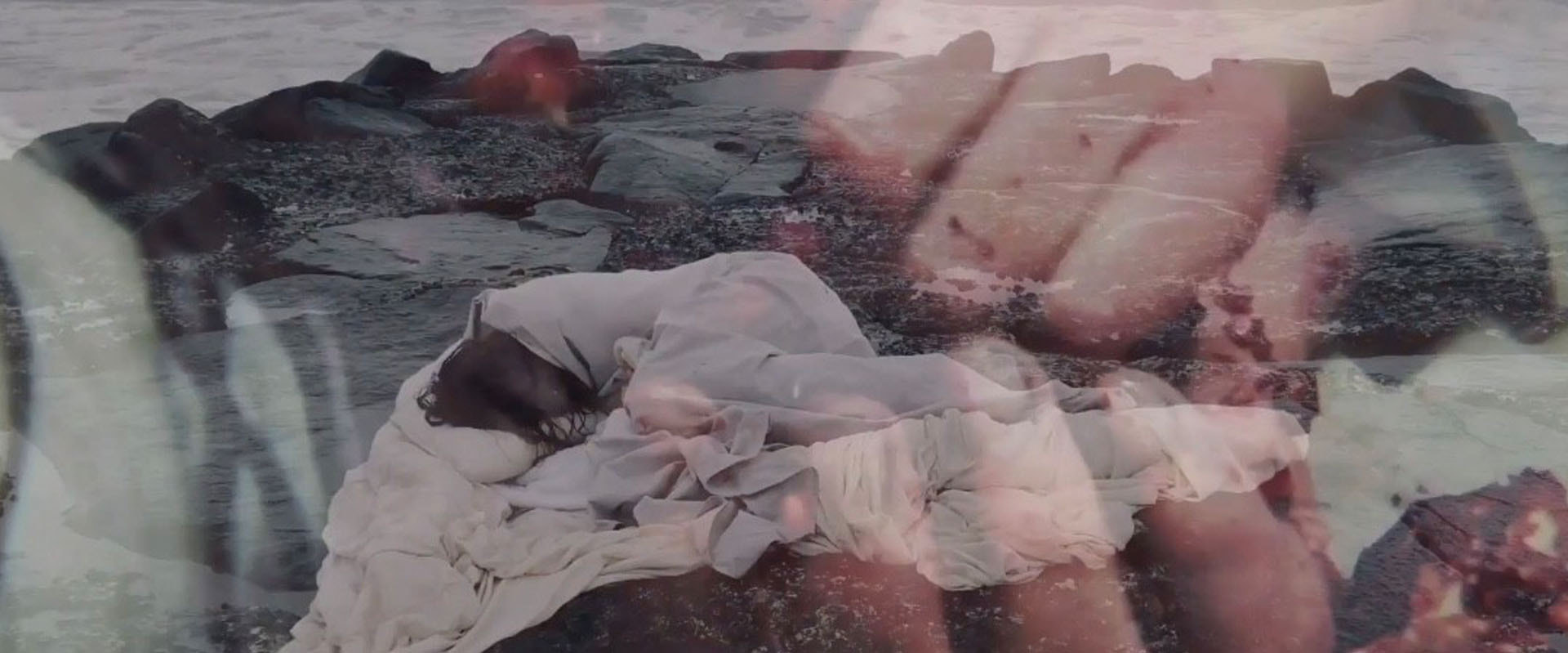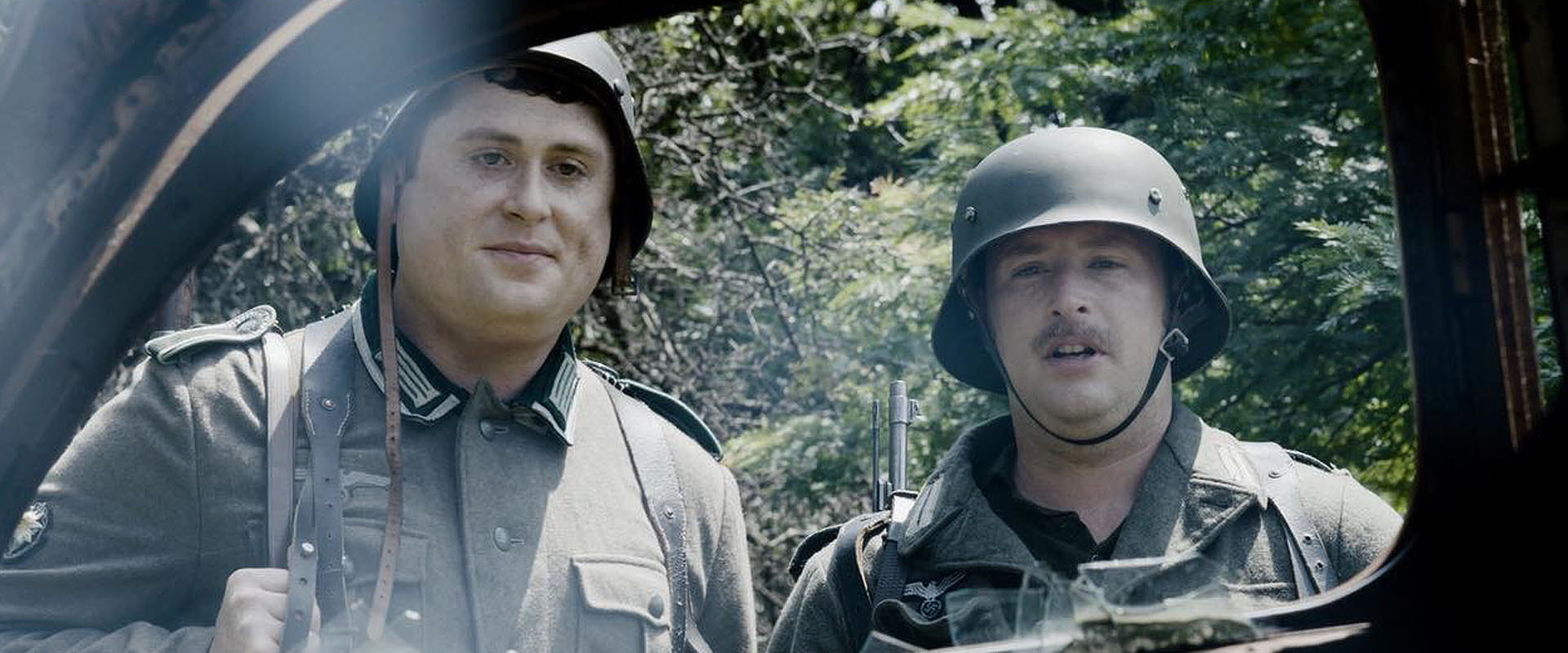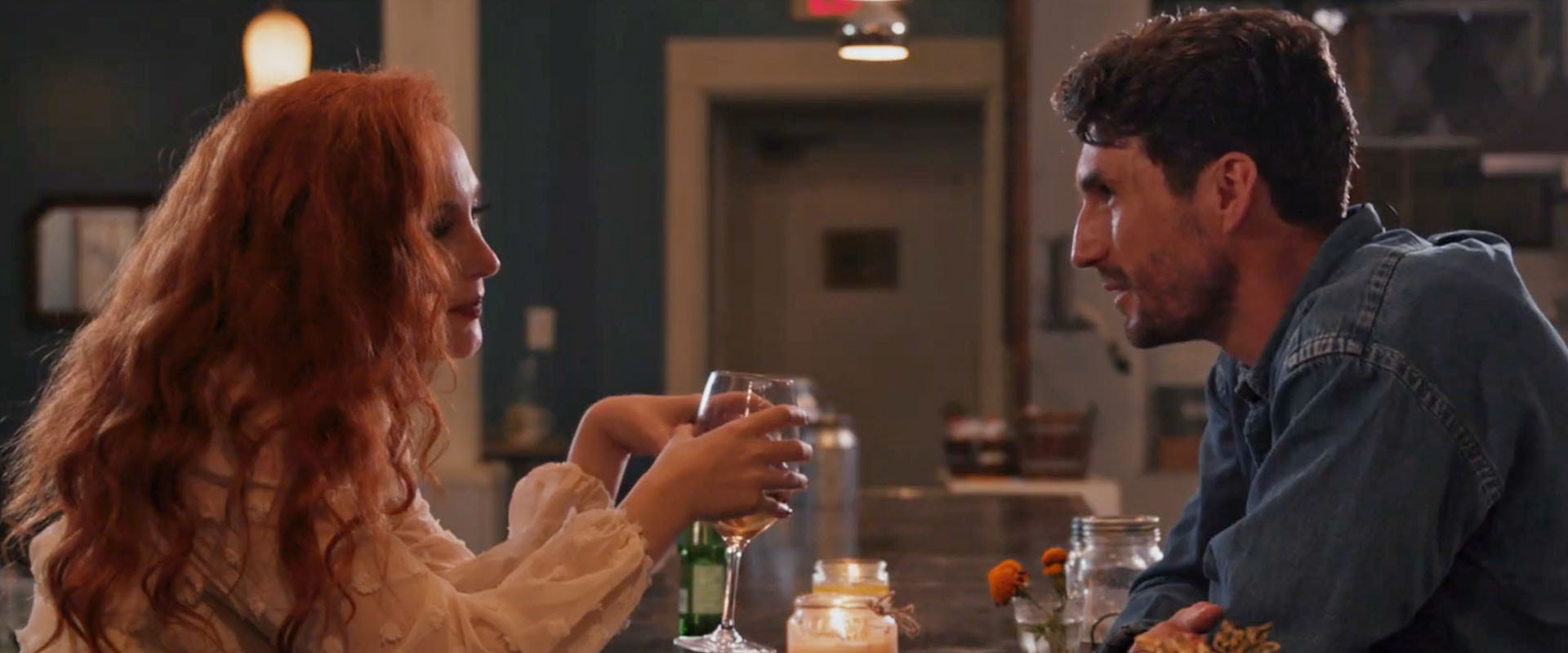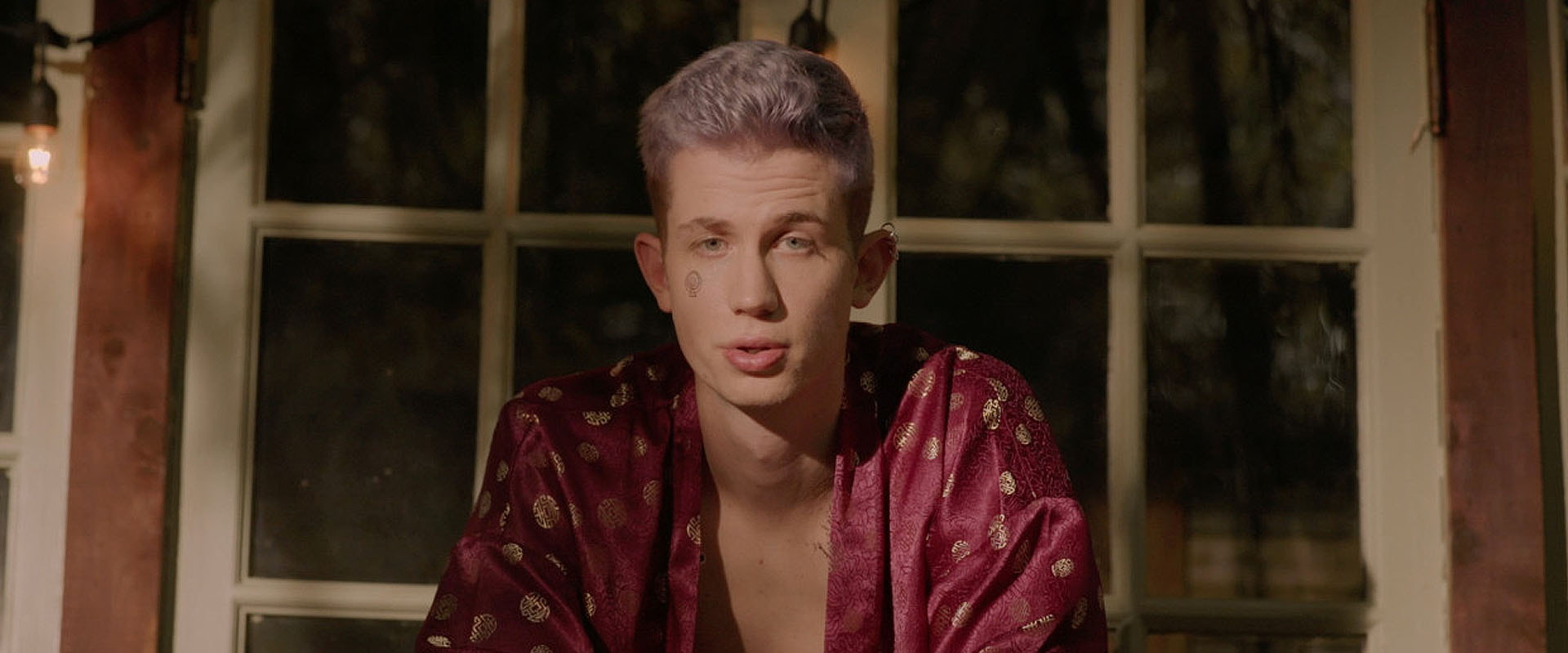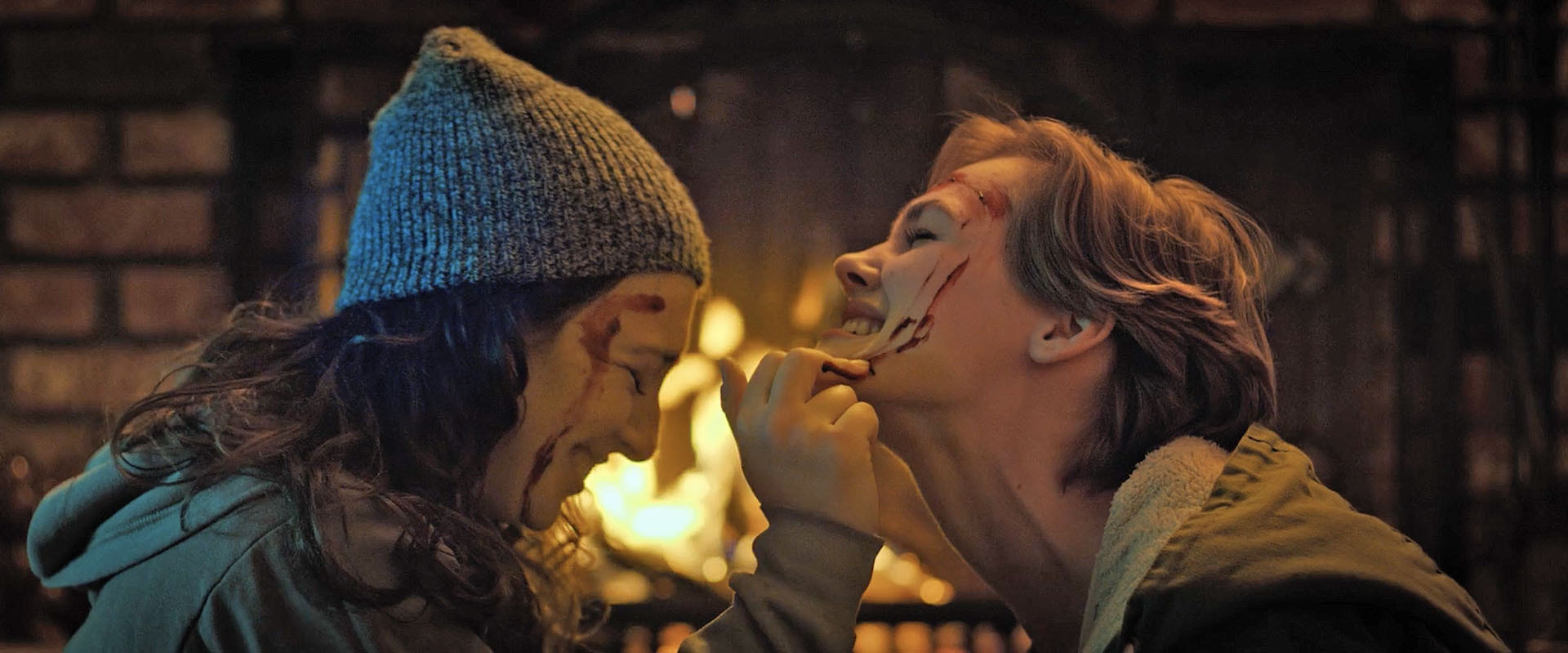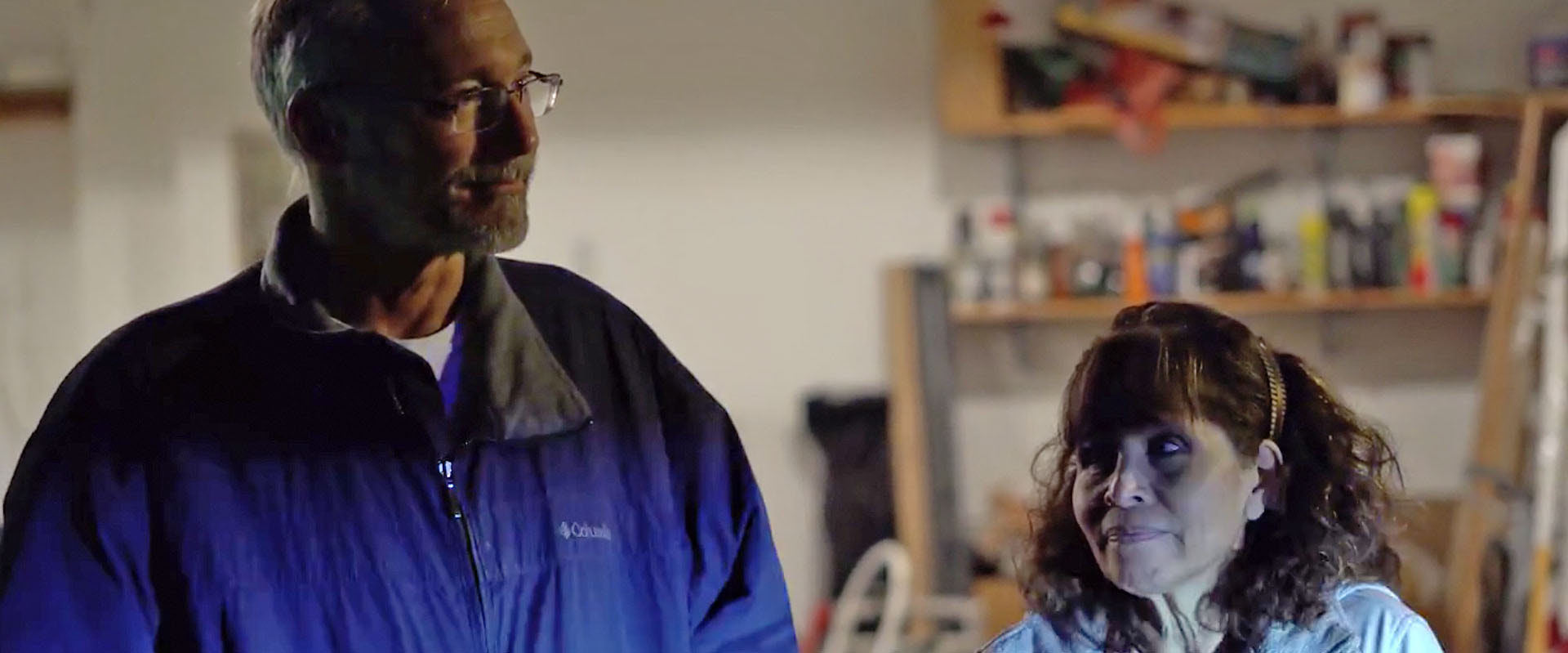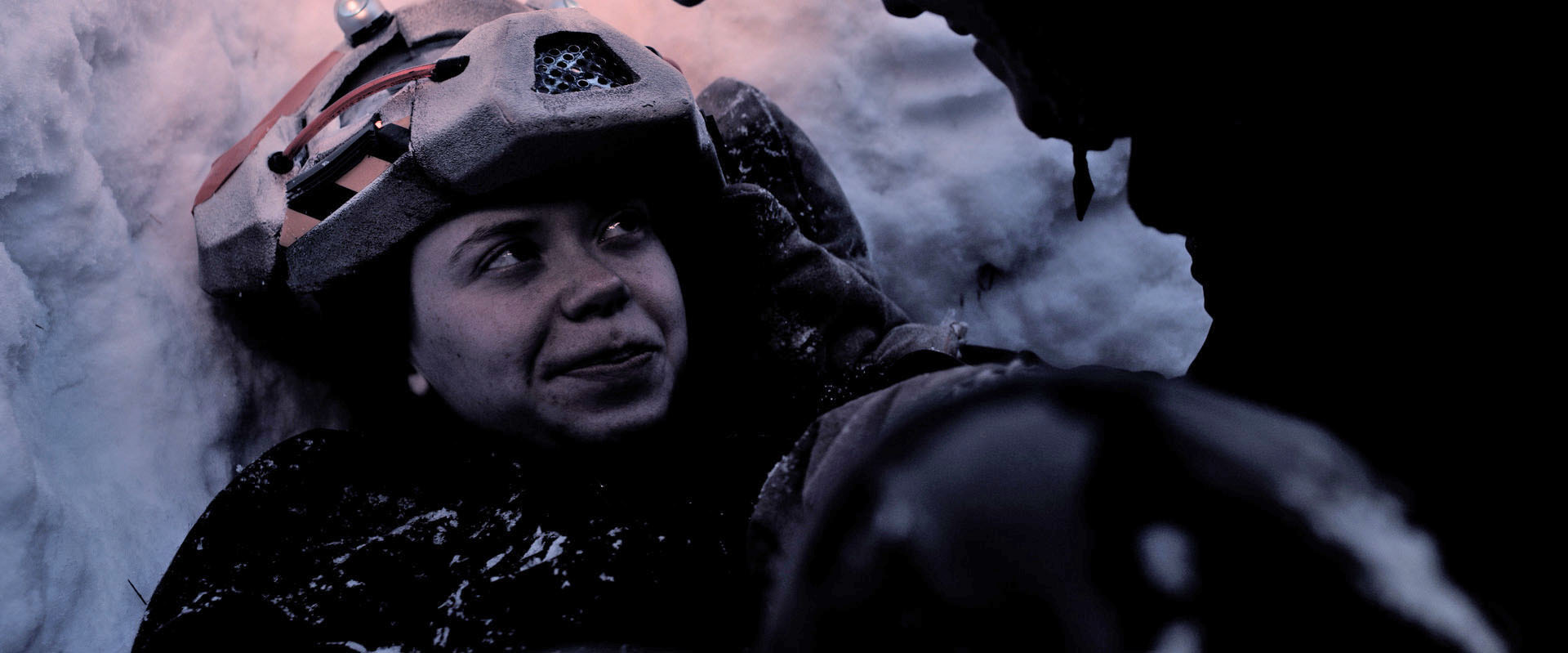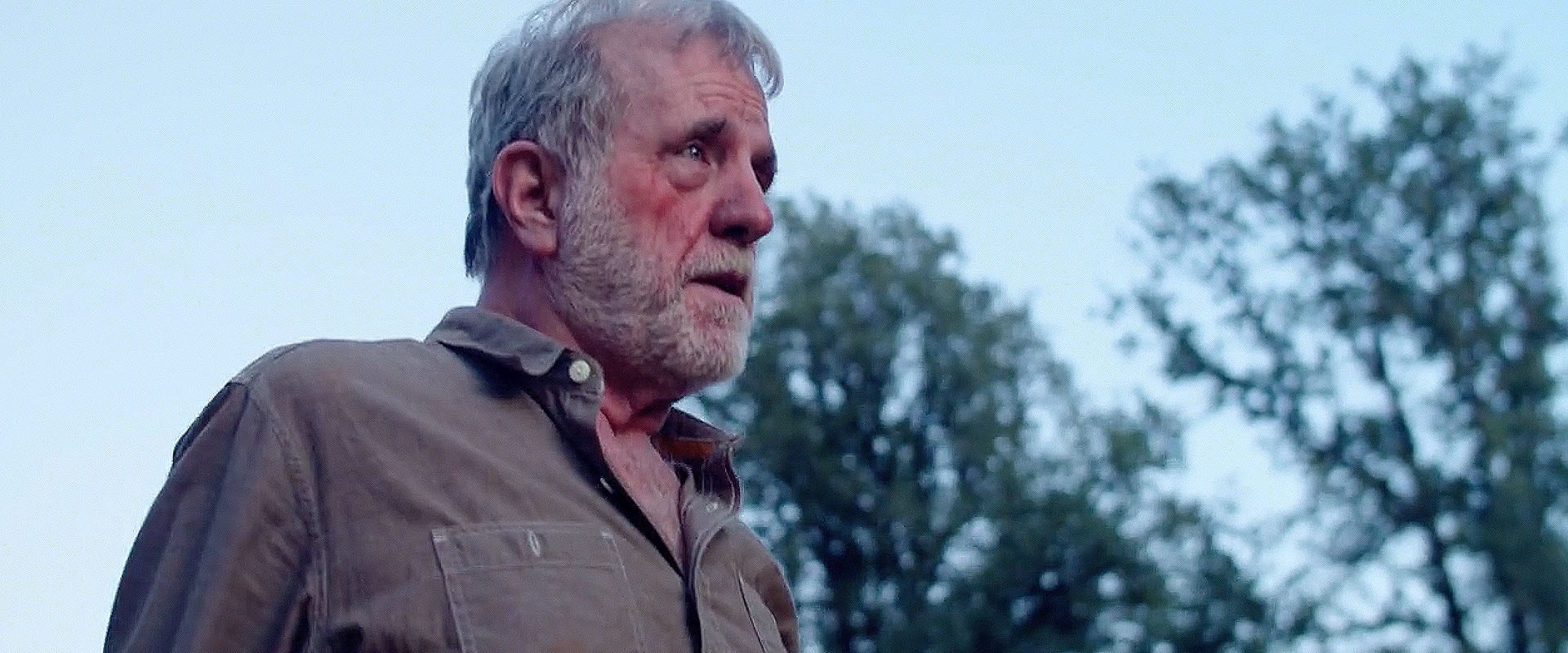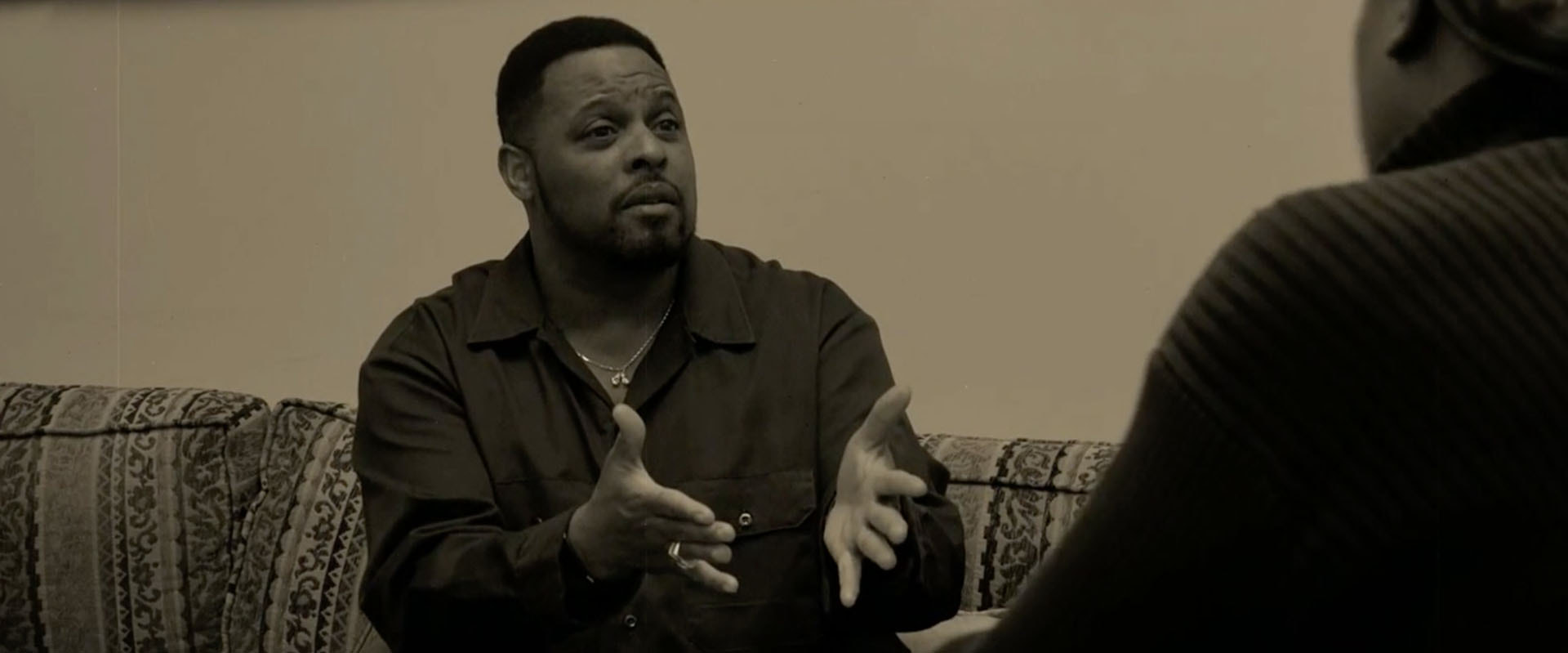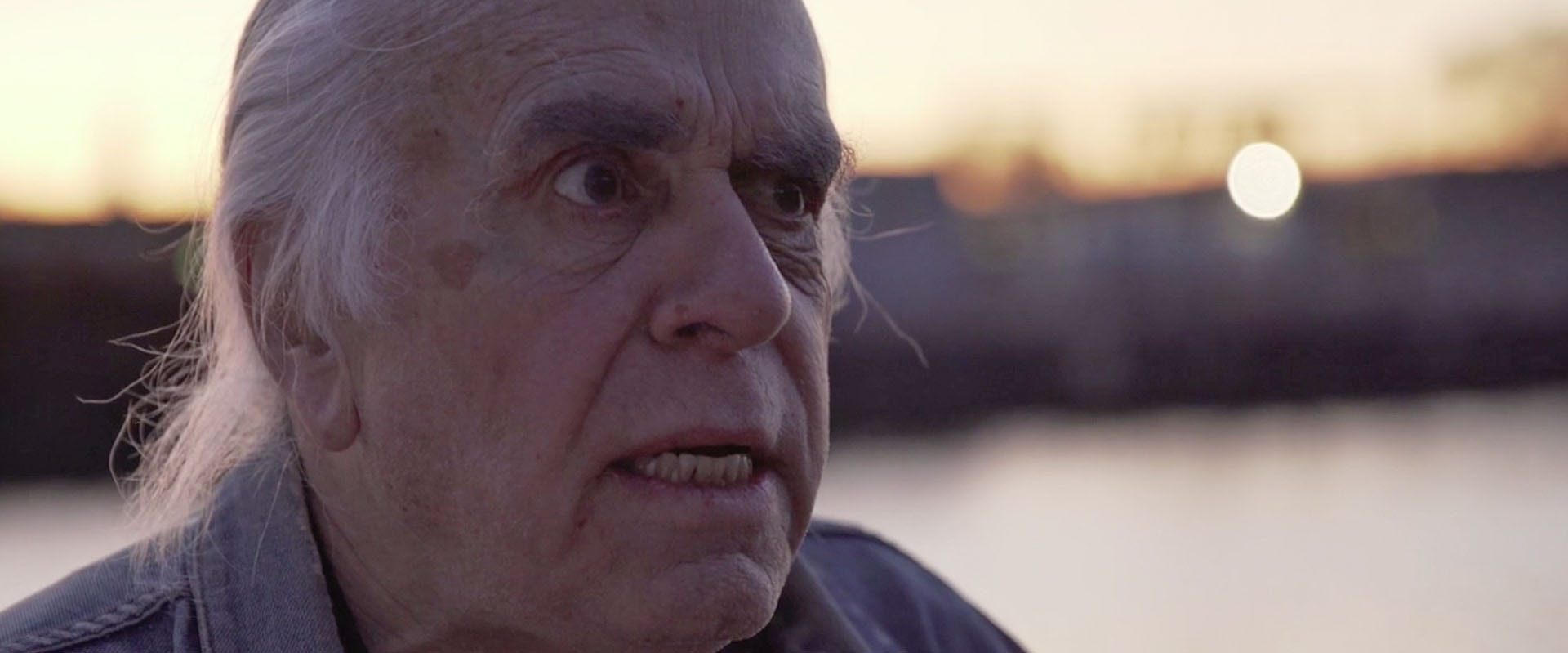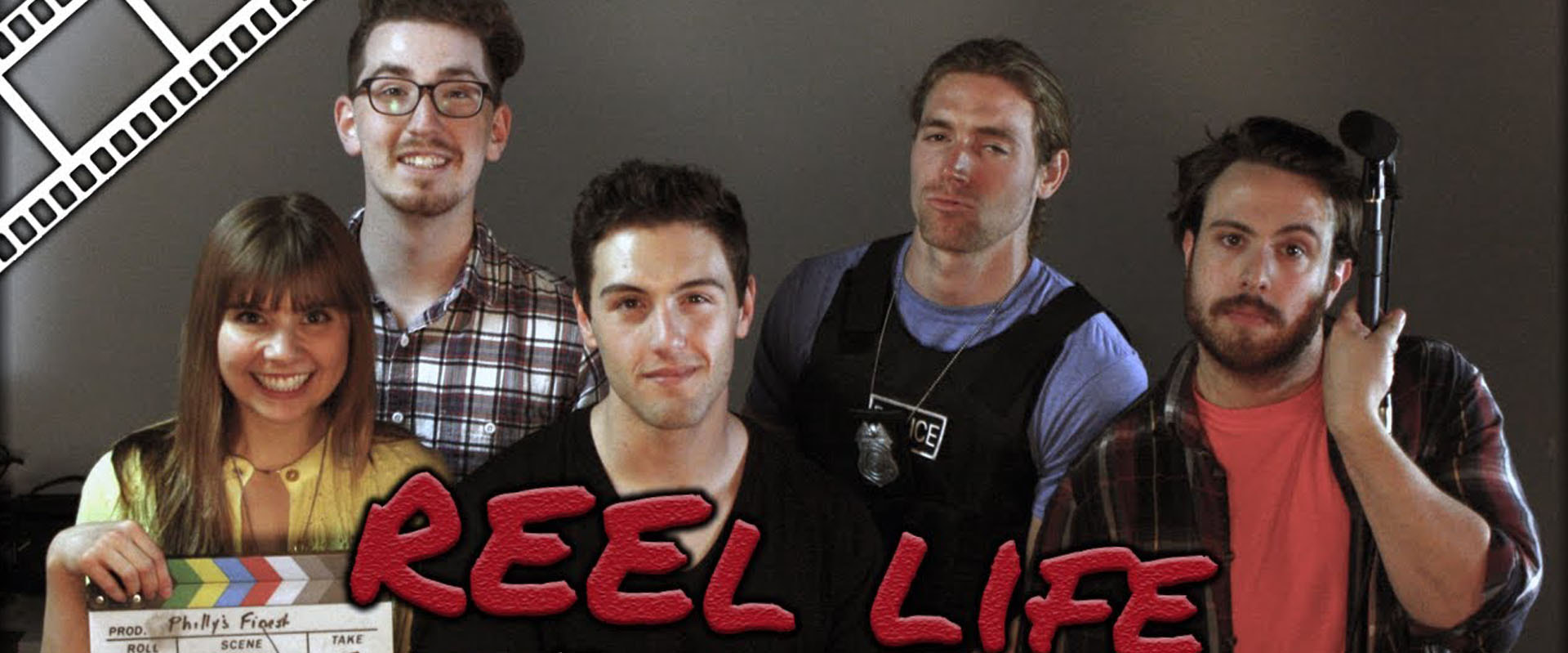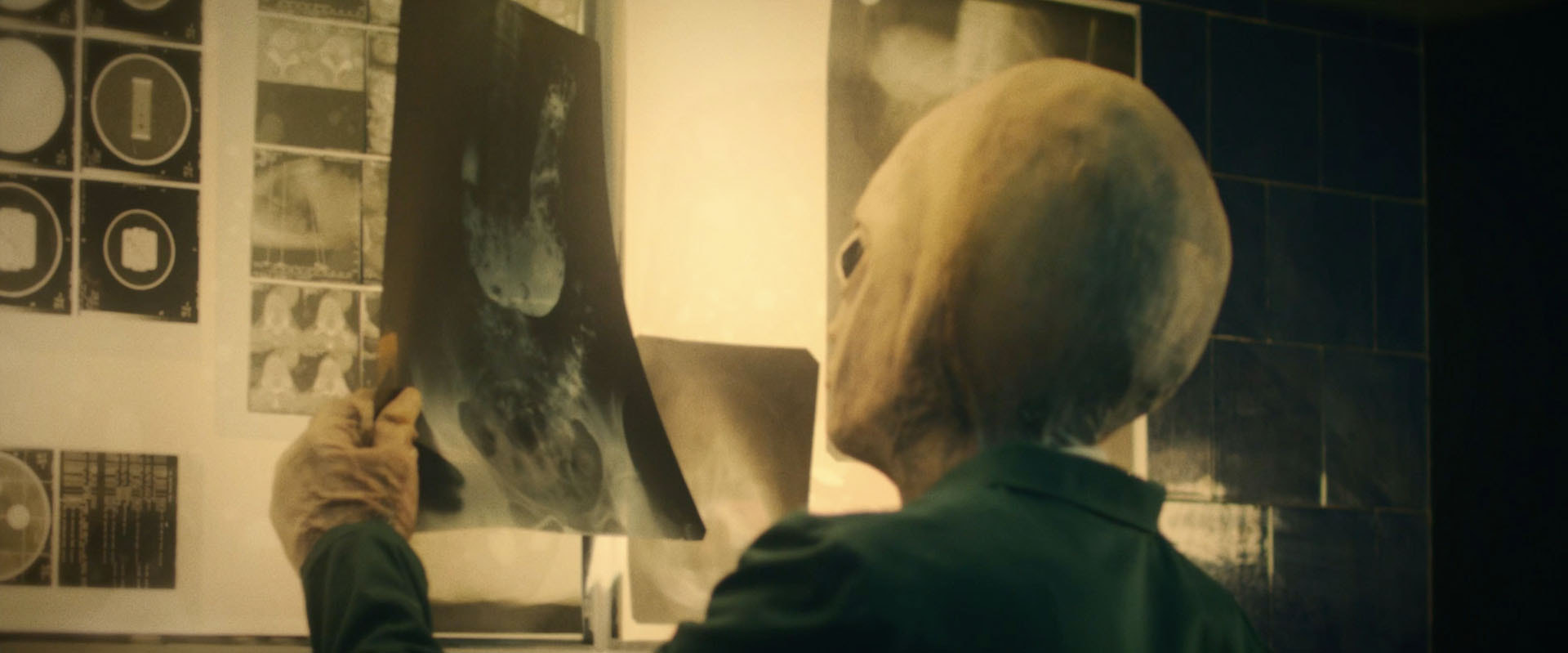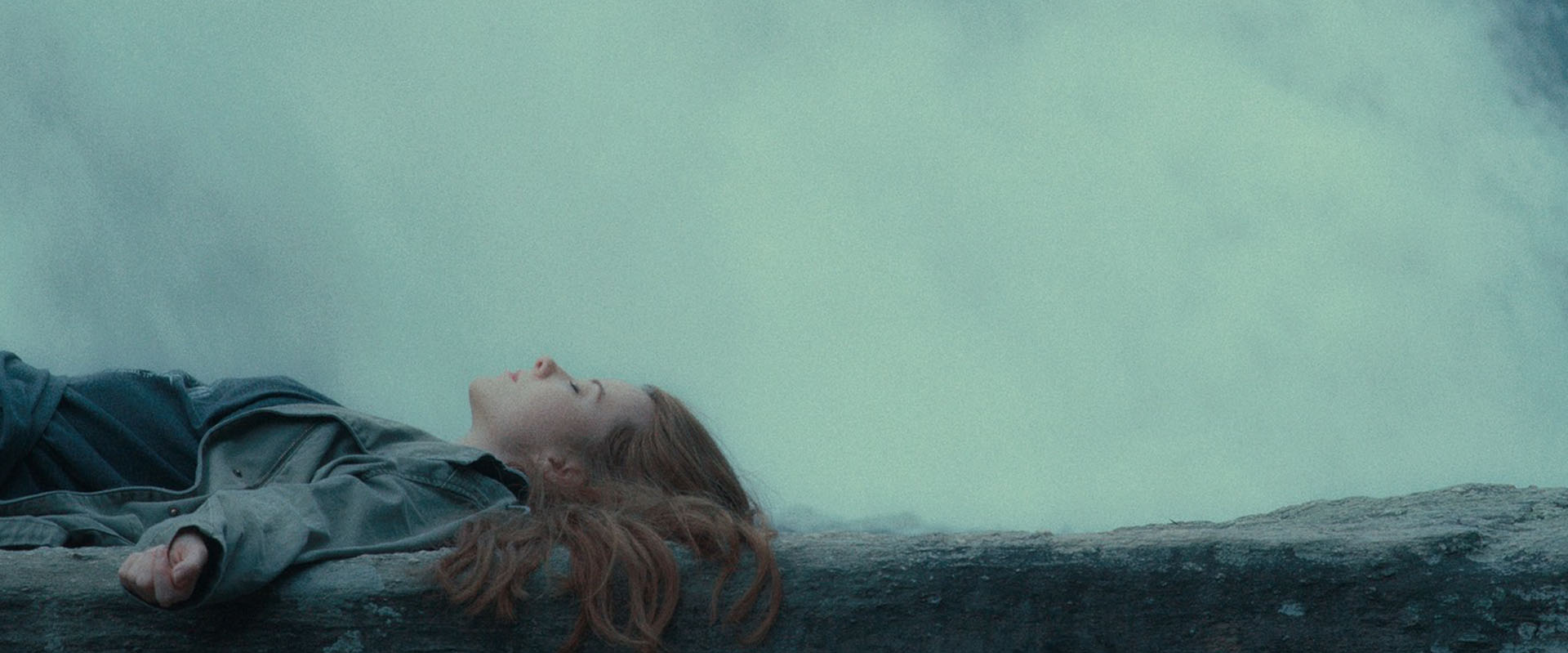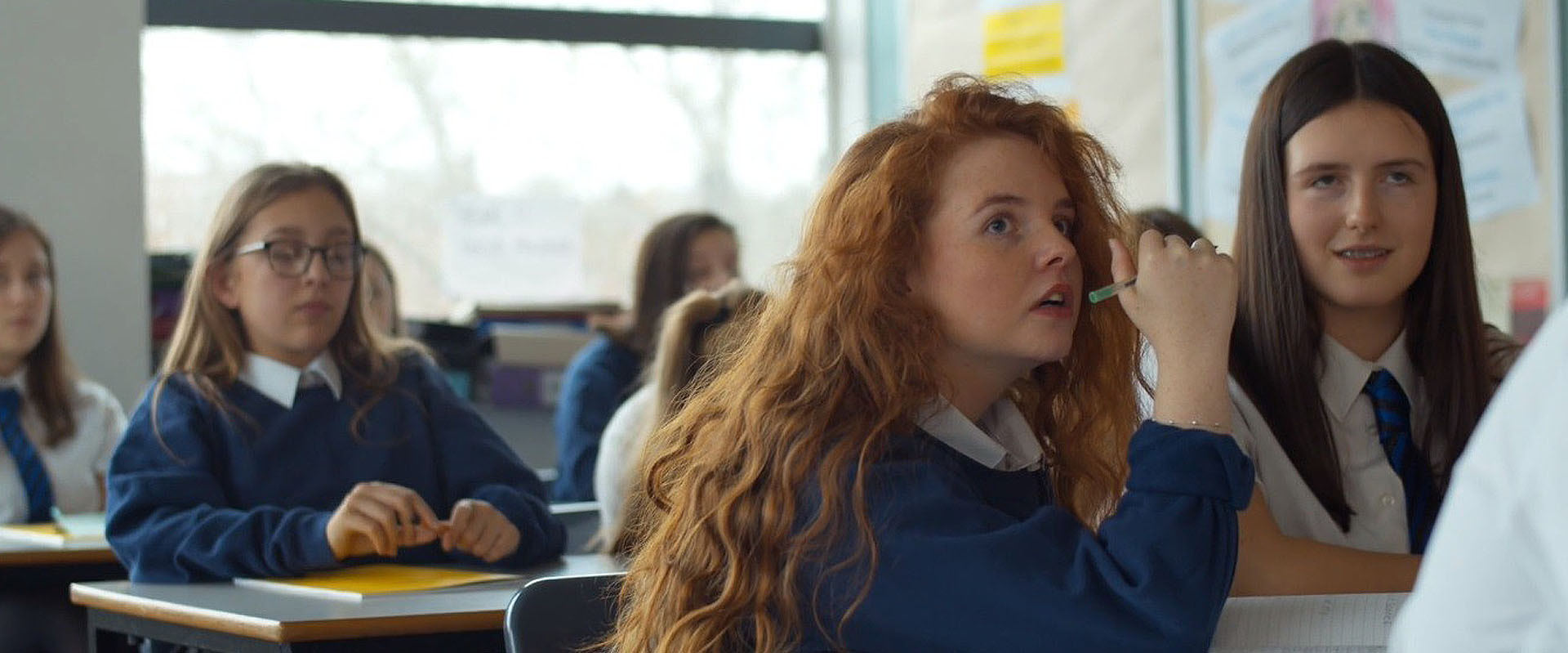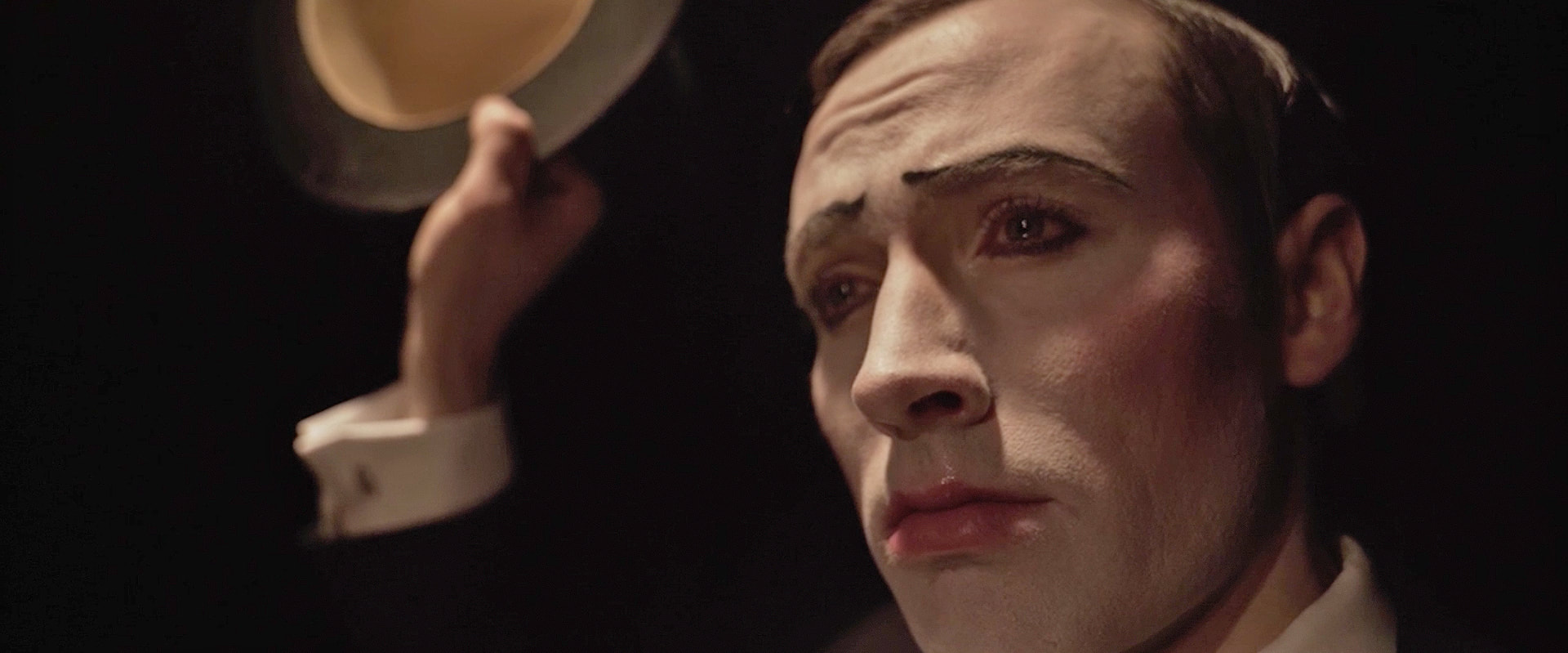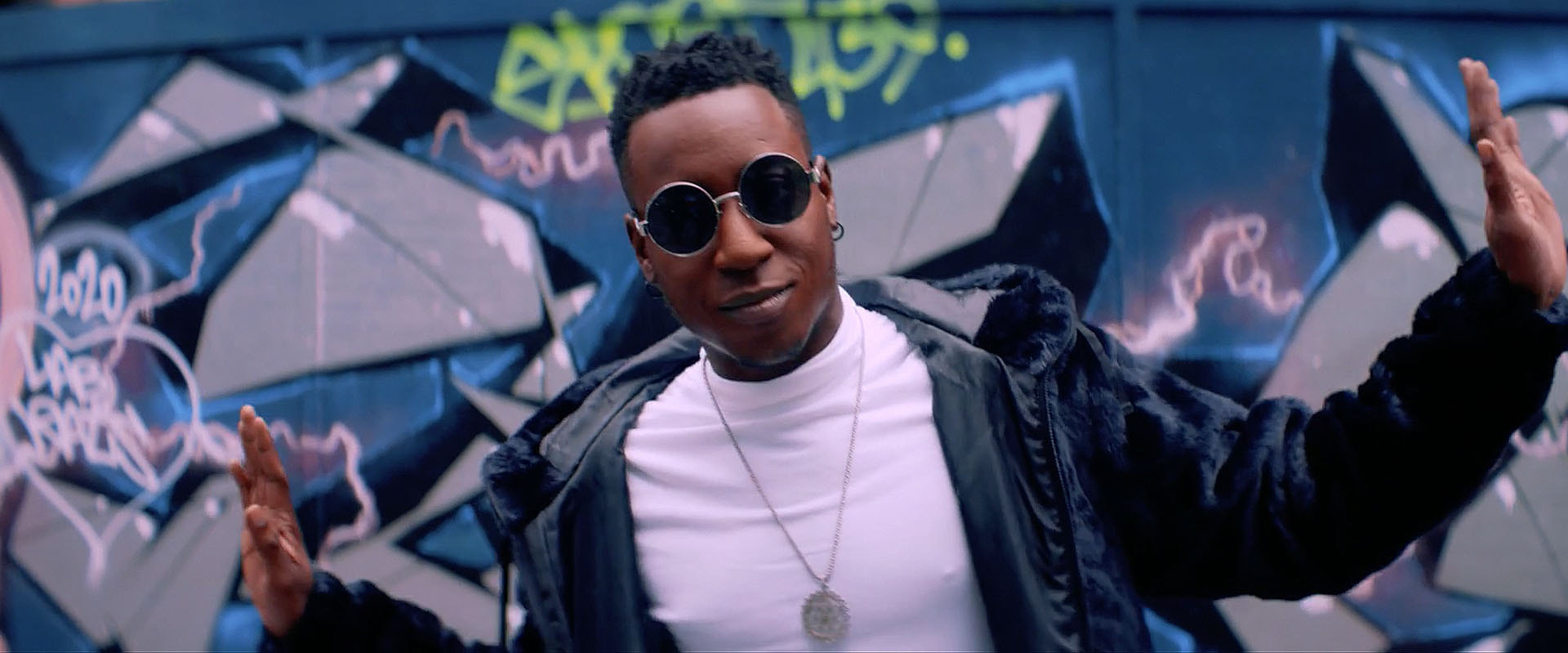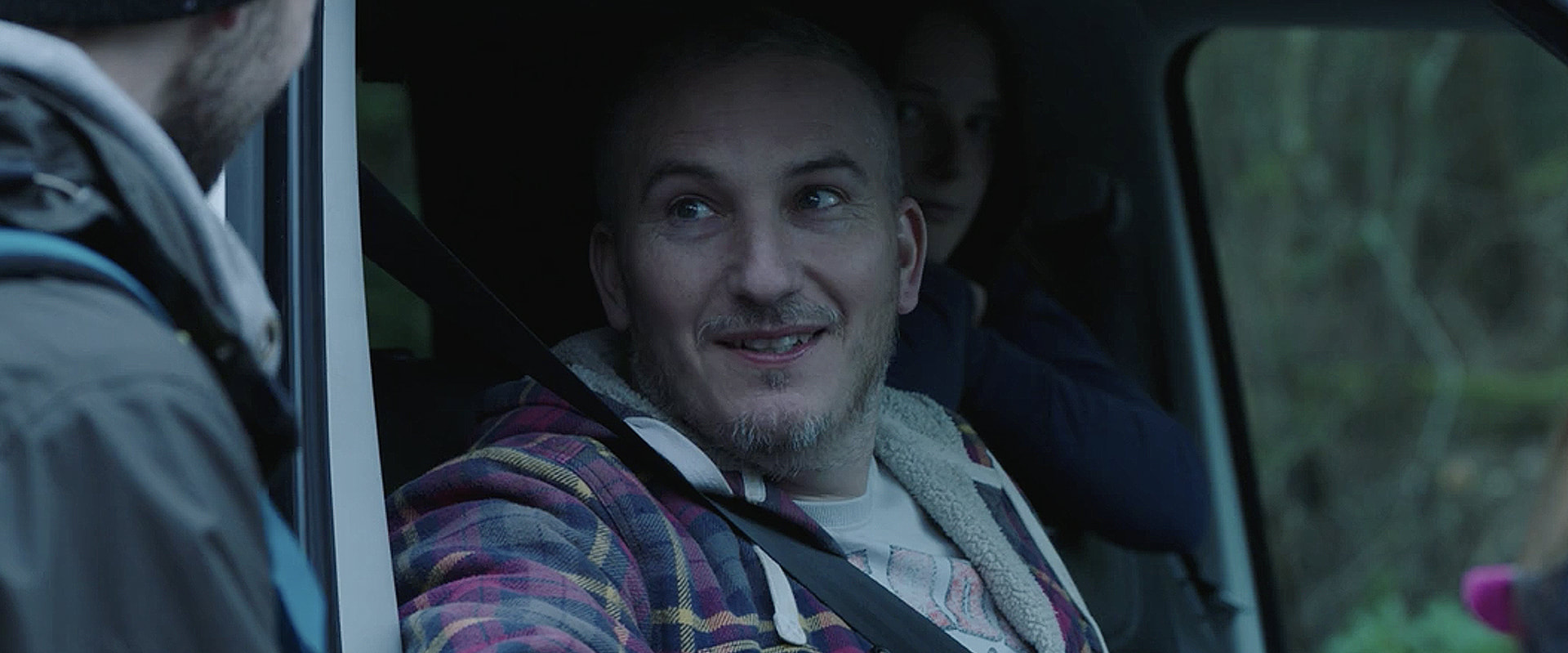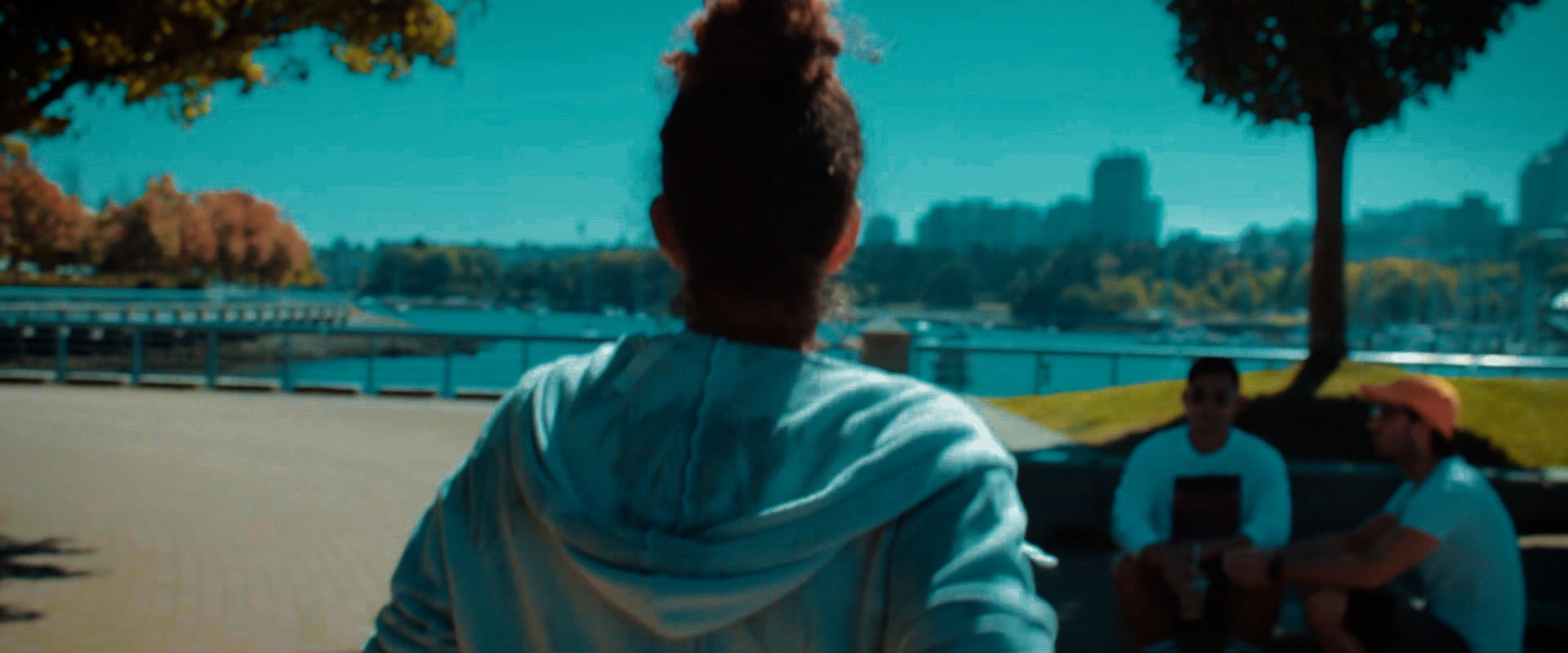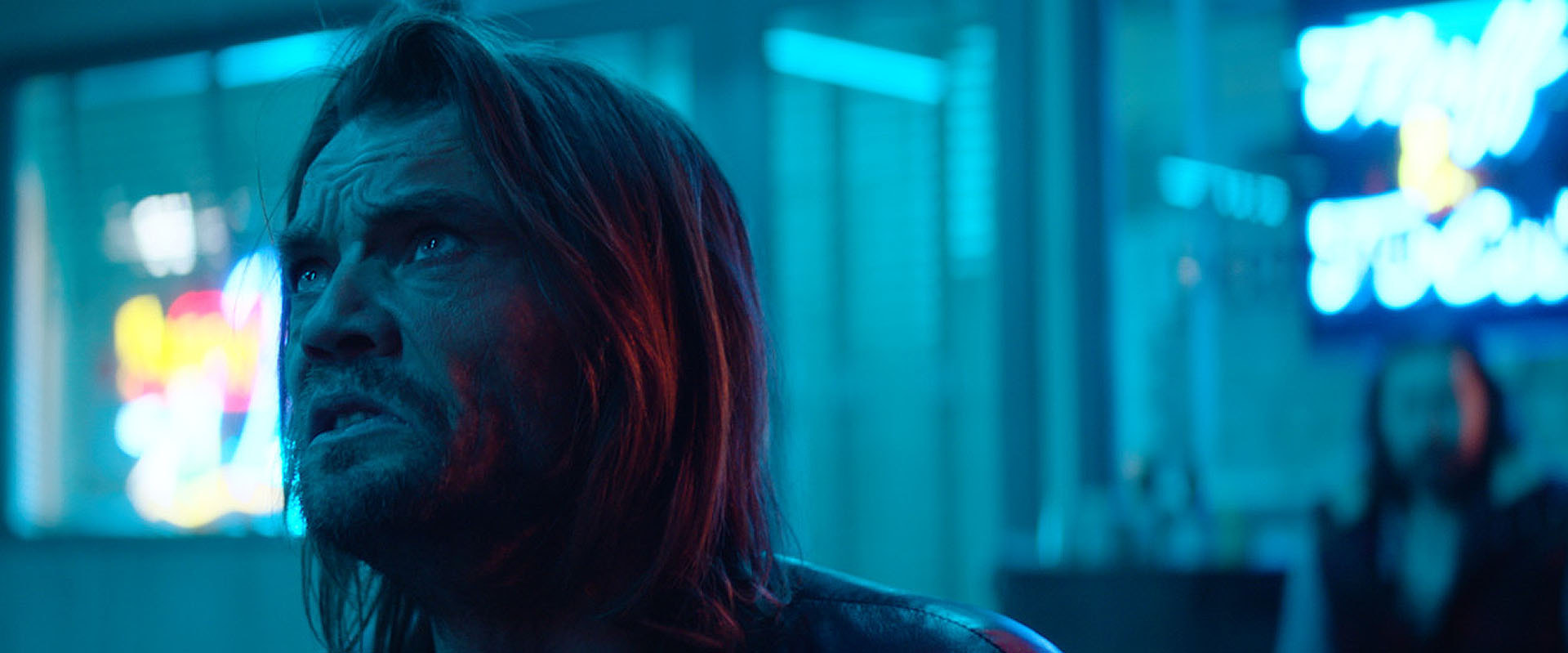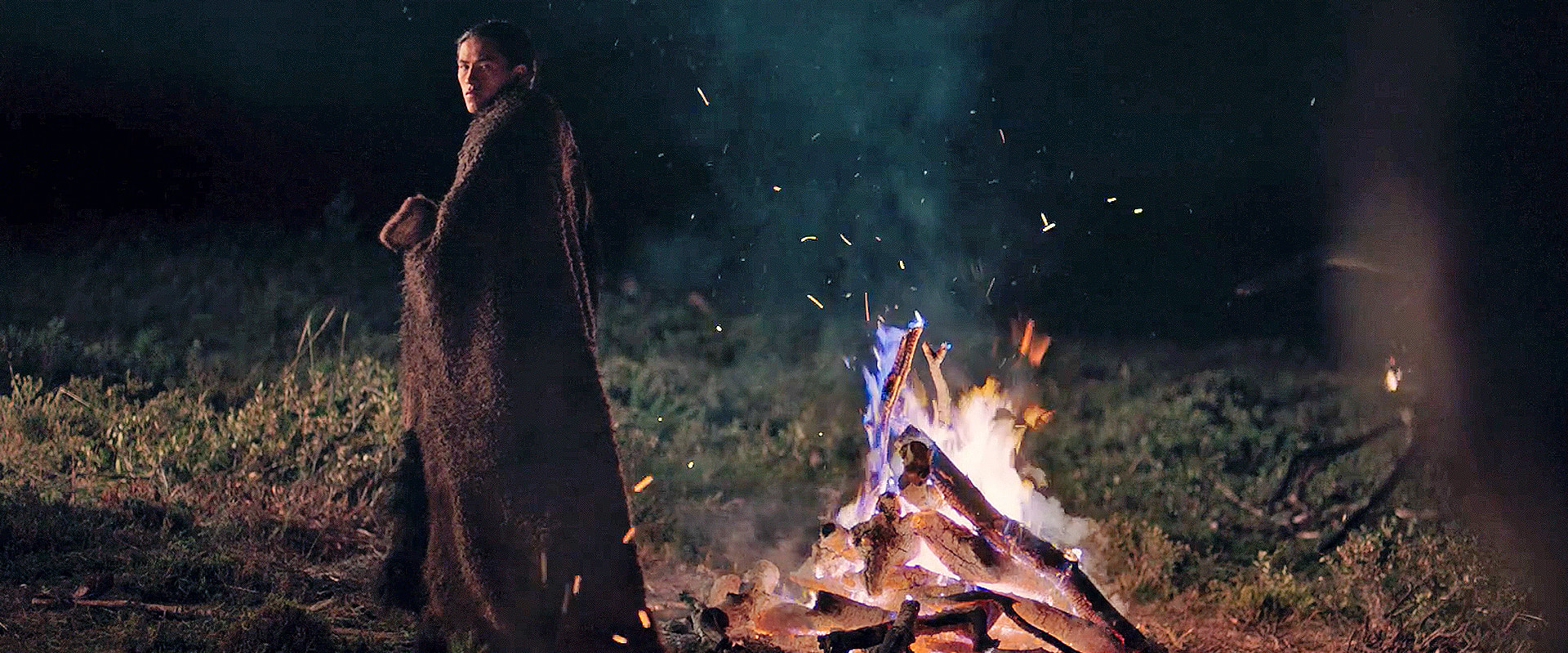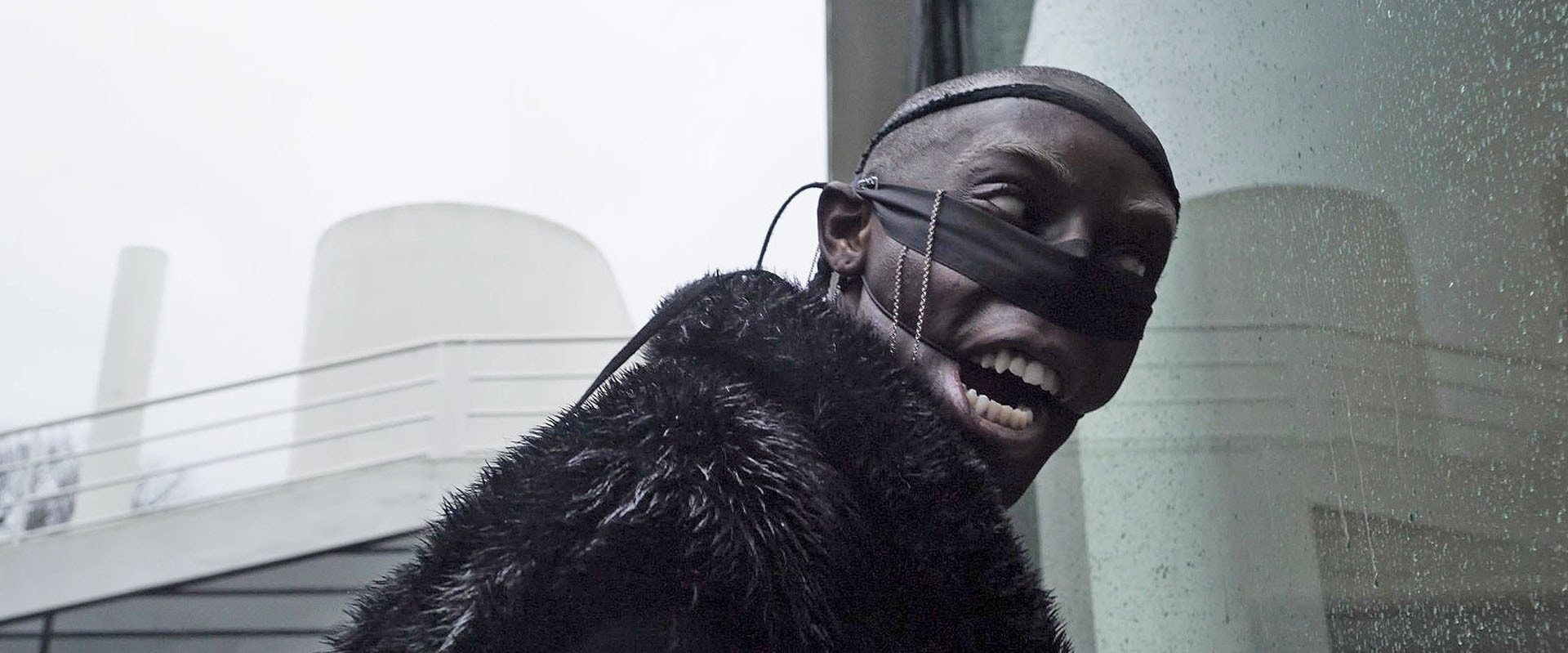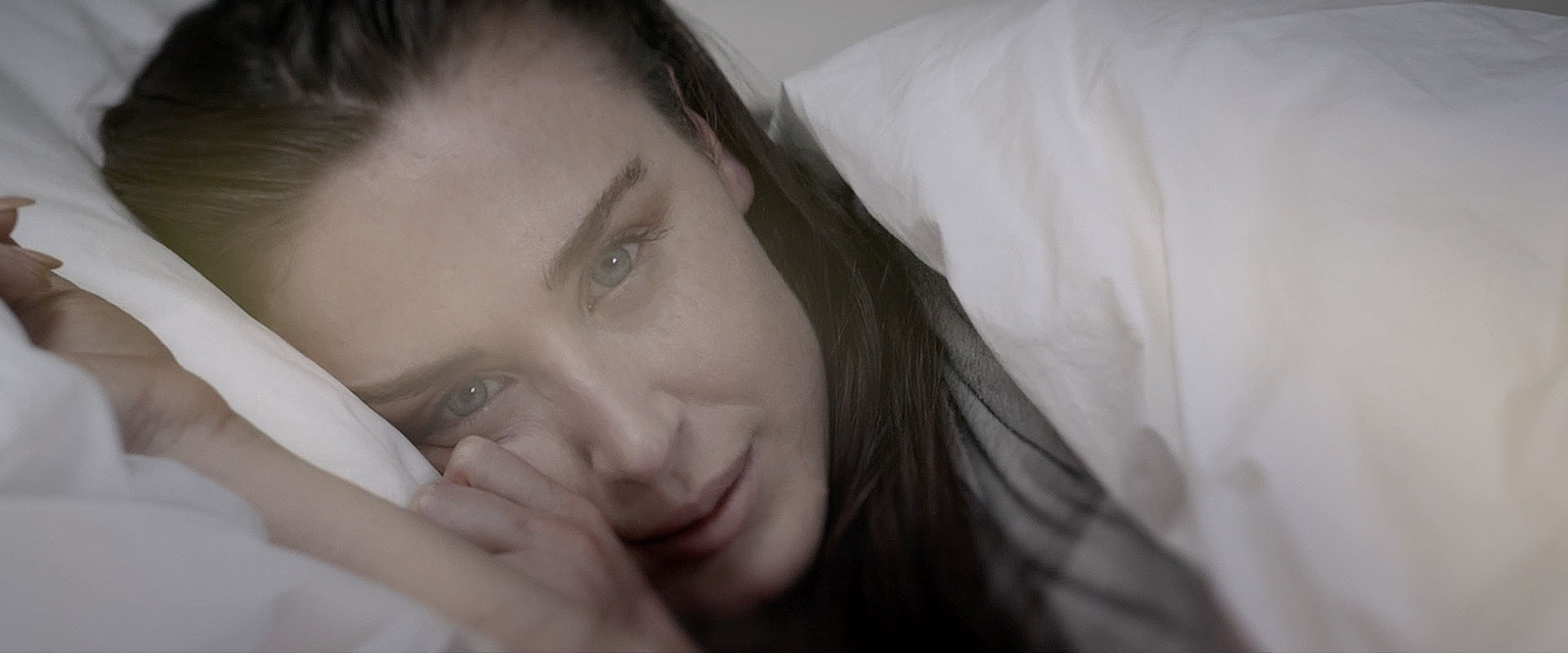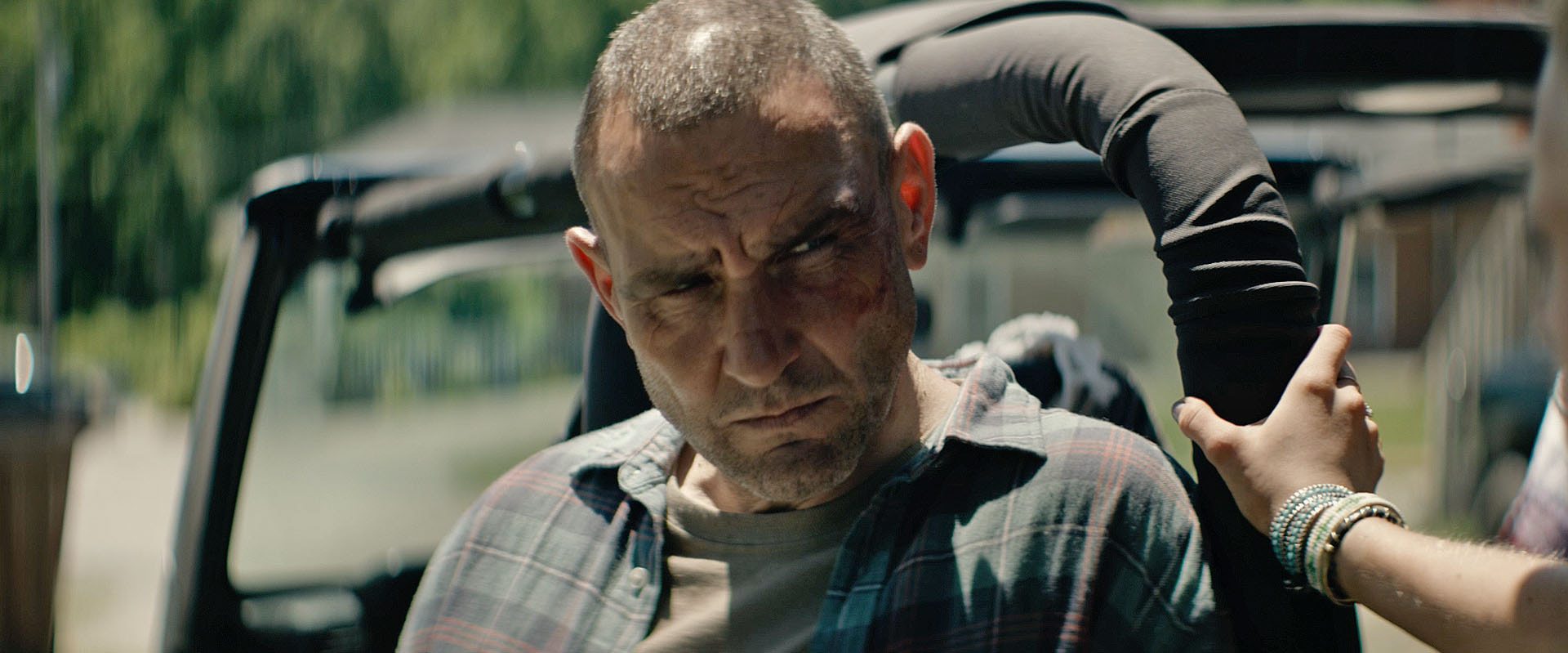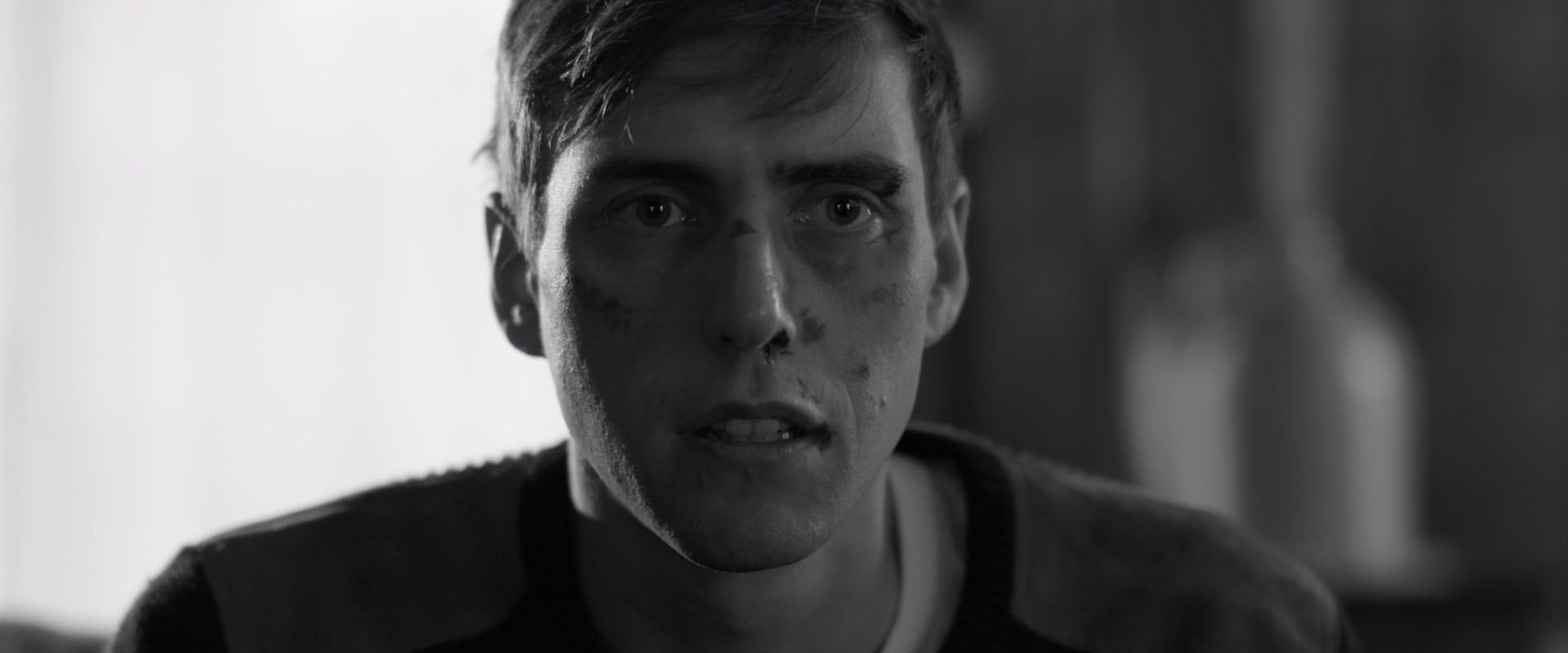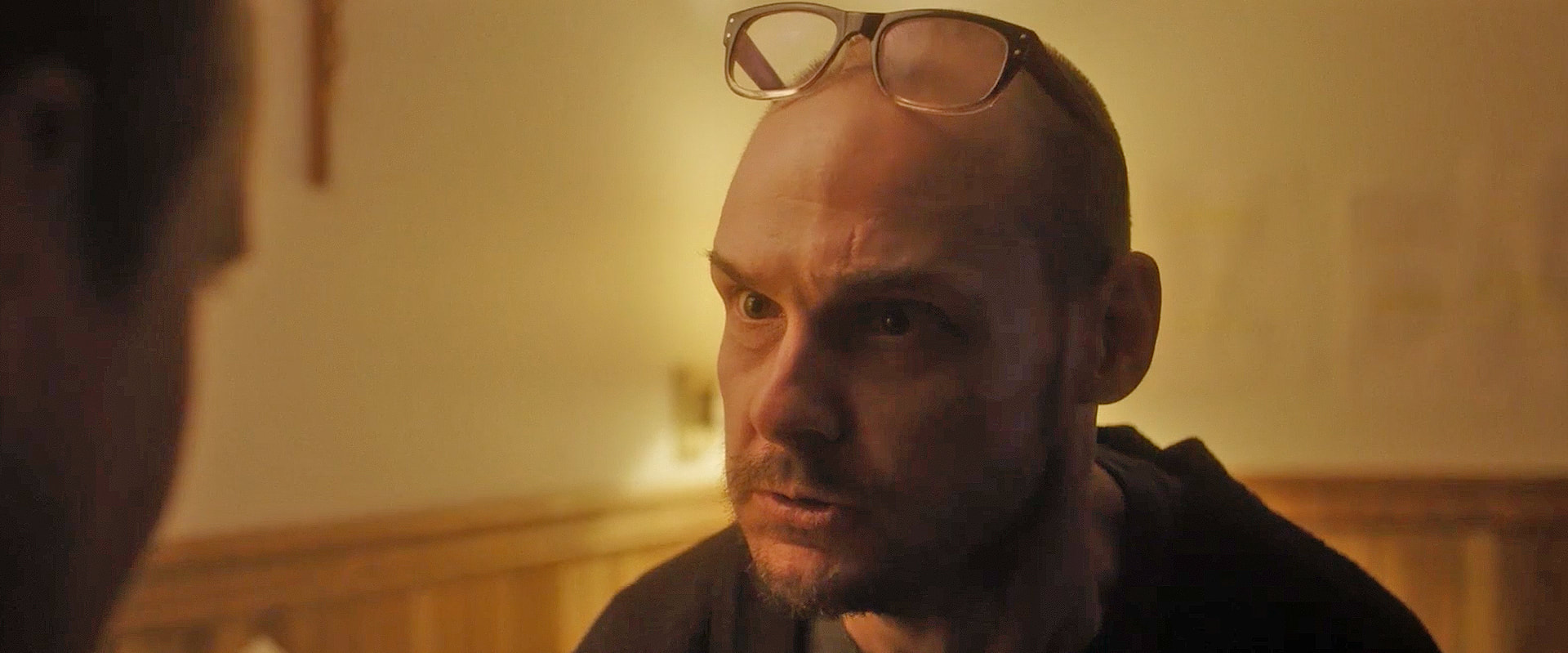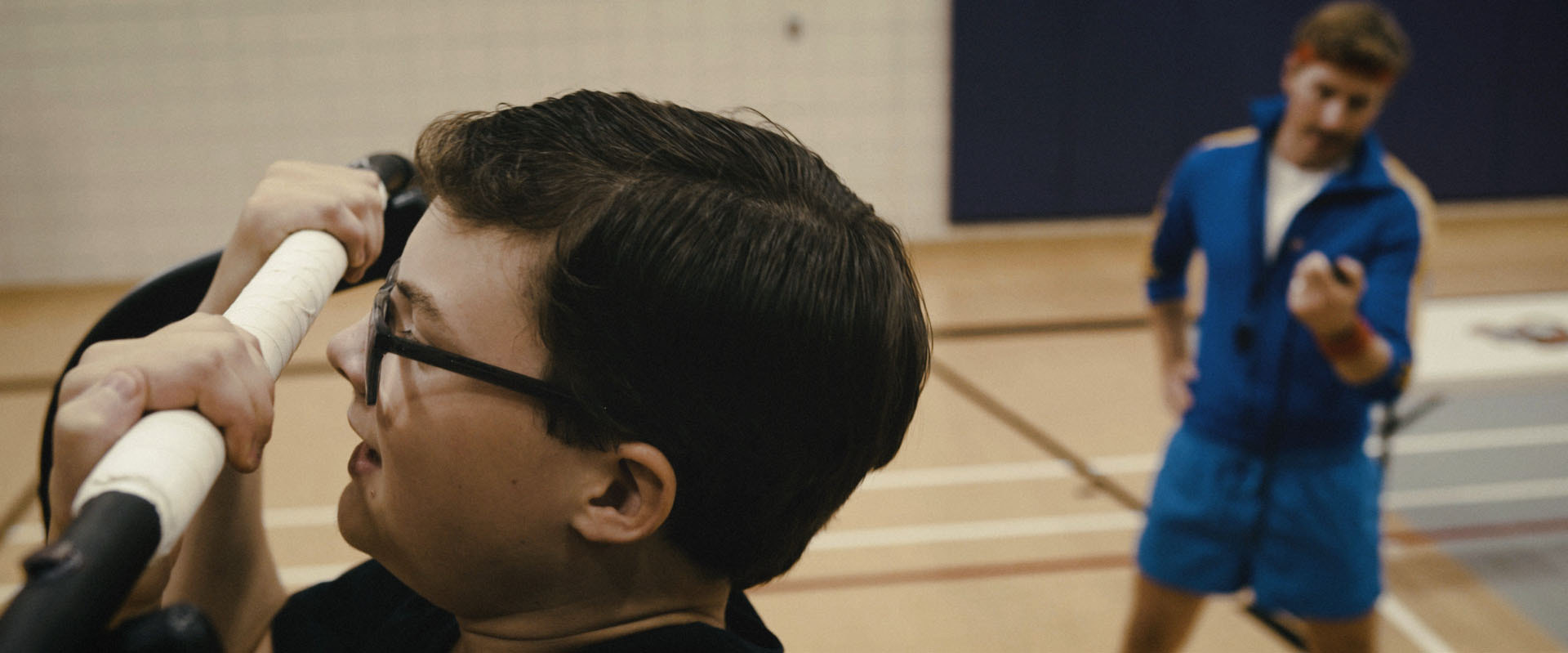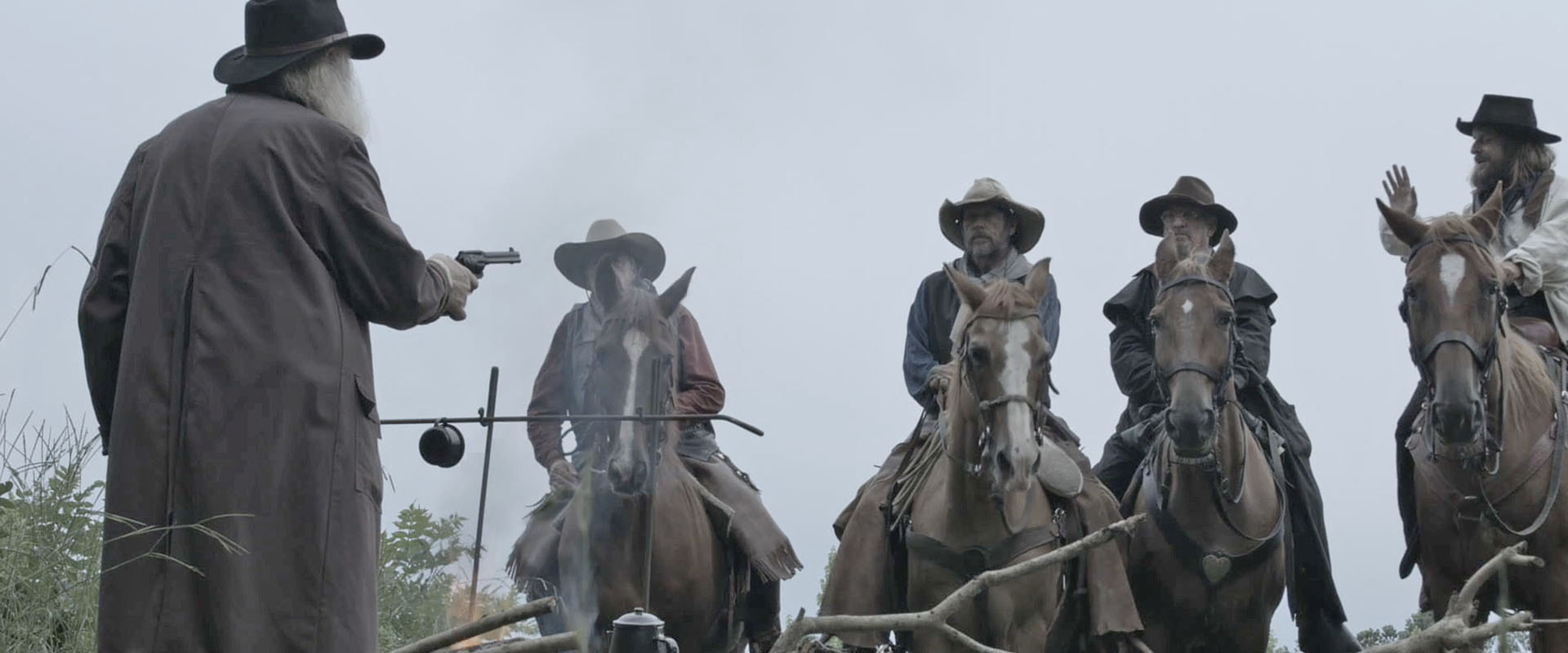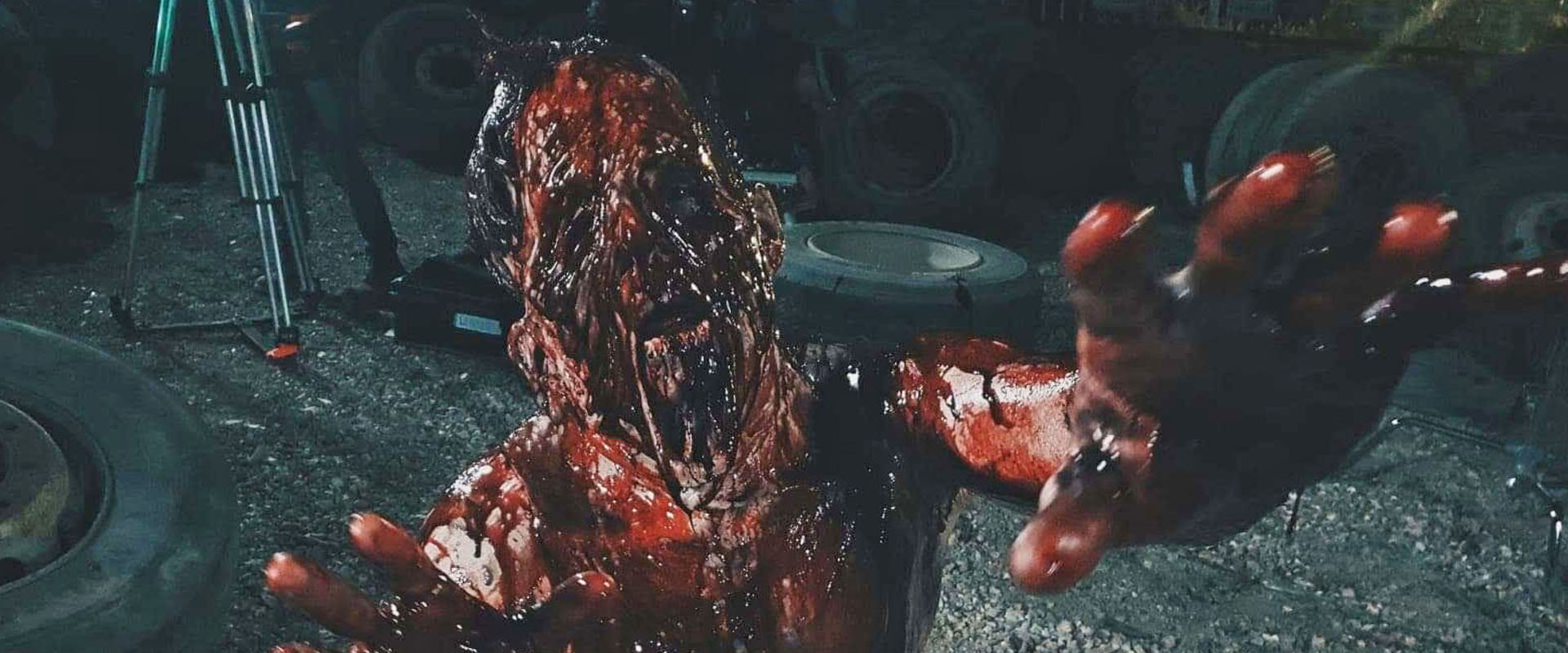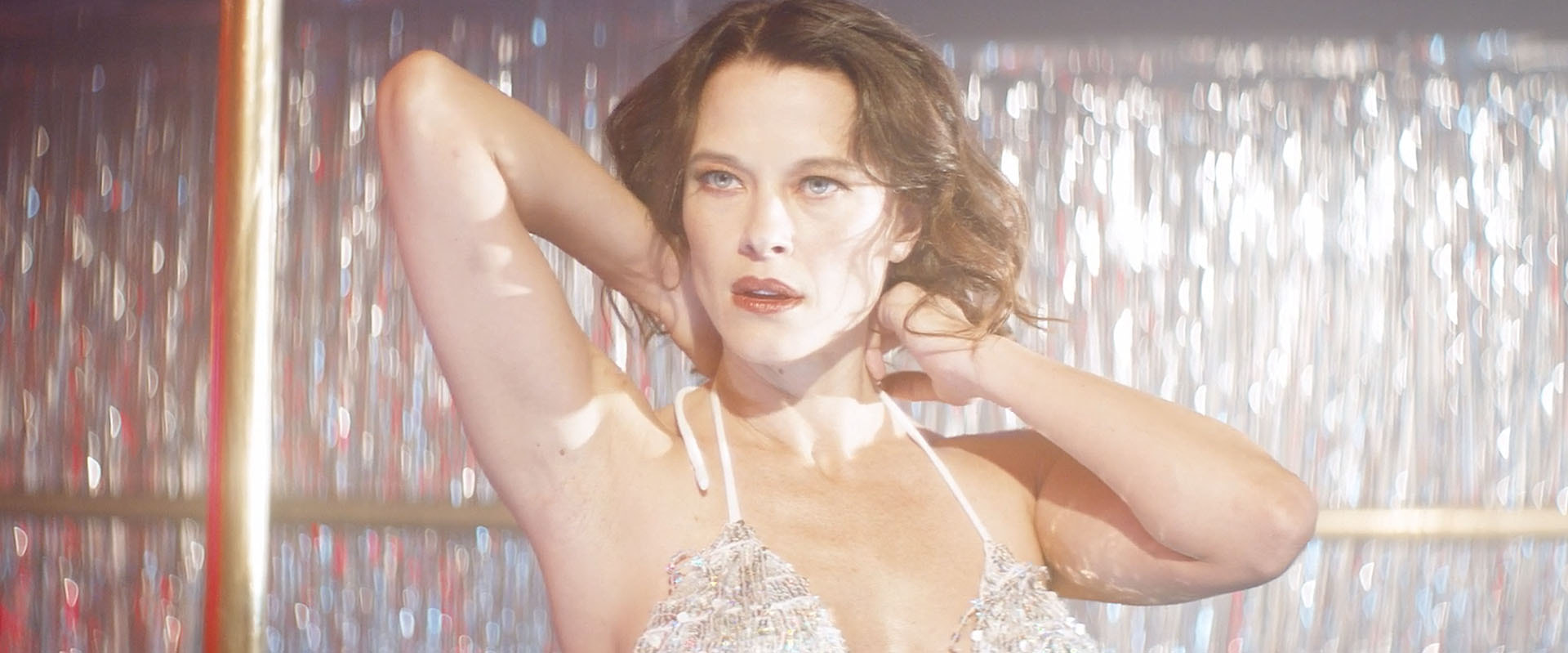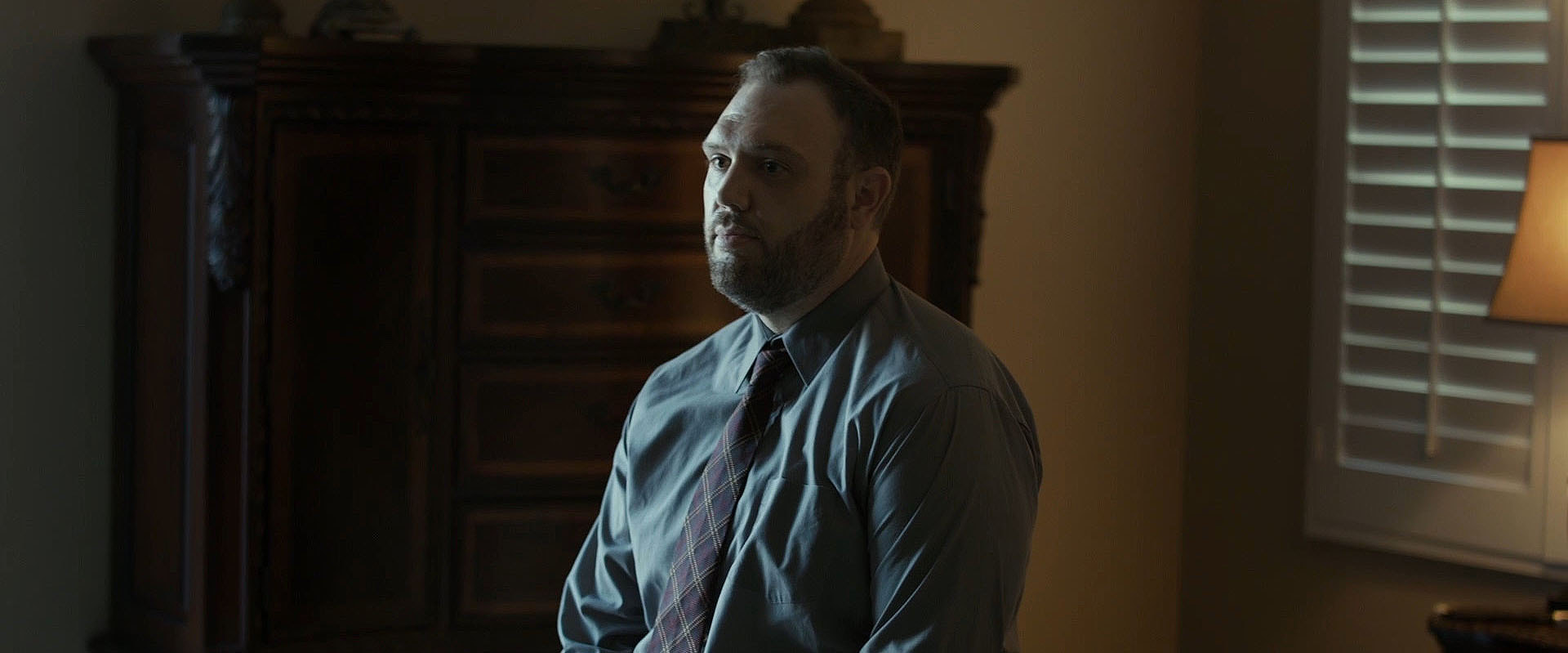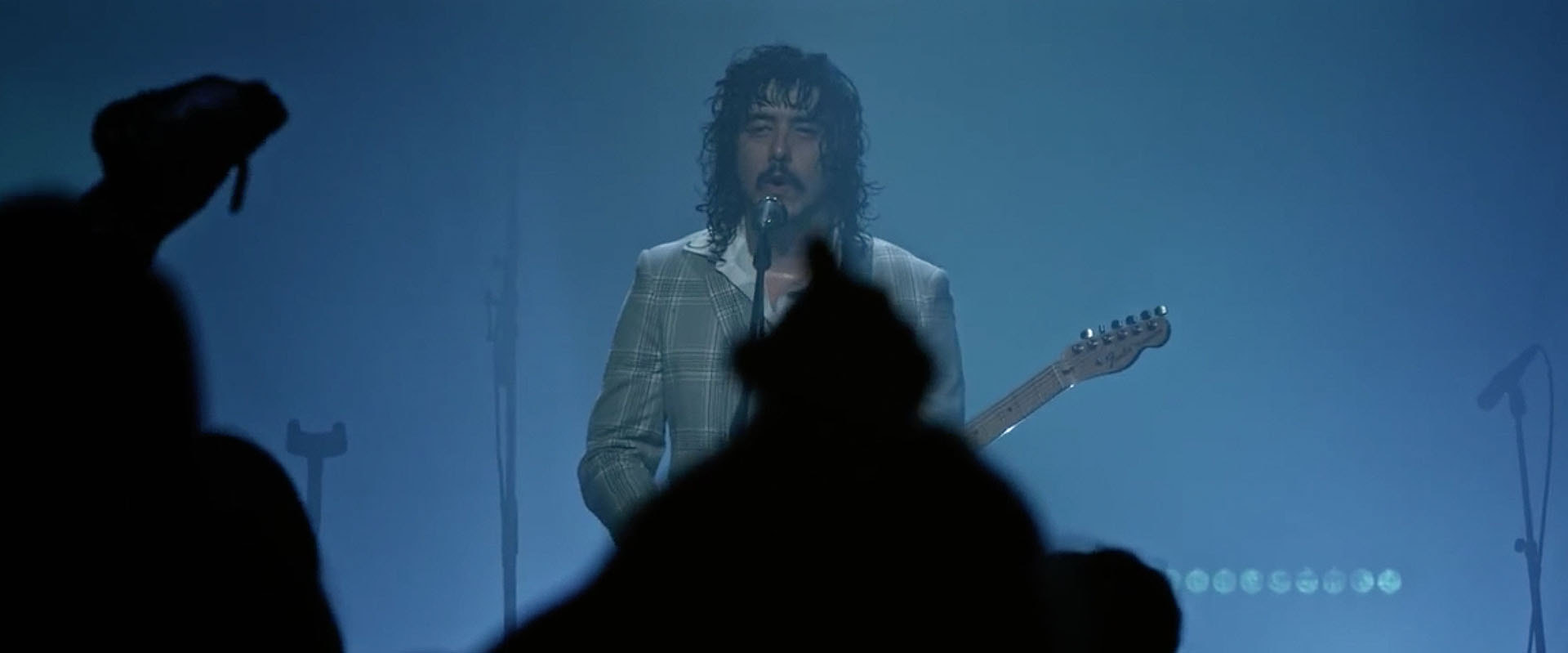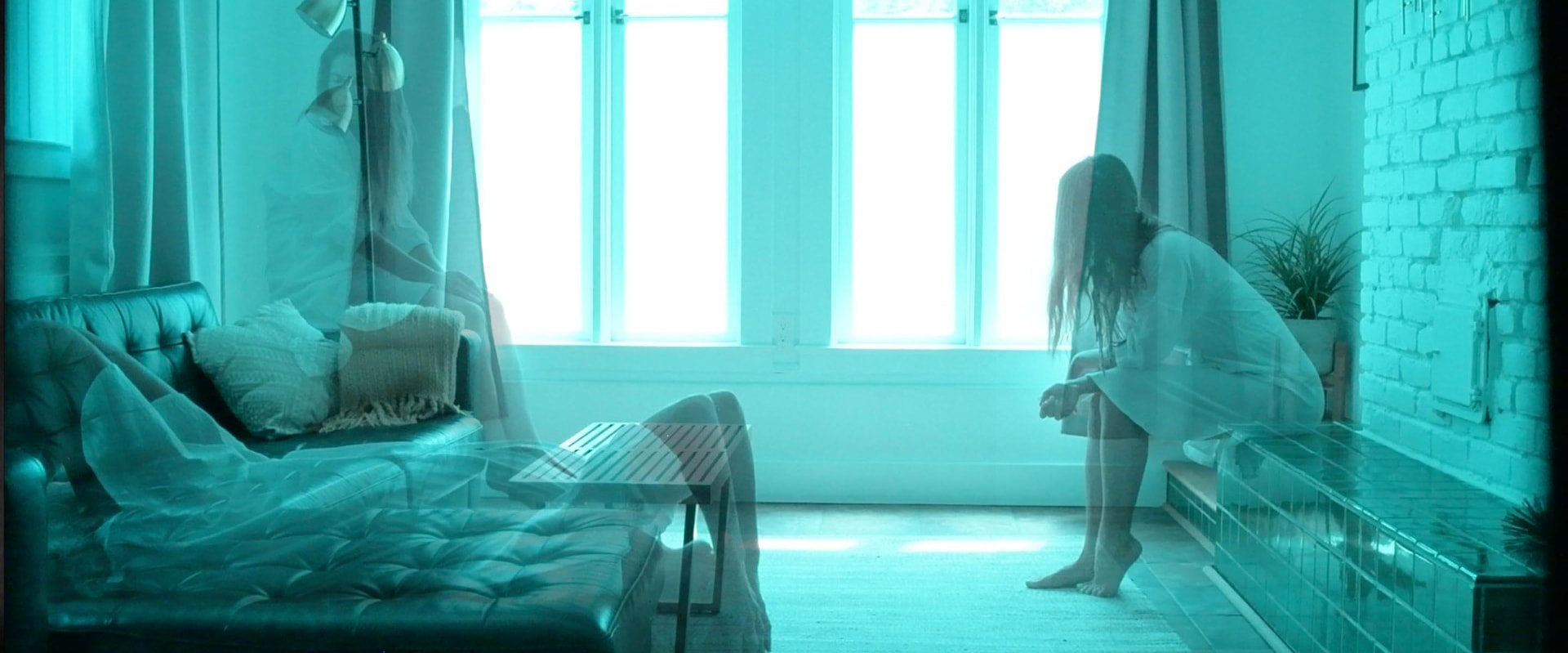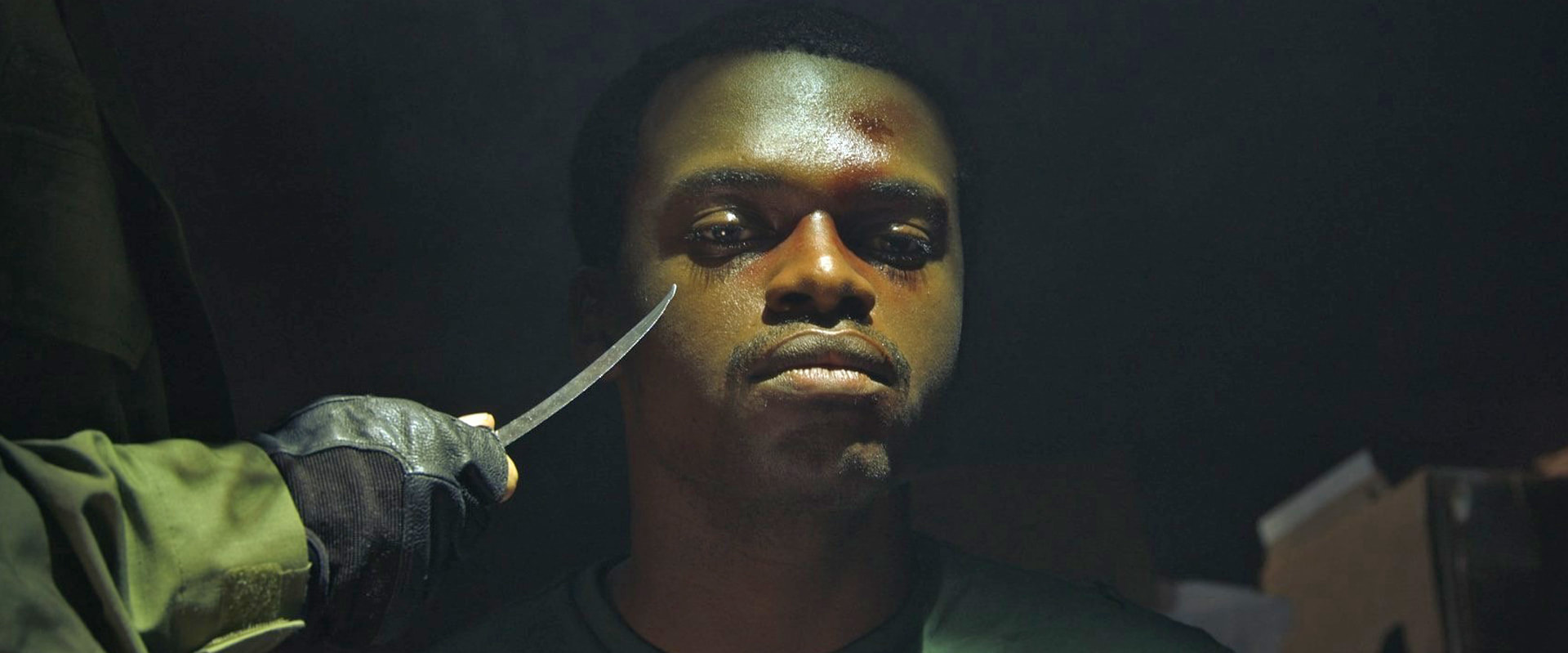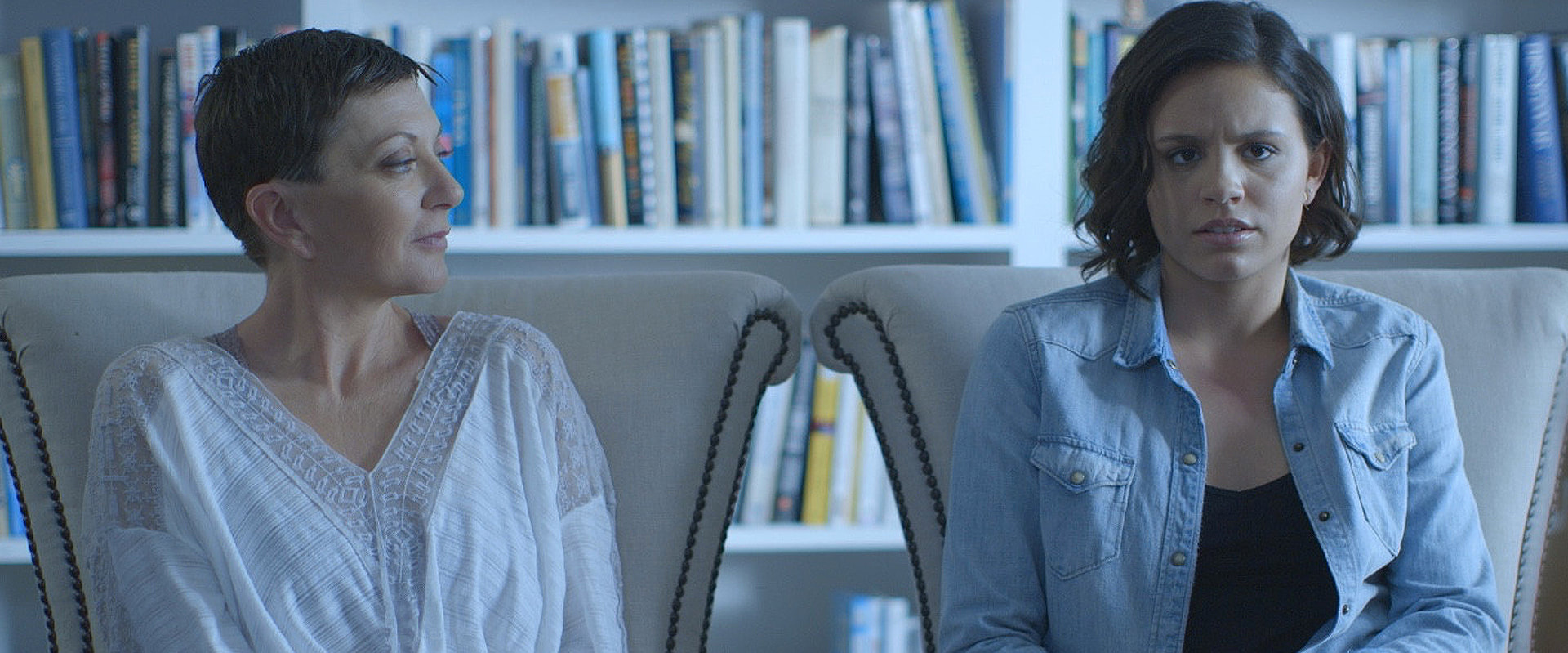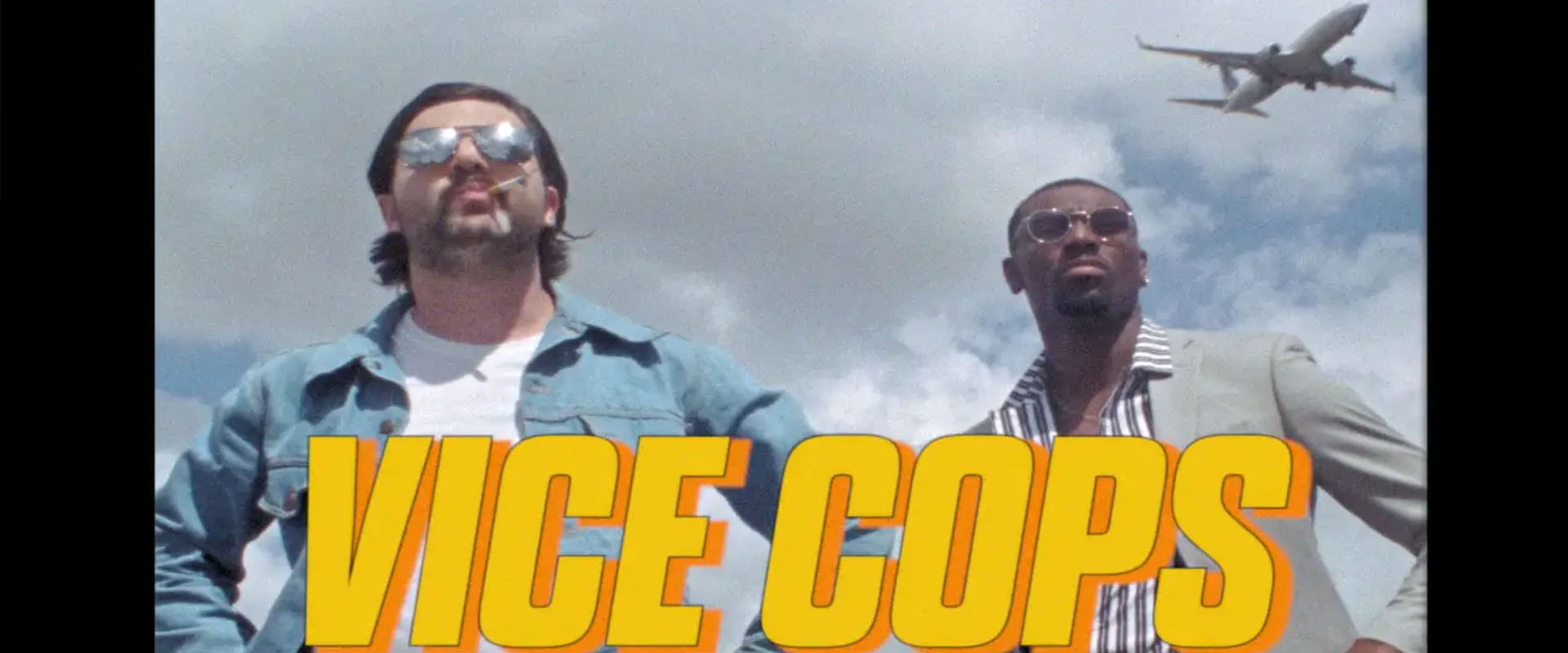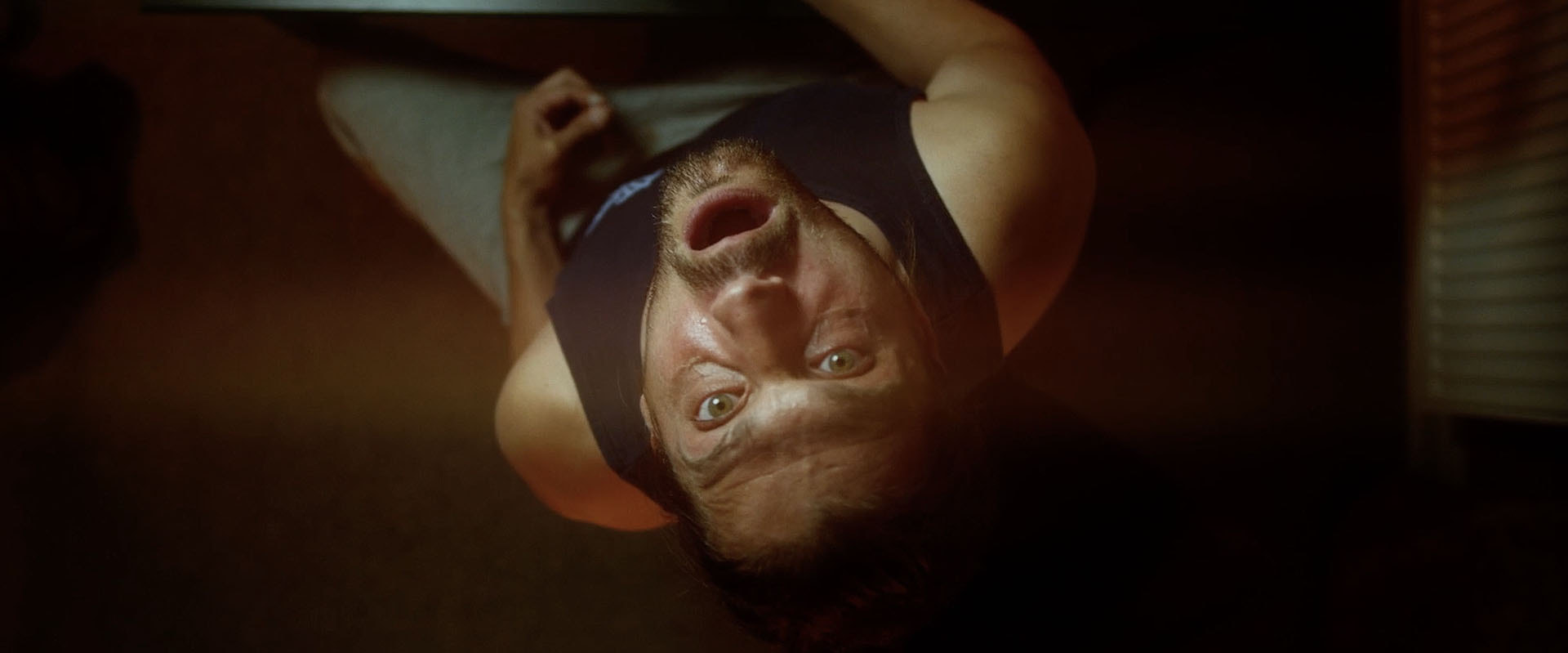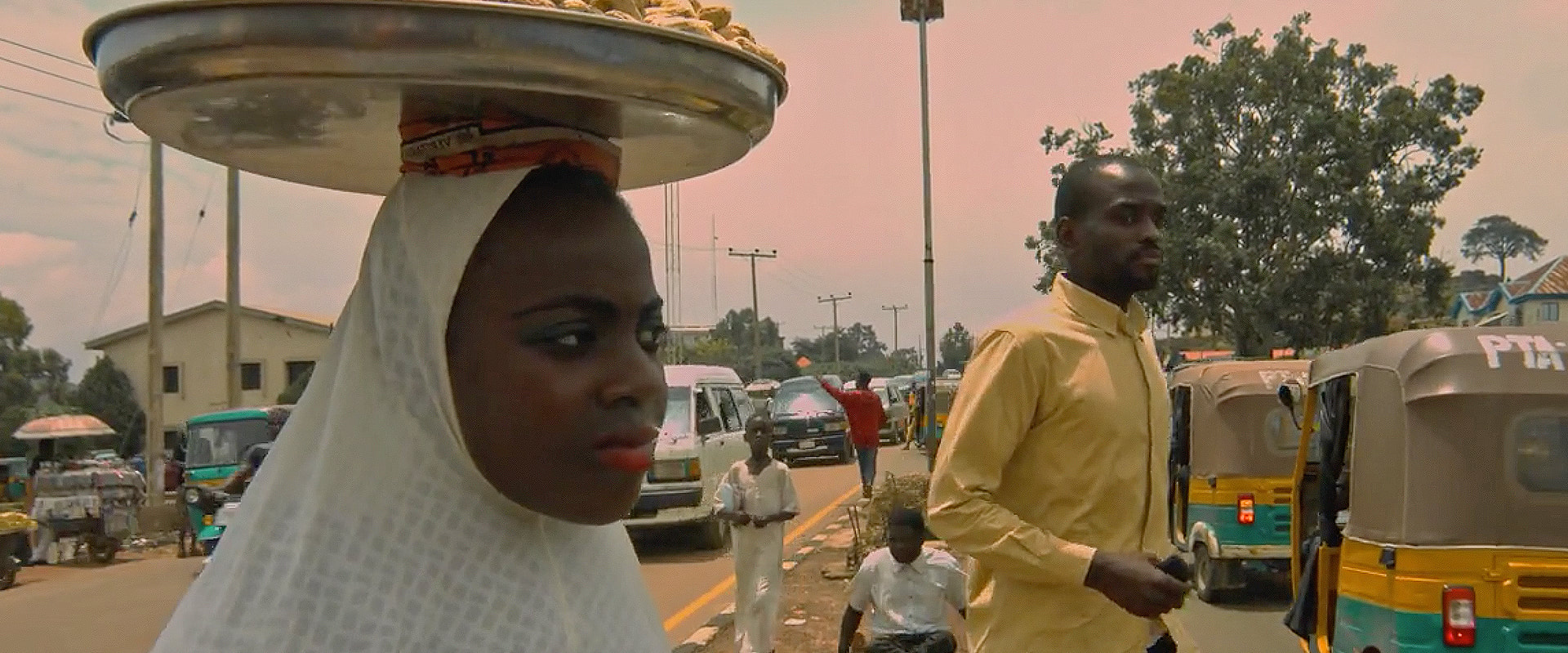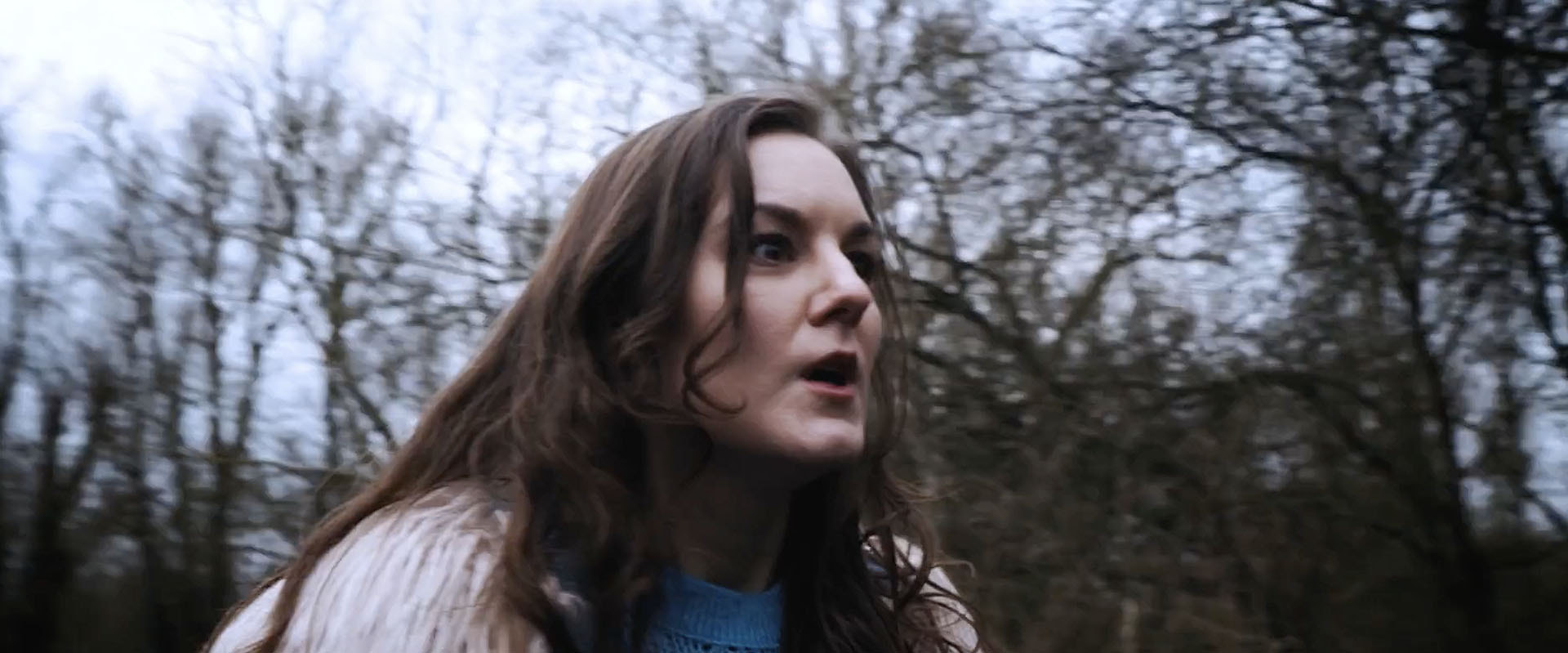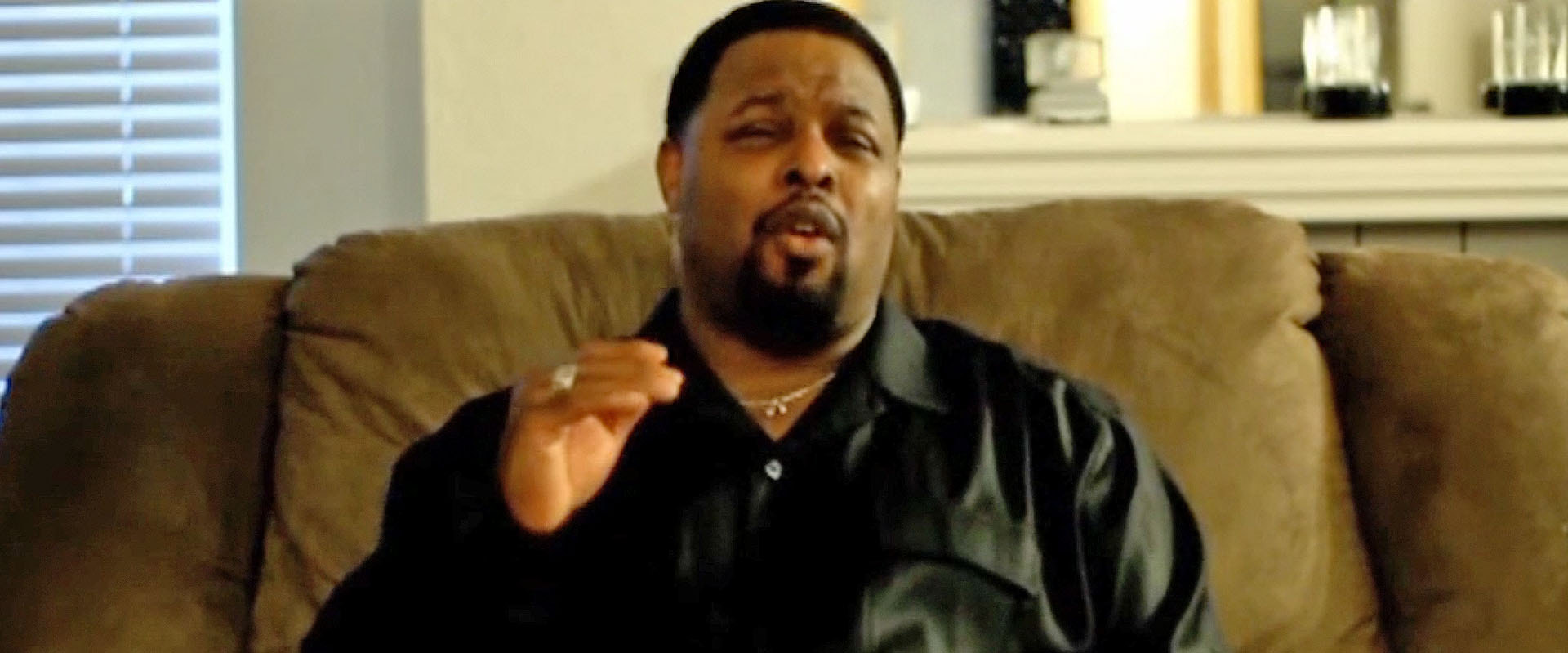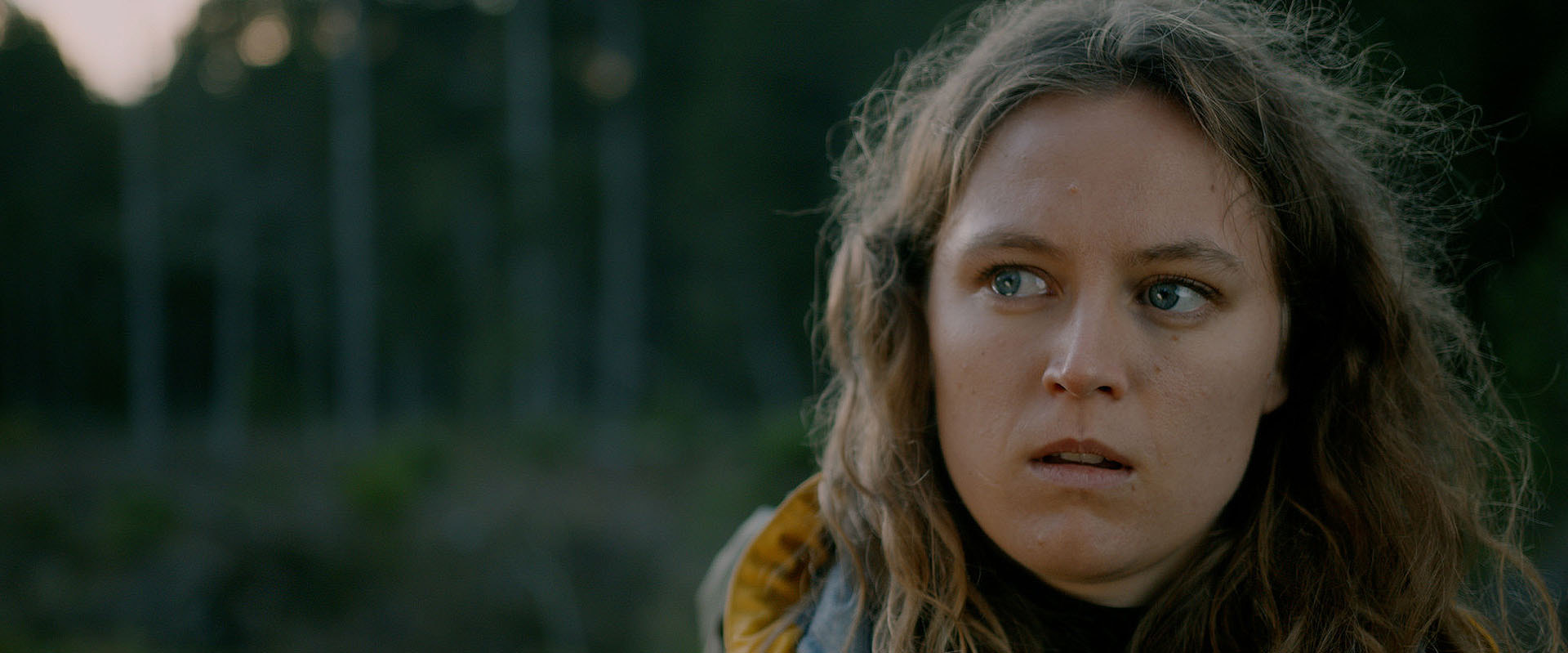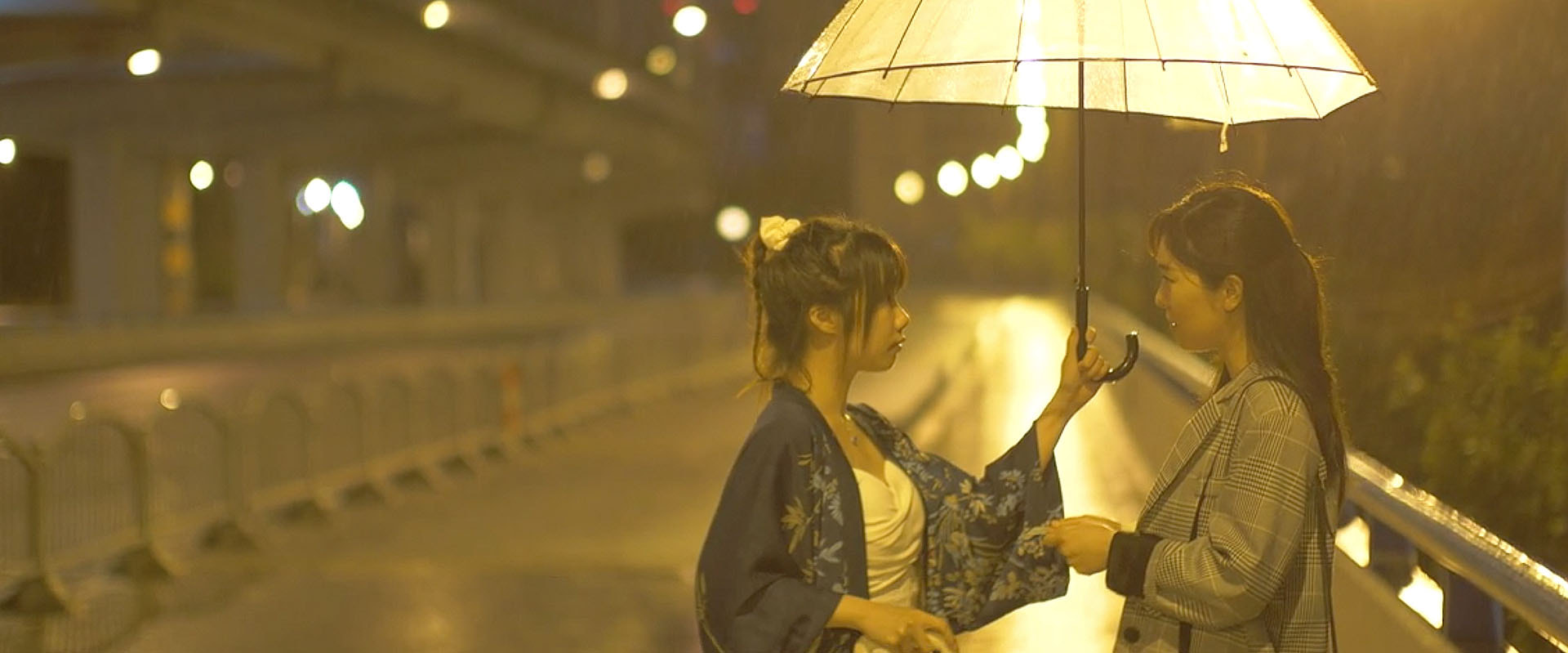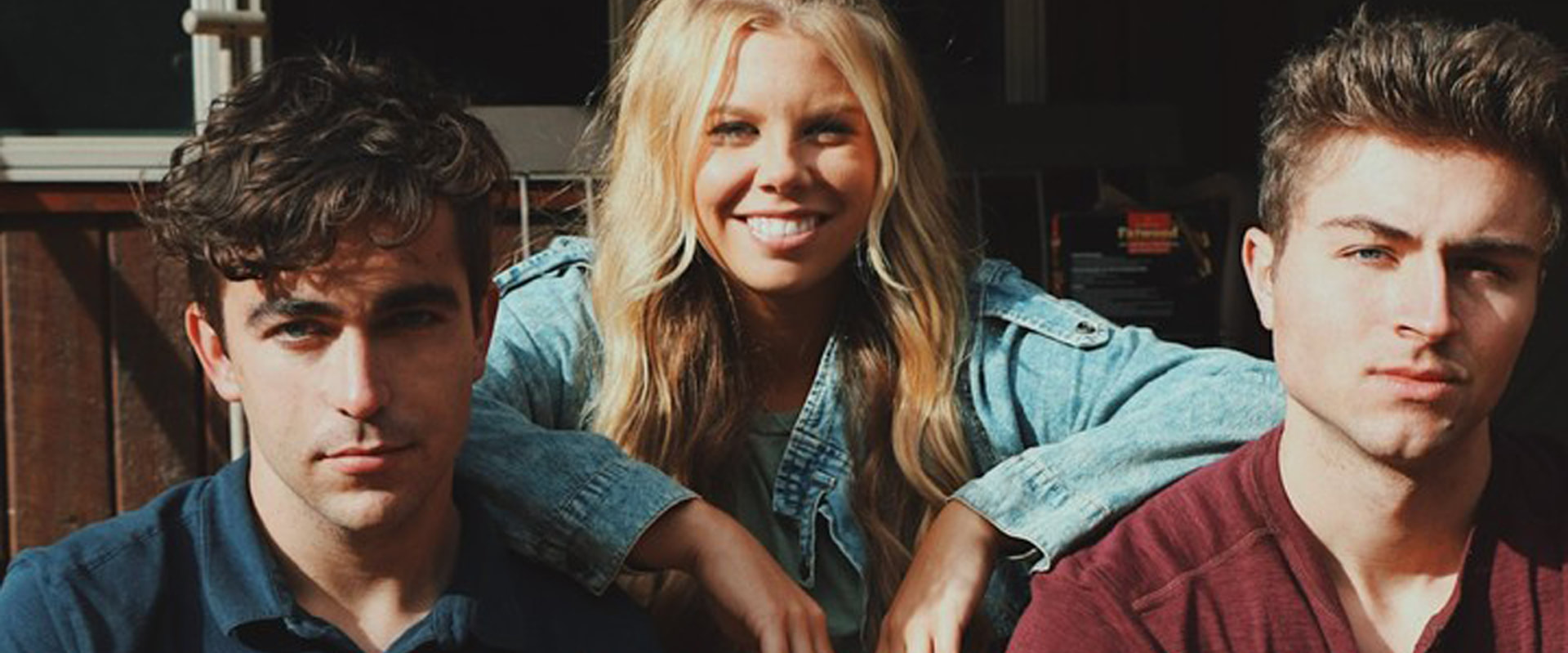|
-SHIP: A VISUAL POEM ★★★★½
By Adrian Perez -SHIP: a visual poem makes a vow to break the silence that precedes and haunts an entire generation—particularly the black community's. Terrance Daye shows off beyond his directorial vigour, a rare talent to pour one's profoundness and maturity into his own audiovisual work and vision. -SHIP is gut-wrenching to watch and an exact visceral replica of queer black interiority; Daye lights a torch for all those queer black kids who have had to—and still to this day—swallow and digest their personal freedom, truth and pride at the expense of antiquated sociocultural ideals, which disrupt families from coexisting in spiritual abundance and harmony. Daye's coming of age vignette fearlessly confronts toxic masculinity in tandem with homophobia—within a parent-and-subcultural infrastructure—through the subtextual richness only to be found in micro-moments. Unafraid to get up close to the "nothingness" in a glare or a touch—Daye flawlessly masters visual storytelling, character development and interiority. -SHIP is the offspring of segregation at the hands of silence, but most importantly the moment when Jeremiah holds hands with his brother Junior in church—indicates the tidal waves are turning. A new generation coming through with a new set of ideals in favour of unity and love. However, old habits die hard. The road ahead is long and uneasy. AA SCORE IN THE VINYL ★★★½
By Adrian Perez Atticus Fehr and Errol Sullivan condemn a racist home disruptor "vigilante" and his middle eastern victim to a cyclical purgatory to work through their differences; in comes A Score In The Vinyl, a satirical comedy that inventively captures humanity's endless hatred continuum and how we're as doomed as these fictional characters in real-life. For this directorial duo's debut, A Score In The Vinyl exhibits an irrevocable sense of style and imagination that can't be taught in the classroom—through its fun script and editorial construction; accompanied with star power with the likes of Oded Fehr and Jan Lashly who are both exquisite to watch in their chaotic daily coexistence. A Score In The Vinyl wraps a heavy mandate and deeply-rooted sociological issue in a refreshingly vibrant and experimental film; whilst it boasts artistry and innovation, it demands the same calibre and ambition of its cinematographic and auditory counterparts. Whilst unpolished, this is a fresh, stylish and satirical take on an issue as old as time. A SUMMER'S DAY AT SHERWOOD PARK ★★★★
By Adrian Perez Conor Forrest is on a roll in his thematic explorations of dating; after the surrealistic delights of Friday Night Fish (FNF)—he returns to the cinematic canvas to move away from speed-dating and onto a teen's very first date at the park, in comes A Summer's Day At Sherwood Park (ASDASP). Forrest serves awkwardness and disappointment in spades for young Max, and plenty of comedic quirks. Both pictures showcase a developing unique directorial imprint which make him an exciting newcomer to watch out for. ASDASP's most triumphant facet is Paul Persic's mouth-watering cinematography—which captures unrushed mundanity and peaceful suburbia beautifully. Though at times ASDASP can feel slightly too underplayed to capture that insipid mundanity; what can't be contested is that behind this powerhouse collaboration lies an endearing and all too irresistible coming of age vignette to indulge in. ABSENCE ★★★★
By Hannah Brown This surrealist Russian micro-short left me lost for words. Richard Marx’s Absence exists in a parallel universe where our deepest subconscious bends the rules of our perceived reality. Returning home from a night at the ballet, Lena and Ivan journey through a series of unfurling narrative impossibilities, from deaths that don’t really happen, to character doubles and flashbacks enclosed within the sequence of Lena’s “dream”. One potential pitfall of Absence would be that its non-linear narrative experimentation results in incoherence, but Marx is masterful in divining a clarity of movement throughout the piece, guided by a single shot tracking style. Seamless blocking and Marx’s decision to shoot in the style of a long take ensure we remain firmly and disquietingly in the seemingly secure grips of Absence's abstract surreality. Marx initiates the viewer into Absence by framing it as itself a carefully choreographed dance. Diegetic and non-diegetic musical references introduce Odile, the black swan from Tchaikovsky’s ‘Swan Lake’. A beguiling symbol of darkness, Odile has metamorphosed into a splintered icon in the history of art. Perhaps most strikingly, Marx’s interwoven intertextuality calls to mind Aronofsky’s psychological thriller, Black Swan (2010), raising questions over the depth of psychological torment at work in Lena’s mind. Technically, there is little room for improvement in Marx’ work, but, if anything, it's within the film's more performative aspects that it begs the same level of ambition and sophistication and might have let it soar. Overall, Absence is a sheer joy to watch. Obscure and beautiful, it reminds me in many ways of Charlie Kaufman’s I’m Thinking of Ending Things (2020). As any seriously brilliant film should, it left me in an abyss of questions, looking on with wide-eyed wonder at the stunning execution of this mind-bending masterpiece. I will be re-watching this again, and again, and again. Thank you, Richard Marx. ACHROMATIC, STREAM OF CONSCIOUSNESS ★★½
By Adrian Perez Achromatic is Lauren Vroegindewey's most personal work yet; it's her most anti-structural and chaotic canvas by a mile, intended to act as a stream of consciousness repleted with all the sociocultural issues that create impotence in the artist and keep her awake at night. From humanity's history of male patriarchy to women's sexual degradation, Vroegindewey is unable to scrub away both our current and retrospective societal dirt. Whilst a treat for the intellectual eyes, Vroegindewey's biggest obstacle in this piece is herself; Achromatic as a piece can feel overshadowed and secondary to her top works like Cleansing and My Bed already in her arsenal. Any artist's biggest ordain is to constantly reinvent themselves and stay relevant, and most importantly—interesting. How did the greats like Tarantino, Del Toro and Scorsese—to name a few—manage to secure their transcendence? This is what I predict will be Vroegindewey's main challenge, to not fall into the trap of quantity and always aspire for quality however long it takes her to turn out her new socially-defying experimental piece. AUTONOME - MADA MADA ★★★★★
By Adrian Perez One of the most mesmeric music videos I've ever seen. Alexandre Richard proves in this canvas more than ever before why he is one of the most exciting and sought out film directors working today. Beyond cinematographic excellence, Richard exhibits a level of artistic tenacity that is hard to come, it's a gift you are born with, Richard will inspire the resurgence of a new cinematic wave or movement if he keeps combining artistic disciplines and striving for experimentalism in everything he does. Chapó! BBAROQUE ★★★½
By Adrian Perez As far as micro-short films go, Baroque definitely snatches the win for the biggest tease; with such a high-concept at play here with 17th century Freya waking up in present day, Disant and Fauzi set up what could be a big-scale spectacle through this promising proof of concept. Baroque opens up a million questions with no intention to resolve them, but hopes to open up a few significant wallets from big-time investors to get this feature-length film out of pre-production and in-motion; through Baroque's intricate executions on a technical cinematographic level, that should be an easy feat. BATHTUB CHRONICLES ★★★★
By Adrian Perez Bathtub Chronicles is one of a kind for how it digests the psychological horrors and repercussions of rape in a whimsical and light-hearted way. Rebecca Ruhm focuses her story through the lens of a Bridget Jones/Yuno-esque charismatic protagonist, meet Robby (Lia Peralta); and dips her into a bathtub for the entirety of her film and through a longitudinal purification odyssey—to help rid her of newfound demons and trauma at the hands of rape by an ex. Ruhm to a great extent is successful in her bold genre-crossover, making for some endearing family moments between Robby and her parents and current boyfriend. As daring and groundbreaking as Bathtub Chronicles feels on a narrative level; its results at times feel half-baked and Robby's breaking point underplayed. Robby's inner journey is a grave one where being swallowed up whole by her trauma could permanently impair her relationship with her parents and boyfriend; but that point of highest disequilibrium where the stakes are at boiling point doesn't feel weighty or compelling enough. The film at times can be so ironically funny, it demands the same weight at the other dark dramatic end of the spectrum to counterbalance it and simulate Robby's worst points on her emotional rollercoaster journey. What can't be contested is how infectiously charismatic this film and its entire cast are—with a most competent director at the helm of a truly unique film. BONEYARD RACERS ★★★
By Adrian Perez Heacock & Co. orchestrate an impressive car chase and shift gears as a production family to raise the bar for independent cinema. Boneyard Racers showcases the most ambitious set design and production scale; whilst leaving a little room for weird and fantastical horror. Heacock proves his directorial tenacity in managing such a big scale production through his biggest ensemble cast yet, plus plenty of thrills and complex rigs. It's on a performative, and specifically on a tempo-rhythmic level that the film demands the same calibre of its cinematographic counterpart. Whilst fun, colourful and weird, Boneyard Racers can feel slightly hollow and underplayed—just when the film seems like it's about to start it concludes, leaving an irrevocable sense of insatiability. This usually is a good thing, but in this respect so much work has gone into the film's world-building and exposition that it bypasses the need for a little more substance and story. Boneyard Racers's one downfall is equally its biggest strength, the fact that it's a premise deserving of a bigger feature-length canvas and story; what can't be contested here is how much of an ambitious hypnotic spectacle a short film this is. BOY FROM NOWHERE ★★★★½
By Adrian Perez SJ Finlay's culture shock compels him to return to the Philippines, after an initial first trip, to produce and deliver a cultural odyssey and rare exploration into primitive survival at the hands of social conditioning; in comes Boy From Nowhere, a film overflowing with suspension of disbelief through not only its cinematographic realism, but its employment of real-life tribe stories as the basis of its own story, plus local actors at the forefront of bringing it to the screen. This is a coming-of-age story where Gary sets off on a quest to find his mother, after losing his father and home when the entire fishing village of Baiao gets burned down in an attack; making him become a sea drifter, a lost puppy, vulnerable and malleable as he battles his newfound hunger and solitude. Boy From Nowhere gets up close and personal through its claustrophobic cinematographic style to tell the story of a lost gentle kid who falls in with the wrong crowd and gets turned into a killing machine; one potent ritualistic scene exhibits the extent he is fraternised and brainwashed—made to let go of his past by throwing a photo of his mother (his one remaining memory of her) into the fire for it to consume his past, purify him into a new life and officialise his oath and alliance to the rebel group. Boy From Nowhere's greatest asset lies in its engrossing whilst highly dangerous production process; with Finlay leading his local cast—equipped with gun props—through rebel controlled territory and making themselves susceptible to an open fire ambush any minute. Finlay consistently sent out weekly radio calls to the rebels and the military to place his team on the map and notify them of their non-threat; Finlay even utilised the real military with real guns in one potent and climactic scene. It's this filming in the gutter that makes Boy From Nowhere an authentic and adrenaline-inducing spectorial experience; whilst on a technical level it can prove unpolished, it doesn't work to its detriment, but on the contrary, it augments its logistical and conceptual beauty. Boy From Nowhere epitomises the timeless nature versus nurture debate. This is independent cinema's most daring entry of the year; hypnotic, unpredictable and capsulising of cinematic realism beyond compare. Finlay's achievement and contribution for independent cinema is of the highest degree. BREATHLESS ★★½
By Adrian Perez For Alex it doesn't matter how much he loves his girlfriend Emma, nothing, not even saving her from an asthma attack will make her give him a second chance. Emma proves quite the antagonist after such a heroic deed on Alex's part but such is the thin thread of human relationship. Will Hoxie showcases tenacity in his short film's editorial construction—delivering plenty of thrills in his choices; where Breathless demands the same calibre is in its cinematographic and performative facets, which are not quite on-par. Hoxie lives and breathes film, his passion and directorial tenacity is clear. Breathless's conceptual success demands more cinematographic ambition; but what is evident is that Hoxie's career trajectory looks bright and exciting. BRR ★★★★
By Adrian Perez Death has the overriding power to cast a shadow on our lives forever never to smile again, but we forget our loved ones who leave us behind are looking over us and don't want us to devote a single second of our lives living in sorrow. Brr turns the tables and delivers hope and light through its vibrant colourful animation and uplifting anthem. BY THE GRACE OF... ★★★★½
By Adrian Perez Goosebumps, chills, that's what you'll feel all throughout Dylan Reid's By The Grace Of... but no more so than when R.E.M.'s "It's The End Of The World" plays as the film's credits roll, with the lyrics "and I feel fine" punching with newfound meaning and power. Reid's film incapacitated me to the point that I'm still numb, conflicted and unable to put my critique into writing, and that in itself is testament of its mystical, hypnotic and visceral power. The film's metacinematographic and autobiographical basis for its canvas overrides your senses just as the very Huntington's disease Reid is battling would; just as the news of the diagnosis would on his friends. Reid's directorial tenacity to simulate his psycho-emotional response creates the rawest, most poignant of films and ultimately the most paralysing of spectorial experiences. Reid stays away from cinematic gimmicks and focuses on mirroring his journey and experience through awkward silences, small talk and eye-level documentary interviews; Reid unapologetically digests the incomprehensible, the incurable, in the only way he knows how to, through a film in which he plays the role of his career, the role of his life. It won't break your heart because the unspoken truth hasn't happened yet, it will freeze you in time, it will block you. This is a semi-fictional mirror into Reid and his friends as they navigate the fragility of life; ultimately Reid is the host and just as the ironically celebratory R.E.M. anthem which plays at the end says, his message is that despite the elephant in the room, the show must go on, the party must continue... A deeply personal and unforgettable film that pushes the boundaries of the format in innovative and rewarding ways. Reid is a true artist, wounded and unstoppable. CCHASING PLANETS FOR 60 YEARS: STAMATIOS (TOM) KRIMIGIS ★★★★
By Adrian Perez Stamatios (Tom) Krimigis is no stranger to the documentary lens, with his awe-inspiring Voyager program earning its own documentary film The Farthest back in 2017; but Chasing Planets For 60 Years is a more special documentary film, it's his very own biographical documentary. Yannis Vamvakas pays homage to the Greek-American scientist in chronological fashion—from his childhood dreams and impulses, to a celebration of his life-long significant career contributions in unmanned space exploration missions to almost every planet of the Solar System; it's through this biographical angle that Vamvakas actually entreats us to a fascinating factual documentary that jumps from being socio-historical in its nature (through Krimigis's upbringing account)—to scientific, in Krimigis's multiple lessons in physics from initial experiments with balloons and satellites to the more advanced and intricate aerospace operations he designed and headed. Though Vamvakas's documentary can lack the dynamism that comes from the modern interactive documentary format that entangles you from the get-go in answering a series of questions through a high stakes constructive approach; it's unquestionably a biographical odyssey, a well-deserved homage—enriched with its flawless editorial architecture, heavily-reliant on impressive archival usage and coverage which makes this a triumphant documentary. CHEYENNE ★★★★★
By Adrian Perez Cheyenne's biggest achievement as a documentary lies in how it editorially tells Cheyenne's kidney transplant story through her adolescent lens, making for a lighthearted and ultimately accessible performative documentary that makes scary surgery phenomena a little less scary and encourages one to consider becoming a kidney donor to save a life. Through its social media screen capture, secret diary doodles and interview testimonials Rich Underwood manages to get up close and personal to kidney donation/transplantation and actually leaves a trace on the millennial audience who are significantly harder to capture--by speaking their very language. Cheyenne and Gavin prove a golden choice as the central subject protagonists of this docu-drama, a modern real-life Romeo & Juliet story with a happy ending where love truly knows no bounds; Gavin's act of love in donating one of his kidneys to improve their quality of life will mark a generation. Underwood's Cheyenne epitomises the quintessential type of modern and effective hybrid documentary that is not afraid to take on a performative capacity to back-up the facts, ultimately making for a flawlessly constructed, emotionally stirring and triumphant 5 star documentary. CLEANSING ★★★★
By Hannah Brown Lauren Vroegindewey’s Cleansing is unflinching in its depiction of a mythical woman in distress, choking up industrial waste. Set against the intrusive and unabating sound of static, Vroegindewey’s experimental short creates a jarring juxtaposition between the natural beauty that adorns her vulnerable, naked body and the hellish purging of man-made materials from her stomach. Cleansing evokes a visceral discomfort that reverberates the inherent cruelty of patriarchal, consumerist society, more than doing justice to Vroegindewey’s intention to capture in one space the ‘personal trauma and the trauma the earth feels’. Cleansing speaks in the universal language of sound and image to reach out and seize its audiences by the jugular. This intuitive evocation of personal and ecological trauma in mere seconds is Vroegindewey’s great strength. By locating the site of the earth’s trauma onto the site of the female body, Cleansing entwines our impulse to feel compassion for suffering humans with our feelings towards the planet. We often associate the natural world with female iconography (the ‘Earth Mother’ in Vroegindewey’s own words) and there is something profoundly alarming in seeing the destruction we inflict on our planet located at the site of physiological trauma for a fragile female body. In title and performance, Cleansing invokes the sacred act of purging toxicity from the body and soul, a bitter-sweet ritual that harnesses horror in such a way that will feel familiar to any Midsommar (2019,) fans. Technical simplicity allows Vroegindewey’s experimental short to sing, conjuring a depth of symbolic and allegorical meaning through the actions of two characters in one setting. If anything, leaning into that pared back style without relying too heavily on post-production visual filters could have enhanced the potency of her message. Vroegindewey is one to watch for her ability to isolate the pain points of human and environmental trauma and infuse them together to induce stomach-turning empathy in her viewers. Cleansing is a powerful and illustrative reminder that art can ground us in our capacity for both hurt and healing. COIN STARS ★★★★★
By Adrian Perez Coin Stars depicts the day in the life of star-crossed lovers Alice and Willy, but their infatuation goes beyond each other to the substances they consume together. Damien Standen pens a daring script about survival at the hands of addiction; every day a clear struggle for addicts who neither can make ends meets at the expense of their "medicine"—whilst battling an overriding force and a clear disownment and isolation from their loved ones. Coin Stars proves a poignant watch through its expositional scene-work and bipolar script; with a most powerful scene in Willy's failed attempt to steal money from his parents by breaking into their family home—leaving him no choice but to steal his young sister's piggybank and savings. A most flawless onscreen depiction of what that lowest point looks and feels like. Standen stands us on the precipice of mental health whilst placing Alice on a character journey to put addition into perspective. Ambiguity overrides the film's ending as to the fate of its lovers, again adding to the notions of unpredictability and bipolarity that come with an addict's life. Coin Stars is triumphant across the board in its cinematographic construction from its flawless script, directorial mastery and stellar performances from both Ben Irving and Eloisa Santos. Much like its abrupt ending, what will be of these lovable but doomed characters remains as much a mystery to us as for themselves. CON DIOS ★★★★
By Adrian Perez Carlos Ibarra's Con Dios is hard to swallow and digest; for how could could a perfectly "normal" kid with a loving family be faced with such a precipice to jump off from? Ibarra brings forth the global issue—and a pandemic in itself—of socio-economic status disequilibrium and mental health; and his call for help cuts through the lens of a disadvantaged Latin family whose youngest member gets swallowed up by the impossibility of going to university—for the financial burden that would impose on his family is too great. Ibarra shows off his directorial chops here; his expositional efforts commendable for what a perfectly harmonious whilst modest home environment he creates for Pablito—to have his film's message cut through with impact. Con Dios's power is slightly lessened through an overriding score which forces on the spectator how to feel—degrading the film to feel more propagandic and PSA-like as opposed to raw, gritty and cinematic; had Ibarra opted for minimal music and allowed the family's screams and cries to override the film's final act Ibarra would've hit a home run. As it stands Con Dios has an irrevocable consciousness, creates impotence and tugs at the heartstrings; an editorial readjustment could push its transcendental power to help set its agenda and call for action. CRANE WIFE ★★★
By Adrian Perez Lauren Vroegindewey's Crane Wife is perhaps her least effective and most incohesive piece within her arsenal yet; it could well be due to the mix of contrasting images we're presented to unpick. Crane Wife takes inspiration from the old Japanese folktale of the same name where the crane ends up abused into slave labour by the hands of greed; it's towards the end of the piece that we understand Crane Wife in this context is in fact Mother Earth who finds herself entangled in a fishnet surrounded by artefacts that lead to ideas of human contamination. Had this correlation come a little earlier and the stakes raised a little more for Crane Wife this could have been a home-run; nevertheless what is unquestionable is that Vroegindewey's artistic capacity and endeavours know no bounds making her one of the most exciting multi-disciplinary artists of our time. EENIGMA: THE FALLEN ANGEL ★★★
By Adrian Perez For a directorial debut, Abhay Thakur showcases a clear mastery of the craft—specifically across the film's cinematographic and performative aspects; providing an onscreen masterclass as to how to direct your actors and where to place the camera. As much as Thakur slays these aspects, his irrevocable passion for cinema can prove so abundant to the point it can work to Enigma: The Fallen Angel 's detriment. The film's editorial construction can feel overly-glamorous and epic at times pushing it to stand at the precipice of melodrama; and this type of metacinema/metafiction has the power to impair any luck of suspension of disbelief on your audience's part. Thakur's directorial style idealises the Hollywood blockbuster with clear influences from that thrilleresque melodrama that made Douglas Silk's and Almodovar's authorships--genres in themselves. Just like Richa's battling her conflicting inner demons and multiple personalities; Thakur has a creative mission to calibrate and dosify his frantic epic style so that it hits in the right moments instead of it override the whole film. Enigma though it can feel too dramatic and frantic at times is unquestionably stylish and epic; its strength can prove its own downfall. Enigma's mental health thematics should make for a more serious film; but its metacinematic construction makes for a more frantic, colourful and exotic experience. FFELIX'S SUMMER BOX ★★★★★
By Adrian Perez The cinematographic attention to detail here is mesmerising to watch, making Felix's Summer Box one we want to marvel at for hours; accompanied by a soothing orchestral score that raises the stakes as we go from the beige colour palette of the pinecones and sand bottle—to the more vibrant colour tones of vegetative life in the pressed flower. Rijnberg suggests through the marrying of score and cinematography here the beauty and fragility of life and our responsibility to take care of our earth home's environment. This box holds all that is sacred in life as if in a safety vault, through Rijnberg's sophisticated architecture he pays homage to Mother Earth and serves a powerful transcendental message. This is a formidable poetic micro-short film. FELIXE - ELLIPSE ★★★★★
By Adrian Perez Electrifying, gut-wrenching, frantic. Alexandre Richard sets us on a visual odyssey of what most queer tens have to viscerally confront on a daily basis; from Emma's ritualistic burial of the past, to her floating on the verge of drowning, to her newfound homeless nomadity—these are just a few compelling interpretations of the queer human psyche and Felixe's lyrical dexterity. Richard is at the top of his game on a both directorial and cinematographic level; here we get to marvel at a film director pushing past technical competence towards artistry in audiovisual storytelling. What more could we ask for? FLOOD: THE OVERDOSE EPIDEMIC IN CANADA ★★★★
By Adrian Perez Fact charts and diagrams; as much as they've helped governments in the last year monitor the COVID-19 pandemic death rates to take necessary measures; don't seem to have elicited the same level of action, ever, for the other omnipresent epidemic of drug addiction in Canada and across the globe. There have been plenty of documentarists who have consistently responded to this marginalised epidemic through heavily-researched and factual docu films; but none triumph in raising the alarm as much as Adam D'Addario's. What makes Flood: The Overdose Epidemic in Canada the best contender in eradicating this epidemic? It gets up close and personal to destigmatise and reconfigure prejudicial and negligent mass-ideals towards drug addiction; which is as much a deeply-rooted sociological issue as it is a chronic, relapsing disorder. As D'Addario sets-up in his exemplary expositional efforts: how many bodies are we going to line-up before we set-up an overdose prevention site? Flood ferociously follows the rabbit hole of drug addiction and overdose through the most insightful, visceral and educational as well as personal of conversations and interviews; making for a raw and gut-wrenching documentary that manages to create a real impotence for its passive spectators in the hopes to make them proactive in the deadly matter. Not only is Flood's editorial and cinematographic construction exemplary—it's the most proactive and personal of performative whilst factual documentaries; that lights a torch for the marginalised and forewarns anybody can get infected by this neglected epidemic. FLY MYSELF HOME ★★★½
By Adrian Perez Jose Restrepo's docu film Fly Myself Home really is a homage and a love letter to his loved ones back "home"—whilst he remains stranded like many artists of all disciplines around the globe (due to the pandemic) who are eagerly waiting to return home. Where is home? For Restrepo and thousands of actors, it's the theatre, but most importantly each other. As a loyal and long-time theatregoer myself, there's nothing more magnetic about going to see a play or musical than seeing the chemistry and family bond the theatre company develop whilst touring on the show for months and/or years. They emit a type of special energy on the stage that is so infectious, so to see Restrepo conceptualise this magical power only the theatre has—in bringing people together whether on or off the show—in a documentary is outstanding. It's home. Restrepo's editorial execution though slightly unpolished is irrevocably cohesive and emotional. This is a one-kind docu film. Thank you Restrepo for Fly Myself Home couldn't have better timing in lighting a torch for the arts and its people who have suffered a great deal throughout this grim pandemic chapter of our lives. You brought us back home. FOOLS ★★½
By Adrian Perez Jimmy Prosser's new cinematic venture Fools held a lot of promise for its ambitious directorial decisions; whilst the film's modus operandi proves a great asset of the film's, it also ironically counter-forces it as its own greatest downfall. Prosser and his team's hard work and efforts are evident in spades; particularly on a performative and cinematographic level—with its leading duo navigating the improvised scene without fixed dialogue but a need to get from point A and B—whilst Fools was simultaneously filmed on an iPhone. It's Fools's experimental canvas that subjects it to an omnified microscopic lens and up for harsher scrutiny; to be a fully improvised iPhone film—the film's real mission and success directly lies in completely disguising the film's methodology. It's in micro-moments that the film deceives itself; on a cinematographic level, opting to go mobile at night (nighttime filming) subjects the picture to pixelation; and whilst our impressive duo manage to improvise well-there are moments where they sway towards repeating themselves to fill up any silence—when actually their performances and the film could've triumphed with more non-verbal communication where silence takes over and speaks volumes for the characters. One of the first things they teach you in a screenwriting class regarding dialogue construction, is that less is more, there is more power in what is not being said and here the actors deceive themselves in that they are improvising too much to the point of filling up the entire scene with words and not letting Silence as a character join the scene and take a central more dramatic role. Fools though it lacks a more polished execution and consciousness behind its preparation; deserves credit for its experimental merit and ambitious scope. Jimmy Prosser's directorial ambition and itch for innovation is infectious and all eyes are on him now to see what he brings into his next motion picture. FReIGHT ★★★★
By Adrian Perez Rob Misleh's FReIGHT is a big tease of a high-concept short film demanding a feature-length treatment. Misleh's recipe has all the right ingredients—central to its success as a short film are its two stellar leads in its likeable Average Joe, Charlie, in the brilliant Shadow Woolf who boasts charisma and personality; and the congenial Lena played by Jules Breslin who serves a twinkle of darkness in her eyes that deceives her. FReIGHT is a big tease, a cliffhanger, the introductory video sequence that plays ahead of you getting control of your Charlie character in the videogame we're about to play. The short film is over just when we would expect Charlie to wake up from his concussion, to try and rid himself free to live to see his girlfriend another day, who so happens to have set him up as shipment, and whilst he does all this he'll probably get some body parts chopped off and uncover a global underground mafia conspiracy where human skin is trafficked as fabric garments. Weird and all the more exquisite high-concept, screaming for a feature. Misleh is only scratching the surface here with what could be a truly spectacular feature film; as Misleh gets ready to attack his bigger canvas he must bare one thing in mind, to go as weird and avant-garde as possible. The weirder the film, the more fun it'll be. Serve us the unexpected and the unseen, this is the first step and it paid off. FRIEND HUNTER ★★★★
By Adrian Perez Friend Hunter proves Crable's biggest comedic challenge yet as he sits on the director's chair for the first time to orchestrate comedy from a bird's eye view terrain, as opposed to delivering it first-hand as the fabulous versatile screen actor that he is. It's a given fact that no-one knows and does comedy like Brent Crable; camouflaging a buddy two-hander within the confines of a serial killer's interrogation and thrilleresque genre conventions makes for a hilarious off-the-wall vignette. When you think Friend Hunter can't get any weirder, wait until the credits roll. A fabulous directorial debut on Crable's part, it's a home-run of a short film offering. GGABRIEL BARBEAU - DOUZE OISEAUX ★★★★
By Adrian Perez Why a young guy chases a pair of masked bird-headed lunatics around town—who so happen to be his two old friends—we'll never know, but who cares. Weird is fun and Gabriel Barbeau serves it in spades in his latest hit's music video: Douze Oiseaux. Heavenly visuals plus a sprinkle of peculiarity make for a formidable music video to remember. GATEWAY CITY: LAST CHANCE ★★★½
By Adrian Perez Rob Thorp proves this is a genre arena he excels and belongs in; as far as suspenseful crime thrillers go Thorp delivers one of the moodiest—leaning into that Winding Refn minimalism that made Drive (2011) an all-time classic and marked an entire cinematic movement and generation—he manages to keep us lingering in the quiet of the night and expectant on our toes until the very end where he cuts us off when the action of the story only just begins. It's effective, instead of an action chase Thorp focuses and pulls out spoonfuls of what's most interesting; the psychological interplay between Tony and Jake. Gateway City: Last Chance is moody and tasteful; if there is one thing to critique is that there's room for growth here on a technical cinematographic and performative level—but what can't be contested is that Thorp succeeds in creating an unforgettable cinematic mood and serving spectorial thrills. GATSBY ALONE ★★★
By Adrian Perez Soothing and magical to watch, Gatsby Alone is MeMT's (Mixed eMotion Theatrix) latest multidisciplinary film; through which we are served hope that we'll soon regain our personal freedom which was so ferociously snatched from us by an invisible enemy during our current pandemic; but a socioeconomic fantasy remains out of reach for a vast majority of an entire race at the hands of racial prejudice and black segregation today. Two viruses threaten our society today, COVID-19 and racism. This is Gatsby Alone's underlying powerful message behind its captivating dance choreography and moving score. All that can be contested of MeMT going forward now is to rival their current cinematographic standard to the level of excellence and ambition exhibited across their disciplinary counterparts. Compelling artwork coming out of MeMT. HHALLWAY ★★★½
By Hannah Brown A teenage babysitter finds herself catapulted into an alternate reality within the confines of a claustrophobic hallway. Whether nightmare or distortion, Janet Roston takes the familiar walls of homes and transforms them into the warped and weird stuff of nightmares. With a flicker of the lights, a suburban home turns into the uncanny reality that would enthral any fan of Tim Burton films or Guillermo del Toro’s Pan’s Labyrinth (2006). Battered and buffeted, Noa Brenner is brilliant as the central figure whose movements through the stairway feel pained and disturbingly involuntary at times. Brenner also captures on her face a reaction that is half-way between horror and wonder, which fixes our gaze to hers as we watch on at the otherworldly scenes coming to life before our eyes. It is such a delight to see Roston give time to each performer and showcase the extraordinary talent of this cast. Her instinct to let us settle into each space should be commended, though some condensing could have heightened our suspension of disbelief into Hallway’s odd but electrifying atmosphere. This cinematographic prowess is also brilliantly anchored by Joe LaRue’s haunting sound design, which assures us that we have wandered unwittingly into a palpably warped version of our everyday reality. For such a diverse cast of performers it is also hugely impressive that this all took place within COVID regulations, itself a feat and reflection of the very states of creativity and claustrophobia into which the pandemic has forced us all. Hallway is a thoroughly bewitching portrayal of how life in lockdown can feel like a fantastical surreality. Well and truly spooked, I eagerly await future experimental trips down the rabbit hole with Roston as my guide. HERINNEREN: HET VERHAAL VAN MAURITS KIEK "REMEMBERING: THE MAURITS KIEK STORY" ★★★★
By Adrian Perez Maurits Kiek is a forgotten war hero and Cheryl Halpern goes to extraordinary lengths to resurface his story in her latest feature-length documentary; which as far as biographical docu films go—proves one of the most triumphant in its rich archival usage and performative quality. Kiek makes the most courageous and unorthodox of heroes, out of a Jewish man who went onto face Death and danger in the face by joining The Resistance as an MI-9 agent during Nazi-occupied Europe. From the moment he was parachuted into occupied Belgium in 1943 for his piloting skillset and expertise in radio-frequency and electronic engineering, his covert operations allowed British Intelligence to track plenty of German troop movements. Halpern's archival wealth is complemented with Maurits's son's interview making for a raw and pulsating spectorial experience; wherein Halpern's editorial and scriptural work is potent—it demands the same calibre of a more ambitious cinematographic and acoustic approach. Halpern's work goes beyond a formidable war hero's biographical account to provide a rare exploration into current society's invisible enemies; specifically the internet/media growing into their power as ideological weapons—presenting some alarming but true observations. Intellectually-stimulating whilst heart-wrenching, epic whilst factual, Halpern's latest docu film is a must-watch. HOME AWAY ★★★★½
By Adrian Perez Home Away is a story about incessant survivalist hustling at the claws of poverty; a film with a powerful social critique that doesn't fault its protagonists for their conflicted attempts to curb their Matrix, but unveils a failing system that favours the rich and dooms the poor. As Home Away enters the mainstream, it will irremediably subject itself to comparative scrutiny with Parasite (2019); but where Bong Joon-ho's high-concept film glamorises a mass-scale socio-historical problem where we see the poor steal from the rich, Oliver Yan pushes past that stance to show the poor stealing from the poor—making for an even more poignant and visceral exploration into poverty and desperation. Yan's Home Away is a claustrophobic cultural odyssey into poverty-ridden China, where we'll have to cram ourselves into the poorest and tiniest of spaces that families are condemned to share and coexist in; but our multi-generational protagonists' hustling all come from a place of love and heart—with an old man wanting to secure the best retirement care for himself, a mother wanting the best education for her daughter, and a sister desperately trying to cover the cost for his brother's operation after an almost-fatal accident. It's a failing system that traps its protagonists in a multi-generational cyclical continuum, a domino effect; one climactic (and ironically hilarious) scene will see both worlds collide with all its multi-strand narratives and protagonists coming together to confront one another under one roof—making for one of most surrealistic but crudely comical scenes in Oliver Yan's masterpiece. Yan's mirror into Chinese society showcases his directorial tenacity and ambition; able to thread a thin fragile line between raw weighty drama and ironic situational comedy; truly a triumphant cinematographic achievement of the highest degree. Crudely comical and surrealistic in a mundane and understated way. HOME CONSTRUCTORS ★★★
By Adrian Perez Rozen's directorial task in documenting this annual national two-minute silence during Israeli Memorial Day encapsulates everything Dziga Vertov stood for in his life's work to achieve unobtrusive audiovisual documentation of life events, what he called life caught unawares. Rozen's work boasts this and uncovers cultural misplacement in what seemed like a perfectly harmonious ensemble working in synchronyy. II'M A CHILD ★★★½
By Adrian Perez I'm A Child lights a torch for Mother Earth and inspires activism/proaction for sustainability and environmental care through this simplistic, most effective and endearing animated music video—where a young teen is flown around the world by a shapeshifting eagle to see the current state of what used to be earth's most habitable paradisiac landscapes, which are now hellscapes due to human kind's contribution towards global warming. To see this young teen towards the end of the music video put down his phone, which he was so glued to and focus his energies on what really matters is compelling to watch. Through this most colourful and charming animation, I'm A Child has a real weight and power to it—it is time to take action. I SOGNI SOSPESI "UNFINISHED DREAMS" ★★★★
By Adrian Perez Just as Marlène's trauma comes back to haunt her in the form of panic attacks; Tempesta decides to conceal the truth of Marlène's past to create a haunting spectorial experience—one where we're kept on edge until a revelatory and confrontational payoff. Dalla Costa shows off her screenwriting chops in her narrative structure through a delayed exposition—that strands us in the middle of a French countryside with two sisters who seem to be on the run, but on the run from what? It's then Tempesta who manages to capture the desolation, disorientation and trauma that haunts these two sisters in their newfound nomad existence. Competent on an artistic and cinematographic level; I Sogni Sospesi demands the same calibre of its editorial and performative counterparts—with some micro-moments proving a little disjointed in their construction; for example the way the attack scene is architected at the end where Marlène's past takes on physical form and returns to hurt her. What is unquestionable is that I Sogni Sospesi is as artistic a canvas of a film as you can get, poetic with every fiber of its being; using the purifying powers of water in the river to narrate Marlène's transitional healing makes for a powerful scene to watch. It's in these silent moments devoid of dialogue that the film speaks volumes for its characters and personifies Trauma; proving Tempesta is a competent film director who knows the semiotic importance in visual storytelling. |
I WAS NOBODY ★★★½
By Adrian Perez I Was Nobody is a fresh, fun and exhilarating short film but most importantly a proof-of-concept vehicle to gain buy-in from investors. Hodge's high concept holds promise and astronomical potential; this short film is only the tip of the iceberg as to how fun a rollercoaster ride this story has the potential to be. On a technical level, Hodge orchestrates image and sound in exemplary fashion—producing some of the most spectacular depth of field cinematography I've seen in a while. On a performative and editorial level, there was lag in the scenes' tempo-rhythm throughout and Danika Golombek's reaction to her father's coming out as a secret agent feels underplayed; but what can't be contested is that Golombek's an unquestionably impeccable fit as Julia—a devoted grown-up single daughter but all the more unkempt and insomniac for it. I Was Nobody takes on a semi-professional quality and proves itself to be a big tease for a much bigger rollercoaster spectacle of a feature-length film. Hodge is sitting on a fun high-concept and will be in for the ride of his life once this show gets on the road. IF WE HAD TOMORROW ★★★★½
By Ares Sirvent The popular playwright Anton Chekhov once said that the key to a good narrative was in the author's ability to show not tell; "Don't tell me the moon is shining; show me the glint of light on broken glass." Well, If We Had Tomorrow not only exemplifies Chekov's mandate but majestically throws us visually and aurally into the universe of this heartbreaking story. This short film begins with a very simple but effective trigger; a soldier who seems to be completely abandoned by his squadron observes how the flame of his lighter ignites, which causes the viewer to then enter, little by little, into the thoughts of a man whose days are numbered. They say that all stories are already written, and they may be right, but believe me, we have not seen this story told through such a unique and distinctive point of view as the one we see here in If We Had Tomorrow. Through a well-structured narrative and purely visual storytelling, Anastasiya Yevchenko manages to create abundant amounts of empathy for our main soldier protagonist, played by the charismatic Oleksii Oleksyuk who renders a brilliant performance; but what is undeniably evident throughout is Yevchenko's directorial talent and tenacity to not only know to put the camera in the right place at the right time, but to also construct intricate works of arts (paintings almost) within each frame, where beauty and subtlety coexist. Eugene Kirey's cinematographic results must be commended, a cinematographer whose work is at the heights of very few and is reminiscent of the excellent work carried out by Gabriel Le Bomin in the acclaimed French film De Gaulle (2020). In short, If We Had Tomorrow not only is but a breath of fresh air, it's a must-see short audiovisual masterpiece for all lovers of the Seventh Art. IN A BACKYARD ★★½
By Adrian Perez Discontent faces, an air of mistrust and a Battle-Royale-esque stand off ensues with only two surviving this deadly four-way duel. In A Backyard presents a highly-inciting scenario which leaves us a bit perplexed and craving for more; where Raickovich succeeds in his directorial debut is in raising the stakes from the get-go which is something a lot of first-time directors shy away from. Raickovich now needs to amp up his cinematographic standard and arsenal of storytelling tools at his disposal to make that journey for his protagonists from point A to B as exhilarating as possible. In A Backyard opens up a can of questions as to who are we rooting for? Who do we want to win this Hunger Games-esque stand off? How and why did these characters get into this situation in the first place? Why is it the younger millennial characters so happen to survive? Ambiguity can be most effective in cinema, but within this canvas there are not enough clues for us to dissect and reach our own climax. Raickovich's idea is ambitious, exciting and fresh; now he just needs to leverage his execution to this same level of conceptual ambition. Huge potential and I long to see Riackovich put us on a rollercoaster ride we'll never forget. JJAKTEN PÅ HAVETS SVARTA GULD "THE HUNT FOR THE SEA'S BLACK GOLD" ★★★★
By Adrian Perez Award-winning TV producer and distributor Erik Akervall not only is critically-acclaimed but a walking legend for all, specially the deaf community's. Akervall proves his directorial tenacity knows no limits; delivering a medium-length scale documentary that whilst close to home in depicting his father's lobster-fishing way of life—couldn't be furthest away from his comfort zone, having to acoustically construct a cinematic soundscape all on his own. The Hunt For The Sea's Black Gold beyond its production merit is a cinematographic odyssey; serving breathtaking Swedish landscape aerial art in tandem with fishermen Jan Akervall and Acke Wåhlander's rich philosophy and way of life. Elegant, philosophical whilst also extremely witty and relatable; Akervall's documentary is a feast for the eyes and the soul. JESSICA: PART TWO ★★½
By Hannah Brown Jessica: Part Two is a gentle tale of love and learning from the unique perspective of Jessica, a partially blind TV host in Denmark. The beating heart of this short film lays in Bilal Hussain’s decision to centre this story around Jessica and characterise her as an empowered woman with a full and rich life, seeking to overcome the pain of her past relationship. Charming and genuine performances from the whole cast, but Nadja Dalgaard and Yvonns Andersen are deserving of a particular commendation. Their portrayal of the familial love between a mother and a daughter was effortless and wonderfully natural. Youssef Agerbo Halabi also makes the perfect, kind-hearted love interest as Markus, the man who might encourage Jessica to trust again. I must also commend Hussain for prioritising genuinely diverse casting in this sequel to his first short film. Jessica: Part Two showcases the people and stories so often overlooked in TV and film. If we are fortunate to receive a Part 3 to Jessica’s story, I look forward to seeing Hussain hone his skills as a filmmaker even further. His writing is well-paced and accentuates the nuances in each character and their relationships with one another. In the future, I hope we might see even greater refinement from Hussain as a writer and director to make his dialogue feel as natural as possible. Already we are seeing the makings of a compassionate and intuitive storyteller unafraid to turn his focus to the journeys from heartbreak to new love that make life worth living. Bravo. JIYAN: LA VIE ★★★★½
By Adrian Perez Jiyan: La Vie lights a torch for the millions (more than 13.3 million now according to the UN Refugee Agency (UNHCR)) of misunderstood and marginalised Syrian refugees who are met with continuous hate in their pursuit of a new life. What Otis Birdy captures so majestically in his directorial debut is the silent storm our adolescent Kurdish (from Syria) refugee male protagonists have to battle out in their new everyday in Switzerland. Nerol's (Mohammed Mohammed) infectious charisma to hustle his way out of trouble and into spending more time with his love interest, deceives us early on into immersing ourselves into what seems like an inviting coming of age story; but Birdy gradually flicks the switch and peels off our central hero's social armour to show an angry but mostly fractured young man standing on the edge of a precipice, hanging by a thread, praying the inevitable doesn't come to happen. In one cataclysmic scene Nerol's world comes crushing down and his inner demons engulf him to a point we are not so sure one can return from. Jiyan will swallow you up and torment you for days, this is the most electrifying, touching and defiant film of the year. Birdy shines in his directorial debut, proving himself a masterful audiovisual storyteller most sensitive to character development and scriptural/editorial tempo-rhythm. Birdy tapped into filmmaking to satisfy an itch, I pray he stays for we are looking at a sophisticated and detail-oriented creative practitioner with an innate talent for audiovisual storytelling; and Mohammed who's also fresh to the screen turns-in a stellar debut and unforgettable career-defining performance. Jiyan not only will mark us for its heartbreaking story and thematics, but for its catapulting of fresh and promising emerging new talent in its powerhouse duo Birdy and Mohammed. JOSEPH TURNS 42 (OR THE INCONSISTENCY OF WONDERS) ★★★★
By Ares Sirvent Joseph Turns 42 (Or the Inconsistency of Wonders) is the story of a man who travels to the French Riviera on holiday with his partner for his 42nd birthday. Tired of what seems to be a superficial life where he is constantly nagged to keep appearances, he embarks on an amusing adventure with a peculiar 40-year-old man who will make him question his way of life. Bergman said that for him, the "human face" was the most significant part of cinema, and he was right. When a cinematographic work manages to make us see ourselves reflected, it has undoubtedly fulfilled its mission; whether through love, climate change or, as in the case of this short film, happiness through personal freedom. The truth is that its director Paul Maziere has managed to create real magic here. Trevor Murphy's performance, reminiscent of Steve Carell in Little Miss Sunshine (2006) also is a standout. A performance which at first glance may seem flat, but in fact shows a facade and sees Murphy hide the many layers that need to be unpicked for the protagonist as we get to know him more and more as we venture into the film's adventure. Joining Murphy within the leading cast is the sublime Ben Gardner Gray, who plays the charismatic "Gonzo" who to our detriment we don't see on-screen as much as we would have liked. And finally, Sanja Gregorcic who, in just one scene, manages to bewitch us and demonstrate the performative depth and technical quality she possesses as an actress. Joseph Turns 42 additionally offers us breathtaking imagery in its many landscapes, a film that is so well-executed on a cinematographic level, accompanied by an original score that fits the film's story like a glove. I did expect the same level of creative ambition and execution of the film's overall sound design; which while not bad, is far from perfect. Having said this, it doesn't detract from Paul Maziere's writing, which offers us a fun comedy with entertaining twists and turns and an anticlimax that causes us to rethink even the colour of the jacket we wear! JUANION ★★★★
By Adrian Perez Never have we seen an onion exude so much empathy as a character; the irony in that statement. All Juanion wants in this world is to get a normal job to pay his rent, but when his odour is so bad it makes him repellant and unemployable—what do you do? There is much truth in Batista's animated vignette and for anybody watching who feels they are not good at anything, hopefully Juanion will motivate them to keep trying until they find that one thing they were born to do. An endearing, witty and relatable story told through an irresistibly fun and quirky animated style. JUST BEING THERE ★★★★
By Hannah Brown Just Being There is a vital portrayal of the transformative power of compassion. In Deanna Schultz’s documentary short film, she uses her lens to humanise and connect with the people experiencing homelessness in LA, within the larger context of a city that prides itself as the home of the rich and famous. Just Being There is carefully structured to invite us to understand the context of these people’s lives and what Freidal Kushman offered them through yoga: empathy, understanding and a space to be there for one another, as the film is so aptly titled. Guided by Schultz’s unobstrusive lens, we are first introduced to vulnerable individuals and their stories before our focus is rightfully shifted onto understanding who is actually responsible for this suffering: negligent city governors. Schultz is an expert in selecting the footage she collates here, balancing emotional conversation with an interrogative approach to understanding why so many people find themselves living in these circumstances. The very principles of Just Being There shapes the shooting style for this documentary and encourages us to be there too. Never voyeuristic or vilifying, Schultz has clearly taken the time to get to know the individuals she wants to give a voice to and portray them with dignity and understanding. Just Being There is essential viewing for anyone who dismisses the severity of the homelessness crises, in California and around the world. Schultz’s documentary is a reassuring reminder that people can find strength in one another and sheds light on an area often overlooked in the discourse around supporting people experiencing homelessness. Uplifting and urgent, Just Being There's emotional respite can be instrumental in ‘healing the root causes of suffering’. KKEVIN HAWKINS - ONE THING (FEAT. MOE3) ★★★★½
By Adrian Perez Kevin Hawkins's One Thing music video is a mood; he is a mood. Fresco, Hawkins and Pinz serve us spectacular aerial cinematography, haute couture, psychotherapy, ballet and acrobatics for his latest music video; but it's Hawkins's own attitude that proves the scene stealer; his onscreen magnetism can't be bought, Hawkins is a star. Whilst this music video showcases some of the best cinematography I've ever seen, it also exhibits some of the worst alongside poor sound throughout the first therapy scene; it's in these minor details that they can cheapen what's otherwise a high-end faultless music video. One Thing is a near-perfect music video; Liz Mikell and Hawkins serve onscreen chemistry and abundant levels of charisma and star quality. This powerhouse directorial trio serve us a slick, sexy and stylish music video—it's fabulous. KILLER FRIENDS ★★★★
By Adrian Perez Not only does Calvin & Crable's formula works, but it makes them unique. Throw in a couple of vibrant bigger-than-life buddies into a big-dilemma conversation such as "who was the best Friends character: Chandler, Joey or Ross?" and let it all unfold in the midst of a kill for hire situation; it's a recipe for success. Though comedic timing is only occasionally uncalibrated on a performative front, these powerhouse collaborators are at the top of their game, their body of work is truly awe-inspiring. Outrageously funny for all the right reasons. LLA TERRE EST RONDE ★★★★
By Adrian Perez Captivating mini-series exploring a plethora of societal issues in the queer community intertwined in an unpredictable lighthearted way through a series of misconceived fateful encounters. Mini-series are all the rave right now and their snackable format is to be enjoyed whilst on the move hustling and commuting on public transport; where Cabon & Le Bleis consciously stage their story about causality and destiny. La Terre Est Ronde "The Earth Is Round" couldn't be a more fitting mini-series for its premise which pokes fun at life's astrological mysteries to brighten up and give hope to its commuting audience on their daily hustle. Whilst lighthearted and fun, La Terre Est Ronde earns brownie points in its underlying mandate to raise awareness of what queer kids continue to struggle with to this day; from body dysmorphia and expectations, to internalised homophobia and self-esteem issues that can take the form of scam accounts/cat-fishing to closed cheating and infidelity. All-round stellar cinematographic achievement, flawless world-building and character development achieved in record-timing within the demanding mini-series format. La Terre Est Ronde's leading duo are so infectiously loveable we can't help but want a longer runtime to get to know them more. LE CHOIX DE SOFIA ★★★★
By Adrian Perez Le Choix De Sofia--which translates Sophie's Choice--finds its more "progressive" heroine confronted with a less horrific choice to her 1982 predecessor (in Meryl Streep), but a slow-burning and soul-destroying one nevertheless; one that much like Naomi Klein's famous quote disclaims upon the film's commencement, requires a total suspension of one's moral belief infrastructure at the expense of one's survival in a highly capitalist Matrix. Alain Deslongchamps triumphs in his architectural sculpting of a world that engulfs Sofia into unsustainable materialism, clinical corporate panorama and ultimately a self-confined solitary existence devoid of socio-emotional connection. Véronique Gallant sophisticatedly peels off Sofia's facade of a self-reliant and efficient business matriarch and workaholic, whose secret inferiority complex at the hands of her inexperienced male colleagues, ultimately lead her down a downward spiral that sees her cancel on her girlfriends and work into the night on an already-immaculate report. Le Choix De Sofia's finds unquestionable high-class achievements in both its intricate character- and world-building; it's in the film's overall tempo-rhythmic and editorial assemblage that Deslongchamps's tale of corporate dystopia implores the same level of minutiae and omnipresence to take this short spectacle all the way into stratosphere. Deslongchamps's directorial vision for the film is one of a parallel-canvas where Sofia's soul being is slowly deteriorated and climactically collapses, just like the Arctic's melting ice caps; it's through tv background noise, channel surfing and a surrealistic dream-sequence that Deslongchamps brings us to his metaphoric terrain, but the results have a tendency to feel over-pressed in the third act and undercooked for the entire audiovisual entendre. Deslongchamps's original intent is for a lighthearted and understated dramedy, which is an ascertained choice, but a sprinkle of Sofia's interiority for a more nail-bitting spectatorial experience (in the style of Darren Aronofsky's Black Swan (2010) and Emma Seligman's Shiva Baby (2020)) would have up the film's stakes and climate change socio-economic impact. Deslongchamps's directorial ambition and tenacity here place him on the map and en-route on an exciting and prosperous career trajectory. Le Choix De Sofia exhibits a magnetic lead in Véronique Gallant wrapped in a most gorgeous cinematographic canvas presentation. LE CINEASTE: A DIRECTOR'S JOURNEY ★★★½
By Adrian Perez Manlio Roseano sculpts his financially uncorrupted and stubbornly artistic film director protagonist Martin Reed (Gary Condés) after himself in this satirical "biodrama"—where he reflects on some of his own obstacles as an independent filmmaker navigating the industry, whilst offering a rare thematic exploration into the industry as a whole; cinema as an artform becoming extinct at the expense of bankability and its shift towards streaming content, not to mention its long history of sexual harassment. Welcome to Le Cineaste: A Director's Journey; a film where Roseano magnificently captures the cyclical impotence of navigating the industry in search for investment, whilst he orchestrates his most impressive production yet—filming in Venice, London, Berlinale and an infinitude of expensive apartments and villas (one with an infinity pool). Roseano's ambitious production scope and expositional efforts prove his greatest strengths; where Le Cineaste halts specifically from reaching higher ground is in its execution on a tempo-rhythmic and performative level—with one particular scene where Condés's Marty goes on a verbal abuse spree/rant at an investor, Michael (Luca Matteo Zizzari) and the slow long delivery takes us out of suspension of disbelief immediately. No proud investor will tolerate such a long offensive monologue—or verbal diarrhea—without interrupting it first. This is just one example. Moments like this happen often in the film, scenes where you would expect constant heated overlapping in conversation, just like in Scorsese's The Wolf of Wall Street (2013); but there's a tendency here for actors to respect each other's lines so much that scenes become slightly hypnotic and ponderous. Le Cineaste has a tendency to feel underplayed with some scenes holding some real potential for sheer comedic brilliance, and others for giving a real dramatic punch—but Roseano deviates from a Scorsese directorial rollercoaster style and more towards Woody Allen's more underplayed and one-level directorial signature style (which works in tandem with Allen's sarcastic and witty comedy). Though I question Le Cineaste's tempo-rhythmic construction, what I can't contest is what an intellectually-stimulating debate Roseano's satirical exploration presents and the directorial tenacity he showcases in orchestrating such a big-scale production. LILIES ★★★★½
By Adrian Perez Many films were born out of 2020's global pandemic lockdown, but none are as riveting and gut-wrenching to digest as Joni Renee Whitworth's Lilies—who not only delivers a poetic odyssey with 'both of her hands' but one of the best short films of the year. Whitworth delivers a masterclass in screenwriting and sets herself apart from her wolfpack peers in serving a bunch of epic dialogue lines that are so twisted and yet all the more powerful and transcendental for it ("The end of the world makes me horny", "I've been instructed to breathe" and "We're jobless artists in a nation that hasn't paid for art in years, if ever"). These are the rare sort of quotes that have the power and weight to go down in film history—just like "May the Force be with you" (Star Wars, 1977) and "We're not in Kansas anymore" (The Wizard of Oz, 1939). Joni, copyright these! Whitworth poured her entire existence and being into her canvas without any reservation; sprinkled her soul with experimental flair and imagination; and ultimately made us have a taste of what it feels like to be a queer autistic kid in current society. Lilies leaves us so transfixed to a point of no return. Raw, personal, unique. Exactly the recipe that makes the most successful of films so timeless. LOBSTER ★★★
By Adrian Perez From the get-go and from the pov of a lobster, Recker has us looking out into what looks like a digitally constructed hellscape under a storm; an authoritative robotic voiceover soon helps us comprehend it's a collapsing stock flow diagram and this surrealist socio-economic canvas Recker paints is one of impending doom. A lobster in this context resembles a sense of eternity—and therefore impotence—for Recker forecasts humanity will remain stuck forever in this whirlpool of socio-economic segregation. Though Lobster as a piece at times suffers from being a little unpolished and perhaps a bit too minimalistic; it's unquestionable how much of an inciting protest micro-piece this is, making Recker a captivating activist filmmaker to keep a close eye on. MMASK ★★★★½
By Adrian Perez Mask is a formidable example and proof that you don't need an expensive camera nor all the resources in the world to tell a compelling story and make a film. Dr. Sweta Kumar Dash tells a very simple but powerful story of humanity—through a young boy's actions when selling his mother's hand-stitched cotton face masks whilst riding his bike all day under the scorching Indian sun. It's only onwards and upwards for this newcomer Indian film director. Mask is simple, yet raw and powerful. ME & MYSELF ★★★
By Adrian Perez For Matt (Lino Chandler Gil), his world doesn't go past his cassettes, plants and sketchbooks; and whilst he has the perfect drill for ordering a pizza delivery, he's always on the verge of a panic attack and social anxiety nevertheless. Miao's cinematic vignette couldn't come with better timing, for many of us can relate to this bubble existence having spent a big chunk of our past year living in lockdown as a mass preventive measure from the COVID-19 spread. What many of us don't realise, is that whilst many of us will or are starting to regain our personal freedom, some will be doomed to be incarcerated for life due to their agoraphobic condition. A formidable student film, it halts from reaching higher ground in not making further attempts to depict Matt's interiority and in an abrupt resolve; where Xiwen Miao does a grand job is in setting up the world of agoraphobia and what it looks like. MIRRORS ★★★★
By Hannah Brown Mirrors is a quiet, arhythmic video journal that beautifully captures the less than straightforward journey to recovery in the aftermath of a tumultuous relationship breakdown. Oscillating between the abstract, performance art and following our protagonist in her urban transit through the city, Kylie Park’s vision creates tension between the present moment of the lone individual in motion, and the wilderness-in-stasis of her protagonists’ remembered relationship. Rippled with staccato imagery and sound, Mirrors itself holds a jarring reflective pane up to the power of unfinished longing. Park shows an intuitive knowledge of her emotional source material by fragmenting her narrative film into non-linearity. Sudden cuts emulate the disruptive capacity of memory to strike you, mid-commute, in and amongst your everyday life, and haul you over the hot coals of that emotional trauma. There is an unequivocal beauty and tenderness in the performances in Mirrors. I was floored by Sunah Shim and Trey Noh’s choreography, which they execute with varying delicacy and discord according to the key moments in Park’s script. It is this physical yoking together through dance that so aptly captures the difficult act of trying to love one another. Park’s genius is setting this performance against a backdrop of vast nothingness. What unites her contrasting settings of desert-scape and the more literal urban home of these characters is how empty and drained of colour they appear to be. Park displays a poetic conception of filmmaking and there is so much joy to be had in trying to pick apart these stylistic choices. Perhaps they are a comment on the all-consuming nature of romantic love and how within and without it, the rest of the world fades into background noise. Perhaps the decision to wash this film in a palette of white sunlight implies the way that the brightness of others can sometimes bleach us and leave us burning in the face of losing them. Mirrors is an exquisitely-shot experimental short film throughout which Park shows such clarity and artistry in her selection of visual motifs. MR. JOHNSON ★★★★½
By Adrian Perez Time and time again we've seen films that have tiptoed around the high-concept idea of waking up from a coma, some notable examples include its protagonist either gaining newfound psychic abilities (The Dead Zone, 1983) or waking up into a dystopian sci-fi world (Coma, 2019), but none have dared to tackle the unimaginable psycho-emotional aftermath of waking up from the longest-ever coma; in comes William Collinson who takes on this unfathomable task and delivers the new timeless classic you'll soon come to know and love, Mr. Johnson. Such a high-concept idea can make for an overstuffed convoluted film, but Collinson triumphs in penning a simple story of a man combating loneliness by seeking out his old high school sweetheart; what is a rather grim story is actually extremely colourful, after all David (Mr. Johnson) is still youthful but just stuck in an old body—making him a fun old man still wanting to hit it off with the ladies, have fun with friends and drive a motorbike at high-speed amongst other "young", mischievous and adventurous adrenaline-pumping things. Oh and let's not forget David meanwhile has to learn what the "Facebook" is, the internet, televisions and so forth. Collinson finds the shades of beauty in this rather traumatic dark canvas and makes for an unforgettable spectorial experience, one that will tickle you with hysterical laughter whilst tug at your heartstrings. Let's not forget Paul Slabolepszy's standout career-defining performance as the misplaced David. Collinson's Mr. Johnson has all the right ingredients and makes a recipe for transcendental success. Mr. Johnson is tragic, euphoric, honest; Collinson captures the haunting fragility of life in this new all-time classic. MY BED ★★★★
By Adrian Perez Lauren Vroegindewey's work pushes past the confines of being merely "experimental" to conquer new uncharted terrain; My Bed brings with its menstruating woman subject acted by Vroegindewey herself, a sense of impotence, malformation and disruption—and ultimately a visceral spectorial experience. Through an abnormal embryonic posture, wrapped around bedsheets covered in blood-red fruit; Vroegindewey juxtaposes her biblical vignette with an unsettling soundscape to recreate the discomfort of menstruation. Through her personalised multimedia artform Vroegindewey is breaking boundaries between artistic disciplines and venturing where not many artists dare to go. Innovation beyond experimentalism. NNO DAYZ OFF ★★★★
By Adrian Perez No Dayz Off is bonkers, flamboyant and utterly fun much like its two stellar leads; the powerhouse duo that are Peter Calvin and Brent Crable reunite yet again to teach us a lesson or two in cinematic comedy, this time as we venture into Nazi territory to enjoy a few pints and a game of darts. What is the worst that could happen? Lesson 1, have a punchline. Lesson 2, pick an accent and poke fun at it. Lesson 3, hire Brent Crable and Jeff Garlish in the roles and you're onto a home run. Calvin delivers yet another comedic spectacle in his arsenal of highly rated films. What a treat. OON A LIST ★★★★½
By Adrian Perez Nicole Simone pens in her list of things to put love to the test—a recipe for success in her triumphant mini-series. Quirky, potent and distinctly entertaining, On A List casts a spell on you through its unique intimate exploration of love; which despite its comedic thrills and unorthodox vignettes, proves raw and visceral in its final act and episode. Nicole Simone and James Darch make falling in love seem easy with their exceptional onscreen chemistry and infectious charisma; both turning in most organic and compelling performances. On A List is magnetic, close to perfect and one of the best romantic series of the year. ON THE FLOOR ★★★★½
By Adrian Perez On The Floor is a rare, fun, psychedelic spectorial experience; but beneath its vibrant facade lies a heavy mandate. Corey Koepper brings into his story of a musician retreating to a jungle treehouse—in an attempt at self-discovery and battling his existential crisis—boastful amounts of directorial tenacity, vibrancy and experimentalism. Depicting Andro's interiority and gender-sexual fluidity through a meta-musical/cinematographic and anti-structural approach makes Koepper strike gold, push boundaries and one of the most exhilarating and stylish independent film directors on the scene right now. Not only does On The Floor reach newfound heights of avant-garde artistry and innovation, it excels across all its technical cinematographic departments—with standout performances from its leading cast, particularly Alexander Gueesling's, who is integral to the film's conception and thematic. On The Floor is unique and revitalising in every way, it demands a feature-length treatment and an even bolder shifting of gears; where metafiction continues to help simulate queer interiority. OTHER HALF ★★★★
By Hannah Brown Other Half is a warm, richly inhabited proof of concept that portrays two high school friends spending a final, reckless night before they graduate. Together they laugh, question the meaning of life and make an oath to always be there for one another. Emily Lerer’s lens inhabits the intimate confines of Tori and Alexis’s sororal friendship and there exposes the extraordinary beauty to be found in the ordinary love between two young women. With the Dutch courage of a few stolen drinks, Tori and Alexis’ bond finds its home in Lerer’s cinematography; their twin bodies snuggled into a hammock under a starry sky and later sat in symmetrical harmony by the roaring fire. There is something thematically wonderful about the girls breaking and entering a suburban home. Half trespassing, half in domestic safety, Lerer’s choice of setting is the perfect metaphor for how your first, platonic love feels: a magical mix of electrifying danger and a sense of coming home to the other half of yourself. An uninhibited exploration of the parameters of female friendship, Other Half builds organically on recent trends in the YA genre to elevate and celebrate these traditionally under-represented relationships. Reminiscent of Olivia Wilde’s Booksmart (2019) and the raw volatile fragility of Greta Gerwig’s Lady Bird (2017), Lerer ventures into the beloved nooks of the genre to create a short film that feels honest, assured and familiar. At times, the dimly lit 80’s bungalow setting, the colour palette and the tonal uncertainty during their break-in hints at the potential to throw something darker into the coming-of-age mix. In terms of pace and plot, this short feels more like the calm before the dramatic storm. In her expansion of this vignette to a feature, it would be exciting to see Lerer take inspiration from series like The End of the F***ing World (2017) to lean into these blackly comic undertones and dramatic beats. Combining Lerer’s depth of feeling with some genre-bending twists would firmly lodge Other Half in the indie YA canon. I, for one, cannot wait to see it. P.S. we have nothing but love for our fellow wolves: awooooo to moon sisters everywhere! PPAINT ON PAINT #3 ★★★½
By Adrian Perez Portuguese creative practitioner Vasco Diogo offers in this third audiovisual vignette of a series of experimental animations—a canvas so open to interpretation it could be deemed our own internal stream of consciousness. It's fascinating to follow these shapeshifting patterns with clashing colours and infinite overall colour palette co-exist in-movement as if they were a microbial population. It's through marrying these visuals to a techno-electro soundscape that these "creatures" begin to take on meaning and come to life each with their own quirks and personality. Diogo has enjoyed much success and critical resonance for his ambiguous experimental artform, I would long to see Diogo now begin to explore the merging of his signature artistic style within a larger-scale narrative canvas, see what emerges from merging storytelling principles and character goals within this uncharted territory no filmmaker has dared to enter before. The payoff I can predict will be most rewarding and could spark a new cinematic wave or movement. PANDA ★★★★
By Adrian Perez Panda magnificently captures humanity's chronic procrastination from achieving its wildest dreams and ambitions at the hands of daily distractions. Jacob Fangel Løgstrup proves ferociously talented; with Panda providing a canvas to showcase his many facets as an onscreen actor, director, writer, editor and composer. Løgstrup shines as a multi-disciplinary artist and exhibits a rare directorial grip on interiority and world-building; it's Panda's expositional efforts and chaos continuum laid out on a great script—that lead to the film's overriding mood effect of a clock-ticking impending doom and chaotic continuum. Panda apart from stimulating conversation, wraps us in the nightmarish whirlpool that mundanity can be—through an exasperating and visceral spectorial experience accompanied by stellar performances from its leading cast. PANIC IN VALLEY CITY ★★★½
By Adrian Perez Panic In Valley City indeed makes a good short film, in answer to Bernie's exclamation to Sara just before bedtime. There's a rare masterclass being taught here as to the power of cinema in making out of the mundane—a truly suspenseful and cinematic odyssey. False alarms in real life (such as the delusion of being robbed being woken up to a noise) can be lived through a cinematic lens at the hands of a thing called adrenaline that gets secreted and pumped all through us to get us into that fire-flight mode. This is Panic In Valley City's visual interpretation of that and a high-concept in itself; constructed through a plethora of fun Hitchcockian, classical Hollywood and film noir influences not only do Harper, Burton and team make a fun film but pay homage to cinema's spectorial grip and power. PERMAFROST ★★★½
By Ares Sirvent Permafrost narrates the thrilling story of a group of young explorers who try to find an artifact before the frost--without dying in their attempt--but will they achieve their goal? With a mise-en-scène that's on par with the best short films in the festival circuit today, Aeryn Lee shows us a harrowing future where the world is completely devastated by climate change and where, despite its small budget, the director and a great technical team do an excellent job in laying the foundations of the universe in which this story unfolds. It doesn't take long for the short film to detonate; we see our protagonist Cass, played by the great Meghan McNeil who's on top-form here, plotting the best route to reach her goal. But obstacles soon appear, complicating the journey path for this small group. Despite its deliberate slow pace, the story keeps you tense and on the edge of your seat at all times. Lee effectively shows you the dangers the characters are facing and this makes you feel nervous and empathetic towards them; where the short film begs for the same level of directorial finesse, is in its auditory efforts—I can imagine the process of sound engineering the final picture was particularly challenging with the adverse climatic conditions Lee's crew were faced with during the making of the film. This is Permafrost's one downfall that inevitably impair it from truly transcending and get in the way of the film's stellar scriptural and performative merits. What remains unquestionable is that Permafrost fully deserves to be seen, providing us with truly beautiful cinematography by Brandon Veen, spectacular production design by Jonah Eslinger and a story well told and captured by the talented director Aeryn Lee. PROJECT BAU ★★★★
By Ares Sirvent Project Bau tells the story of a man who seems to have lost everything and because of this begins to have a harmful relationship with alcohol that he will not be able to overcome; until he finds a little friend who causes him to regain appetite for life. Director Sajan Jose and cinematographer Isiah Flores decide to start the short film with a establishing aerial shot that offers spectacular views of lush forests that transmit from the very beginning the very core thematic idea behind this short film: that of loneliness. A establishing shot that will provide its counterpart at the end of this story acting as a mirror image of two realities that can affect the same man. The establishing shot ends in the protagonist's house, to continue with an extreme close-up of the main character of this story "Peter McFarlin" played by John Henry Richardson, who does a job that borders on being sublime. It doesn't take long to detect the lead protagonist's external conflict, his problem with alcohol, portrayed by a camera handle that offers that dimension of fragility necessary for this story. It doesn't take us long to empathise with Peter, who we don't comprehend what has happened to him to end up in this situation but we do know why he got there, because of his loneliness, which acts as an internal conflict. But soon, this will change thanks to the appearance of "Bau", the little star of this short film, who completely changes, at least for a few days, the life of our protagonist. Sajan Jose has an extraordinary talent for transmitting emotion to his viewers with scenes of a grave technical difficulty to make; Jose manages the job superbly and with a fitting original score composed by his editor Isiah Flores that fits this emotional story like a glove. Cyril Buchart's sound design is also a standout, a fundamental aspect that falls into oblivion in most short films, but which is executed so flawlessly here leveraging Jose's work to another level--as far as technical quality is concerned. It should be noted that Jose's story could have benefitted from a shorter runtime and even more minimalistic approach; Project Bau though it makes a point of depicting Peter's cyclical mundanity and decaying state does have a tendency to unnecessarily repeat some key beats. With this one critique aside, Project Bau is a great short film, which offers us, in addition to an entertaining story, some performances worthy of recognition and I highly recommend its viewing. RRAZED BY REBELS — A NEW GENERATION ★★★
By Adrian Perez Razed by Rebels' new hit single "A New Generation" packages a rare type of catchy and powerful anthem all-in-one. Winfield opts for a post-apocalyptic audiovisual treatment for the music video; in which I commend its conceptual ambition in visually presenting the powerful message at play here—of a new generation defying mediatic ideological brainwashing and a resurgence for long-repressed personal freedom. Catchy, effective and entertaining; where "A New Generation" as a music video halts from transcendence is perhaps in not pushing the stakes for its lead protagonist once tied to the "electric chair". The action of the music video really begins when we are tied to that chair and we have to break free, what gross and disturbing images are going to flash right before our eyes? The escape is much too easy and I can't help but feel the music video would have been a lot more compelling had it focused a lot more on that brainwashing chair scenario and gotten weirder and a bit more surrealistic. Some of the most successful music videos in history with Guinness-records claimed their transcendence breaking the boundaries, moving away from the literal and getting weird—Michael Jackson's "Thriller" and Fatboy Slim's "Weapon of Choice" are two formidable examples. Whilst technically sound and competent, don't be afraid to get weirder, push for a bit more visual artistry and have a little more fun. In the content-heavy era we live in where we've inevitable seen it all, think—the audience will always want to see more, and most importantly be captivated by something new. REAL LOVE ★★½
By Adrian Perez Real Love brings a major sociocultural issue to the table when Robert Butler Jr's lead protagonist Breon drops the news on his brother Mike (Michael E Bell) that his girlfriend was diagnosed HIV-positive; and that issue is the stigma and fear attached to HIV—the fact that an entire generation remains hypercritical against those diagnosed HIV-positive. Mike's reaction encapsulates an entire generation's's misconception regarding living with HIV. Butler Jr serves the highest order of gritty real-life drama but never resolves Breon's conflict and in not doing so misses out on serving an educational punch—for HIV continues to be a relationship-disruptor with many doomed to loneliness because of misinformation and prejudice, when in fact plenty of measures are in place for HIV-positive people to treat themselves and in-turn making them safer sexual partners with zero risks of transmission. In Breon never really standing up to his brother and confronting him to try and reeducate him over his misconceptions on HIV—this misses a socially-charged mark; had a more assertive confrontation ensued with more ambitious cinematography and better sound engineering—this could have been a home-run, for the issue at hand here surrounding HIV remains a major misconception deeply rooted in sociocultural ideals. REDSIN ★★★
By Adrian Perez Chris Ortiz teaches a rare masterclass in what it takes to serve a cinematic cliffhanger triumphantly and with style; whilst personifying Enigma beyond a plot device. RedSin is moody from the get-go, Ortiz serves suburbia with a hint of looming threat in the air for Gregg Schulls; who disappears to start a new life with a new identity for his own protection from a deadly organisation who are out to get him and his former squadron—but why? RedSin opens up an infinitude of questions without a need to resolve them, making for an edgy mercurial spectorial experience. Where RedSin comes to a halt from enjoying greater success is in some of its slightly unpolished technical qualities of a performative and sound editorial nature; but what can't be revoked is that Ortiz masters a perfect tone and building crescendo for his motion picture. REEL LIFE ★★★½
By Adrian Perez Detore and Rifici's Reel Life pays homage to the underdogs, to the dreamers; some of today's millionaires and multi-billion dollar companies (like Amazon, Microsoft and Apple) were born in basements so it's fun to see a pilot take this as inspiration for its premise. Detore and Rifici pen a recipe for success; following much of what made The Big Bang Theory successful with its colourful misfit protagonists--Reel Life leans into an unlikely gang of friend filmmakers played by an infectiously charismatic and likeable leading cast. Reel Life's first pilot episode boasts great dialogue, performances and comedic timing; it's in a faster, snappier, more upbeat tempo-rhythmic editorial construction that it would reach higher terrain and leverage its overall quality as a pilot episode. What can't be contested is that this directorial duo in Detore and Rifici strike gold with their ensemble cast, script's character development, comedic flair and catchphrases. Reel Life has potential and holds promise for the passionate filmmakers behind the making of it. RESTORATION: A CONCERT FILM ★★★★½
By Adrian Perez A unique documentary and act of love, Restoration: A Concert Film not only pushes the boundaries of the documentarian format—which can prove a restrictive format—it makes way for a more poetic, performative and all the more transcendental canvas in which to not only shed light on a timeless crime and issue, but artistically light a torch for an entire Black generation. Native Son—in the powerhouse duo that are South Carolina Lowcountry rapper Benny Starr and harmonious singer, songwriter, producer and multi-instrumentalist Rodrick Cliche—partner up with the multi-disciplinary cooperative nonprofit ecosystem that are Acres of Ancestry Initiative/Black Agrarian Fund, to reclaim their land in the most commendable and epitomising of artistic ways; through a concert film which is as much a unifying protest concert as it is a harmonious vessel through which to build a bridge between a robbed generation and the epicentre of their loss ("Black Loss"). Unreported crimes continue to occur on a global scale on a daily basis, but none as blindly-elicited as Black land owners and farmers losing the land of their ancestors at the hands of unjust white manipulation. Native Son do justice to their artistic entity and brand, and lead the way for their nation by channelling their impotence through God's gift of music, their own musical talents and hard-earned research and investigation through this hybrid documentary. Restoration: A Concert Film is one of the best documentaries of the year and will inspire and empower an entire millenial generation to work together to amend the crimes and mistakes of the past. For the first time in a long time Native Son are showing us the way and the steps towards landowners recuperating what rightfully belongs to them. Native Son restore hope and elicit action. ROBIN AND THE BACKSTABBERS - LA DOMENICA DELLE SALME ★★★
By Adrian Perez The rule with music videos is that the weirder the better. Alexandrov serves plenty of weird in this whimsical and trancelike conceptual interpretation of Robin And The Backstabbers's new hit single La Domenica Delle Salme; though it achieves cinematographic excellence, Alexandrov's music video leaves us a little hollow with a sense of indifference and insatiability. |
RIVER ★★★★
By Adrian Perez A little gem of a short film that made its mark in the film festival scene in the past year—returns to enchant us again in its fully-fleshed, fully-realised feature-length film scale canvas; not only re-earning the love of its independent audience, but reaching new heights of success through its newfound mainstream audience and stellar global distribution deal. We're of course talking about Emily Skye's River; a truly hypnotic odyssey where Skye flawlessly encompasses River's (Mary Cameron Rogers) interiority and psycho-emotional aftermath after losing her mother. Skye is rapidly coming into being as one of the most promising in-demand newcomer directors on the independent scene right now; with a unique directorial style that sees her embody the lens when directing—in command of her shoulder-rigged heavy camera. Here's a visual storyteller whose conflicted approach has allowed her to capture the world and characters in her stories in the most claustrophobic and all the more captivating of ways. River is triumphant in an infinitude of ways, but no more so than for its powerhouse duo collaboration in Skye and Rogers. Rogers turns in a raw, authentic and most unforgettable performance leading an infectiously charismatic cast in Alexandra Rose and Rob Marshall, who play her two best friends and siblings Amanda and Jamie. Potent, immersive and ultimately haunting; Skye infuses River's journey of self-discovery with a sci-fi twist that will abduct you out of your seat. You are not prepared for what River has in store for you; it's unlike anything you've ever seen before. SSAMANTHA ★★★
By Adrian Perez Samantha is an ambitious short film that excels in cinematographic competence; though intended to be an ambiguous vignette of what it would feel like to return to life's cyclical continuum after a tragic event—it halts from hitting its preceded mark at the hands of interiority and exposition, which they're both in low supply of here. Had Freemantle laid out a bit more expositional groundwork to establish Samantha's cause for her attempted kidnapping—which we guess is due to her best friend Melissa ditching their walk home together to be with her boyfriend Chris—the film would've benefitted from being a bit more cohesive. We witness beef between them, Samantha holds her responsible for her kidnapping until she explodes—but this isn't overtly clear. Freemantle showcases grand interiority for Samantha on her walk to class completely exposed and vulnerable through the crowded school corridor. Samantha as a film would've benefitted from a deeper visual/editorial exploration into our lead protagonist's psyche after such a horrific event. Apart from a few close-ups I can't help but feel plenty of missed opportunities for a more visceral and enriching spectorial experience. What can't be contested is that Freemantle is a soulful film director able to work with mature material; the task at hand now is to dive deeper and go where no other film director has dared to go before. SHADOWS OF THE NIGHT ★★½
By Adrian Perez Orthwein pays homage to everything he holds close and dear in his experimental directorial debut; with a clear passion and background in theatre it's only fitting for it to be his first film's setting. Leaning into his artistic inclinations; which are made up of a mix of gothic, german expressionistic cinematic movements, surrealism, montage and psychoanalysis—he follows through his impulses to create a nightmarish stream of consciousness. Whilst Shadows of the Night is a treat for the eyes it can feel a little lacklustre and show for show; Orthwein needs to run with his artistic impulses/influences and find a way to employ them to reveal what he is all about as an artist and what he has to say about the world, what his unique standpoint is. Orthwein's directorial debut lacks a sprinkle of substance and intent; it conforms with being an operatic, diabolical and avant-garde stream of consciousness, and it's easy to eat it up for how visually stunning it is. SHOJON - THEOREM ★★★★
By Adrian Perez Heathcote honours the coolest most charismatic personality that is British musician Shojon by literally making him a "ray of sunshine" in his latest music video for his chilled uplifting new bop: Theorem--as he walks past street bystanders in crisis and gets rid of the clouds hanging over them. Theorem is a vibrant and fun music video to watch, with a powerful underlying message in its choice of bystanders in crisis and divide—from a gay male couple, to an interracial heterosexual couple, to mother-daughter distanced over technology with the millennial daughter glued to her phone. Wrapped in the most mesmerising cinematography and intricate visual effects, Theorem ticks all the boxes and makes Shojon as an artist shine. SID ★★★★½
By Adrian Perez In a content-saturated era where we think we've seen it all, in comes Neil Corbould's short film Sid to twist our guts and deliver one of the best and most deceitful antagonists in independent cinema history. Behind Sid's high-pitched fatherly facade lies a disturbed psychopath who makes a hobby of picking-up and torturing passersby in front of his kids. For a directorial debut Corbould flawlessly captures this young Polish couple's impotence at the hands of Sid in exemplary cinematographic fashion; the entire cast are bewitching to watch turning in stellar performances. Corbould's motion picture is impeccable and refreshing; with one minor editorial decision to fade in and out of scenes however proving detrimental to its overall quality and success. Visceral, primitive and poignant; Sid is an unforgettable film that will haunt you in the middle of the night. SIOBHAN ★★★½
By Ares Sirvent Siobhan is about a woman who begins to be investigated after her husband disappears under suspicious circumstances following a domestic quarrel between them. But this story, in fact, hides much depth, more than what could be determined after a first viewing. Bruce Wabbit, carries out an excellent job introducing us to the protagonist of this story ('Shioban')--played by a fitting and memorable Salma Allen—through skill-fully selected shots, where the director decides not to show us the face of the main character at first. Alternatively, he opts for shots where we see Shioban with her back turned or only part of her face and this provokes in the viewer a feeling of distrust that Wabbit very subtly increases with the use of chiaroscuro when we see for the first time the face of our protagonist. Though Shioban's directorial and performative merits are unquestionable, it begs the same treatment of its editorial and auditory counterparts—which can prove a little unpolished at times and I would question the constant reliance of an original score; which is used so omnipotently to the point that some scenes begin to lose dramatic effect. Wabbit compensates us with a point of apotheosis in his ending, with a good climax that catches the viewer completely off guard; that is why I recommend its viewing because despite its technical difficulties; Siobhan offers us a solid thriller with an ending that will not leave anyone indifferent. SNAKE DICK ★★★★½
By Hannah Brown Under the hallucinogenic flashbulbs of middle-of-nowhere gas station, David Mahmoudieh enters the discourse of gender equality via the vehicle of darkly-comic take on the superhero epic. Only in this fantastical short, the superpower latent in Jill and Julia’s secret weapon is, in Mahmoudieh words, ‘the metaphorical manifestation of male fear towards female empowerment.’ Snakes and strong female characters? You are in for a treat here… Before we plunge into a full psycho-analytic deep-dive, I want to stress that ‘Snake Dick’ is also, at its core, a visually and dramatically electric short film. Within that, clever dialogue enhances our suspension of disbelief into a mesmerising alternate universe where magical snakes can be charmed from women’s crotches. Mahmoudieh has also made some superb casting choices in Micah Fitzgerald and Ross Francis, who ground their performances in the familiarly repugnant realism of male behaviour that shifts from pathetic to violent on a knife edge. But Poppy Drayton’s performance as Jill is stand-out. A powerhouse of female strength, Drayton’s wide-eyed gaze makes way for a delivery that is controlled and captivating. Aided by Mahmoudieh’s script, which refuses to slip into gratuitous verbal aggression, it is impossible to look away from Drayton as she unleashes her commands for Earl to ‘squeal piggy’ with a deep understanding of how to humiliate her victim. The phallic thrust of this film may preclude it from mainstream release, but it is unequivocally a very cool concept. Jill and Julia make snake charming a literal act of self-empowerment, weaponizing violence against men in, it seems, the only language they understand. Mahmoudieh’s decision to load female strength into a supernatural and metaphorical ‘snake dick’ follows in an age-old tradition of “othering” women to undermine the possibility of overcoming patriarchal subordination. I would look to Angela Carter’s ‘The Bloody Chamber’ or Lucille Clifton’s ‘Lorena’ here as references for developing ‘Snake Dick’ as a feature. By subverting this association between womanhood and mythical wickedness, ‘Snake Dick’ harnesses super-human capabilities and translates them into literal female resilience. There is seemingly no limit to the symbolic allusions here, and there are grounds to argue that ‘Snake Dick’ is a playful, modern day recapitulation of the biblical tale of original sin, turning on its head our acceptance of Eve as snake-charmed, biter of the apple and temptress of men. Somewhere between a Marvel movie and Emerald Fennell’s ‘Promising Young Woman’, ‘Snake Dick’ is an excellent execution of exciting and relevant narrative themes. Mahmoudieh is eagle-eyed is his vision and he infuses this portrayal of female empowerment with everything from the Western lone ranger to the superhero seeking to save the world. ‘Snake Dick’ lets you in for a rip-roaring journey and I, for one, want to join for the ride. SOOYII "CREATURES" ★★★★½
By Adrian Perez Sooyii "Creatures" in more ways than one is a brutally harsh coming of age story--one where our young hero protagonist in a Pikuni (Blackfeet) man (who we come to know in the film's third act as "Creature Hunter") has to witness his father and entire village die at the hands of a lethal rare disease; tormented by the solitude that comes from his immunity to the disease, our hero's existential crisis and directionless sense of purpose set him on a self-sabotaging downward spiral and in close proximity to danger and fatality. Krisztian Kery delivers the highest calibre of independent cinema and proves himself a masterful audiovisual storyteller; his directing chops are on full display here through his impressive logistical orchestration of both an extensive cast and crew--within intricate exterior set designs with complex rigs, whilst operating with what can prove indomable climactic and animalistic components--in a big-scale historical drama, an uncommon canvas for independent cinema. Whilst the on-camera world of Sooyii is nothing short of a feast for the eyes; it's Kery's directorial and editorial tenacity in personifying "Loneliness" as a predominant central entity that makes him an invigorating film director to keep a close eye on. Kery captures a rare wilderness and emptiness in our indigenous hero's journey; though it has to be noted his directorial vision and artistry is slightly demoted on a performative level on Stormee Kipp's part--who whilst competent in the role often halts himself from managing to convey real emotional depth and for the entirety of the film falls into the pitfall of outwardly making himself look angry; we have to praise Kipp's performance for what it is, the impressive debut of an extremely young and talented 20-year old actor with astronomical potential for the future. A solid debut sparking a propitious trajectory. Sooyii is as much a cinematic socio-historical odyssey into one of the deadliest genocides in history as it is a journey of self-discovery into one's inner wilderness; Kery pours himself all over Sooyii's canvas with every fiber of his being, and the rewards are infinite. A rare gem for independent cinema. STRAY KATANA ★★★★½
By Adrian Perez Never has a film director made Jesus and spiritualism look so cool which is pivotal in this day and age with global religion on the decline. Preiss Maya and Toro Cortes introduce us to Jesus in most stylish fashion through their unique, intricate and gorgeous hand-drawn animation and visual effects. Stray Katana is a treat for the eyes but most importantly a remedy for the swollen heart, a powerful film that sets you on a spiritual quest without you even knowing it; many of us lead an empty existence incessantly trying to fill a void, turning to the comfort of temporal distractions such as materialism and deterring from living a happy life. Stray Katana suggests a new path for you which starts with one single small step, will you embark on this journey? SUITE LYRIQUE "LYRIC SUITE" ★★★★
By Adrian Perez French New Wave meets Lars Von Trier in this exquisitely bizarre and hypnotic visual-musical odyssey enriched with a standout animalistic performance from Jean-Jacques Lodougnon. Alban Berg's 1927 Suite Lyrique masterpiece—recorded by the magnificent Quartet Gerhard For Harmonia Mundi—is heightened through the richest cinematography, architecture and performative contemporary dance here in Iñaki Abalos and Samuel Gonzalez's medium-length motion picture Suite Lyrique "Lyric Suite". Weird beyond compare, boasting ambiguity and cinematographic calibre—Bleu Danube deliver a nightmarish spectorial experience with plenty of thrills and chills. The mainstream viewer will be repelled by Suite Lyrique's exuberantly avant-garde nature; but the avid film critic and cinephile will be enthralled by how cryptic, unique and stylish this gem of an experimental film is. SURVIVING BOKATOR ★★★★★
By Adrian Perez Award-winning film documentarist Mark Bochsler helps advance Sean Kim San's life-devoted agenda—to future-proof the rare ancient techniques of the Bokator martial art; in comes Surviving Bokator, a triumphant documentary for its editorial, longitudinal and expositional efforts. What makes Surviving Bokator uniquely moving and highly engaging is its cohesive editorial construction and exemplary exposition; the stakes are at peeking point from the get go, with Sean Kim San carrying an endangered martial art on his shoulders—if he dies, Bokator dies with him becoming extinct. Bochsler sets-up his documentary as if it was a narrative film, with a clear inciting incident and high stakes goal for its leading protagonist. This is where Surviving Bokator shines as a documentary, it's thanks to the level of involvement and interactivity on its documentarist's part. When you think this documentary can't push past its solid mark, it transcends in its ongoing longitudinal coverage; which not only proves a cultural odyssey through which we can inhabit Cambodia's poverty-ridden whilst frantic and noisy landscape, but we follow its real-life subjects to the point that we witness their careers blossoming and lives changing forever—with Master Darith Ung becoming a head coach for the Cambodian Bokator National Team; and Tharoth "Little Frog" becoming the first Cambodian woman to compete in MMA, whilst also an established actress and professional fighter. But the documentary's most rewarding payoff comes in seeing its lead protagonist's goal realised; with Bokator getting recognised by UNESCO and WoMAU also inviting Bokator to take part in its worldly martial arts competition in South Korea. This is a rare hybrid documentary that doesn't settle itself on being a snapshot of Cambodian life through the lens of the endangered national heritage that is Bokator; it travels with its preservers on a longitudinal odyssey that makes this a real-life story with fully-fledged characters and a happy ending. But there is much work to be done. Bochsler's astronomical contribution to documentary filmmaking is unquestionable; but most importantly Bochsler takes an active role in future-proofing Bokator through this highly-entertaining and profound documentary film for the world to see. It's irrevocably one of the best documentaries of the year. TT H E M ★★★★
By Adrian Perez The programmatic world Ignacio Maiso fabricates in T h e M is not an easy one to comprehend nor escape, creating in T h e M an anti-structural, cyclical and hypnotic labyrinth of a film—that poetically envisions and digests what life can feel like; for its cyclical mundanity can lead most of us down a trance-like, submissive and hollow existence. Daniel personifies in more ways than one what that existential crisis can feel like, a "wake-up"; and when we think finally Daniel is able to take matters into his own hands to rid himself of this infrastructural "Matrix" he is condemned to, Maiso slaps us in the face and resets T h e M's programmatic infrastructure—crudely simulating life as is, how a conscious need for action doesn't necessarily mean we'll take it—and we'll continue down the path that has already been laid out for us, the compliant one, the familiar one, the easy one and ultimately the one that can terminate our spark. Maiso showcases exceptional directorial tenacity in leading a superb cast; with Rebecca Calienda turning in her most magnetic performance yet as the "Architect". A cinematographic triumph with London's breathtaking cityscape on display, T h e M gives serious The Matrix vibes but through a Nolanesque lens. Maiso's philosophical spectacle is ambiguous, sinister, cryptic, cerebral and fundamentally showcases independent cinema at its finest. TEMPTED ★★★★
By Hannah Brown Stanton Stephens's narrative debut is an on the pulse short film that made me laugh out loud. Impeccably shot in Digital 4k, Tempted thrusts us into a failed heist mission led by two unwitting buffoons who can hardly be trusted to wear their face masks properly, let alone hijack the trading of stolen diamonds. We are initiated into the story via a pair of hilariously stupid crooks, whose disguise as Mormons only confirms how short-sighted they are in their criminal undertakings. Stanton introduces his antagonists by way of inviting us to learn of their not-so-cunning plans. By seating them in a parked van on a suburban street, Tempted inherits and makes new the comic anti-hero archetypes famously found in films ranging from 101 Dalmatians to Home Alone. Stanton infuses their dialogue with zeitgeist-y mask-based humour that does a lot to ground this film as a fresh project with an awareness of its arrival in some currently extraordinary times. Stanton’s professional experience in commercial photography shines here, catapulting this film into the visual territory of the latest high-budget offerings from ABC or HBO. This professionalism is matched by brilliant performances from the entire cast. When I first watched Tempted there was something deeply uncomfortable about being encouraged to laugh at seeing two armed white men storm the house of innocent, unarmed African Americans. Upon reflection, this casting decision is a welcome subversion of the harmful racial stereotypes that still go largely unchallenged in film and TV. How rightful and refreshing to see white men as the villains on this suburban street, and not just any white men: white men masquerading in religious dress to commit violence in modern America. You come to Tempted for the Tom-and-Jerry antics, but you’ll stay for the excellent execution evident in every facet of this film: the performances, the cinematography, even the soundtrack places us safely into Stanton’s hands as a clever and sensitive filmmaker. THE ALLIANCE ★★½
By Adrian Perez Robert L Butler Jr never ceases to amaze us, pushing outside of his comfort zone onto a feature-length scale canvas on the uncharted terrain of a new genre, in-turn delivering his darkest, grittiest motion picture yet. Butler Jr shares the screen with his biggest ensemble cast yet on his most ambitious film project yet—a crime drama where a peace treaty between four drug lords comes under threat at the hands of a secret organisation that's out to get them. Butler Jr proves yet again how much of a master of storytelling he is—consistently serving authentic dialogue and unforgettable scenes. The Alliance is exceedingly entertaining with a likeable cast and compelling script; it's on a cinematographic level that it demands the same calibre and ambition as its robust counterparts. The Alliance is Butler Jr's most ambitious film project yet making it his best; the road ahead is prosperous for this ever-growing filmmakers alliance. THE BIG UGLY ★★★★½
By Adrian Perez "GOOD MEN DO BAD THINGS, BAD MEN DO GOOD THINGS." This is what the philosophical idea behind Scott Wiper's The Big Ugly ultimate boils down to; with so many of Hollywood's finest attached to this film project, it's not as explosive a film as you'd think and that's its biggest asset and accomplishment—allowing its action stars to unveil a performative depth and fragility we are not accustomed to. Vinnie Jones turns-in a career-defining performance accompanied by a standout ensemble cast (Ron Perlman, Leven Rambin, Malcolm McDowell, Nicholas Braun and Brandon Sklenar) who in-unison teach a rare masterclass in screen acting. Wiper infuses his screenplay with the type of antagonistic protagonists that are so difficult to epitomise onscreen, the inner demons ever-consuming Mankind that make them such a troubled and flawed species: Pride, Greed, Power, Lust—which in-turn make men lean on corruption and violence to get things done and assert their hierarchical position over one another. The Big Ugly is not your typical Hollywood revenge story; this is an audiovisual portrait of Man's flaws, a rare exploration into the cruelty of Man and toxic masculinity and its destructive cyclical continuum. The Big Ugly introduces us to a dispute between two men over an abominable act of violence and first-degree crime, and as if burning a line of gunpowder a web of men get sucked into the conflict with more than one doomed to fatality—from Pawns to Kings in a chess game, they all will fall in Wiper's convoluted drama; and this is Wiper's overriding critique, toxic masculinity is an epidemic and it can spread, corrupting good men to do bad things (but bad men do good things too). Wiper deconstructs the most territorial and primitive of all modus operandis, ancient and omnipresent since the dawn of Man. Some may find the third act to feel overdramatised and satirical, but they're just in denial over the hurtful truth of our kind—Wiper's simply deconstructing the history of humanity within the smaller terrain of his story and he triumphs to astronomical lengths in his directorial comeback. The Big Ugly is a raw, visceral philosophical spectacle—a mirror through which to face our reflection—but it's also Wiper and Jones's long-awaited collaboration and most personal and career-defining film project yet. Tanya is watching and she is proud of the men you've both become. THE COLOUR OF SPRING ★★★
By Adrian Perez The Colour of Spring proves a highly-experimental canvas in which Paul Andrew Kimball creatively digests and brings to surface the submerged and invisible psycho-emotional iceberg part of a fractured relationship. The Colour of Spring proves most engaging for its stylistic attractions; Kimball leans into Shakespearean and melodramatic impulses wrapped in a gorgeous film noir-esque cinematographic presentation to depict this couple's interiority. Alexa Morden and Jamie Muscato display infectious charisma as Sarah and Sam, the "star-crossed" lovers at the forefront of Kimball's poetic odyssey. The Colour of Spring proves itself a prime example of a motion picture where its highly-stylised ambitious approach towards cinematic interiority, can prove its greatest downfall as well as its greatest strength. Kimball's directorial approach—which heavily leans on poetic speech and temporal dramatic tension—does have a tendency to get in the way of the film's suspension of disbelief as well as its cast's overall performative success. The Colour of Spring whilst an unforgettable watch for its cinematographic style, demands finer calibration to make room for realism; what can't be contested is that Kimball's hypnotic film epitomises how a break-up can be so traumatic it can make you lose your grasp on reality. THE DOCTRINE ★★★
By Ares Sirvent The Doctrine tells the story of a man who fights against a malevolent company, that has committed crimes of diverse kinds and that tries to hide them so as not to tarnish its name. A multi-million dollar business based on the creation of problems to which they themselves provide solutions in exchange for a price. The atmosphere created by the director, Shane Bar, immerses you directly in the world of the protagonist, thus provoking a good suspension of disbelief, with some suggestive shots and a remarkably good mise-en-scène. This superbly-staged atmosphere begs the same level of ambition of its auditory efforts; the film's final sound engineering does have a tendency to halt its premise and main character from truly transcending. Although the way The Doctrine's cinematographically told is simple, it gets the job executed marvellously with no shots missing or overdone, with excellent lighting choices; I would have liked to have seen the same level of attention in the film's editorial and tempo-rhythmic construction. Because it's a film so heavily centred on a conversation, I would have liked to have seen more cinematographic coverage than just the standard shot-reverse shots, Tarantino is the master of staging conversations and can teach us much about how to sustain the viewer's attention on the conversation for very long periods of time. While it is true that the scriptural quality of the dialogue is remarkable, Bar works a bit too much on the story's exposition to the point that the short film takes a bit too long to punch us and get going. This may well be due to a lack of more diverse cinematographic coverage. Apart from this one observation, Bar manages together with a great performance by Ray Boulay, to portray a charismatic character that you really want to know more about. THE FLEXED ARM HANG ★★★★
By Adrian Perez For a scholarship athlete, Findlay Brown uses his directorial debut to pay homage to the less athletically-inclined underdog kids he used to share gym class with; an ironic but formidable personal choice for his first film. The result—a bright, quirky and relatable vignette of a young boy confronting all his high school obstacles and defiances in a single flexed arm hang challenge, which will earn him that little bit of respect he needs in order to get through high school a little better—that's if he can surpass his usual terrible score first. Brown displays tenacity and his own quirky narrative style in orchestrating all the creative tools at his disposal; I long to see Brown now work within a larger canvas and continue flexing his directorial muscles. A stylish directorial debut. THE FOUR HORSEMEN ★★½
By Ares Sirvent "The Four Horsemen" tells the story of a group of outlaws from the Wild West who rampage through everything in their path. Until, one day, their crimes go too far, forcing the townspeople to ask for help from the Marshalls, forced to hunt down the criminal gang to try to put an end to it and restore peace to the town. But, will they be able to do it or will they die trying? Jason Ryan brings us this innovative medium-length film inspired by the classic Westerns of John Ford and Raoul Wash in his directorial debut on the big screen. Although the story lacks a regular pace--where rapid and entertaining scene sequences converge with slower-paced sequences without any significant narrative contribution--its director Jason Ryan, creates an interesting story with a good creation of characters among which one stands out, the charismatic "Outlaw Jack" played by Jacob Lee. Where the film halts from transcendence in its some technical hiccups that can't be overlooked as much as I want to, mainly within the film's auditory arena where synchronisation issues within the picture's final sound engineering push past being minor to the point that it can interfere with the protagonists' dialogue lines affecting the clarity and quality of what we're hearing. Volume control also proved noticeable within our multiple viewings and screenings. On a cinematographic level, the medium-length film does have a tendency to break the line and omit the 180 rule, something that can detract from the story and prove noticeable on a big screen. Despite some of these more advanced technical observations, Jason Ryan together with his technical team carry out a formidable job in recreating an authentic Western atmosphere with good sets, good characterisation and realistic costumes. It's also simply a treat and absolutely stunning to watch. The elaboration of the action scenes although could be improved on a technical level prove very entertaining to watch. Despite having committed technical errors, which most new directors have had to endure, we are sure that there is a promising future and filmmaker in Jason Ryan; if he manages to perfect his craft and the aforementioned aspects for his next film, he will achieve a splendid motion picture that could innovate Western cinema. THE GUARD STATION ★★★★
By Adrian Perez In order for Michael to survive a deadly alien who is out to get him he must confront his PTSD in the form of pyrophobia. Zappala showcases a rare tenacity to jump around genres and keep the spectorial experience his number one priority throughout his directorial process. The Guard Station starts off as gritty and dramatic as you can get—and just when you think you have the film's story and character arch figured out, an alien comes out of nowhere and a man can still talk through his head chopped off. We're twisted and turned from character drama to sci-fi to wacky in seconds—and it's this multi-genre shift where Zappala strikes gold with his short film. Weird is power; what halted Zappala from pushing his film's avant-garde/cult film quality was cutting that surrealistic continuum too soon. The Guard Station demands itself to go deeper into its rabbit hole; and as much as we want Zappala to go even weirder—the same can be said for even more character development. Zappala is a stylish film director and his short film's visual effects flawlessly executed. Here we have a film director to rave about and get excited to see more from. THE HIDEAWAY ★★★★★
By Hannah Brown The Hideaway offers a tale of growing up and growing wise to the adult world by putting us in the shoes of 14-year-old tomboy Nika. Ever-hovering in front of Nika’s gaze, this is a film that pays attention to the crevices of human experience and encourages us to do the same. Jane Stephens Rosenthal’s The Hideaway is a quiet masterpiece that reminds us that when we look a little closer, we can see the life-altering shifts in the everyday fabric of people’s lives. Rosenthal’s script is natural and reserved, and never falls into the trap of relying on dialogue for exposition. Instead, she does the much harder work of leaving in only the bones of conversation, letting us intuit for ourselves the rhythms of this mother and daughter relationship. Whether through snippets of dialogue or the natural silences of normal life, The Hideaway creates a cadence that underlies Nika and Chrissy’s interactions that feels organic and real. Of course, this script and Rosenthal’s blocking of each scene would be nothing without emotionally nuanced acting to give life to The Hideaway’s central roles. And emotionally nuanced we certainly get. At the heart of this film are outstanding performances from both Evee White and Scottie Thompson. White is mesmerising as Nika, with that rare capacity as an actor to capture on her face the sheer magnitude of what she is witnessing and how it is affecting her. Against the cinematographic backdrop of dawn and dusk, The Hideaway sets her performance amongst visual reminders that this is a transitional, liminal time in Nika’s life. In a short film ‘about what it is like to see and be seen’, The Hideaway encourages us to sit and watch. Rosenthal shows us how we can learn by looking at the world with the intensity of a young woman seeing its rules and truths for the very first time. At the climactic action of the film, Rosenthal peels back the audible diegesis and holds us in slow motion to witness this moment with the same muted fascination as Nika. I can think of few better scenes to centre this film around than the singularly transformative experience of seeing your mother in an such an alien and sexualised environment. As a dramatic anchor and thematic microcosm for growing up, Chrissy’s strip dance at the Hideaway bar reveals the depths of her identity in total clarity; a mother, an independent woman, a sexual object, an adult behaving in accordance with a complex nexus of social expectations. White is phenomenal in portraying the silent but elemental shifts taking place in Nika’s mind as she processes and deciphers her world anew. But the carousel of life must resume and Nika’s world returns to life, to action. The Hideaway brings to light the quiet moments that change us and feed into the rivulets of our identities. Thank you, Rosenthal, for turning your attention to capture them with the heightened sensitivity they deserve. THE LETTER ★★★½
By Ares Sirvent "The Letter" tells the story of a family that loses a father, who leaves behind a series of letters that will leave mixed feelings in each member of the family. The greatest quality of this short film is not found in its cinematography, nor in its sound, nor even in its script, it is uncovered in the soul that lies beneath this project. While it is true that its cinematography is simple. It is enough to tell a story that truly touches the heart. With a magnificent performance from all the cast but especially from Mike Palmer, who manages to transmit what we call "truth" in the niche of cinema. Veronica Smith's work with the light also stands out, which provokes that naturalness that is so difficult to feel in this kind of story. Regarding the script, Holdridge does a good job. However, it is the weakest part of the short film, despite the existence of great dialogues, lack of actions of the characters that allow us to understand a little more how they feel. Because although Holdridge manages to cause tensions in family confrontations, focusing primarily on the relationship between "Kat" (Krystal Beyer) and Matt Sigmon (Matt Palmer). The short movie ends up stagnating screaming to get out of that room, to see how this family acts in the social sphere. And the truth is that Holdridge's work is closer to a filmed theater than to a short film, where the well-worked performances of each member of the cast, the staging, and the naturalness that the director manages to transmit, stand out more than the turning points or a pleasant ending. It is for this reason that "The Letter" is an artistic work that you end up enjoying because it allows itself to go out of the canon, transmitting a lot of strength in its story, despite the lack of movement in the short film, makes it in a certain way, different. THE LOST BOYS OF WESTWAY ★★★½
By Ares Sirvent A documentary's biggest strength and mandate lies in its director's ability to transport us to a world that far surpasses fiction, that is very much real; The Lost Boys of Westway not only achieves this but provokes us to rethink and answer the conflict question: Should the artist be above his persona? What do we do when the art we love is created by a predatory artist? Should art be separated from the artist? This documentary narrates the descent into hell for the controversial Australian band Sticky Fingers, who went from being one of the most-listened bands in the country to complete-recluses—following their need to completely vanish from the public eye due to the continuous cycle of criminal altercations towards their vocalist Dylan Forst. On a technical level, the documentary proves minimalist, but that does not make it any less powerful. The truth is that its simplicity helps to some extent narrow our focus on the story and issue at hand; because although it is true that the documentary lacks first-hand coverage from its filmmakers—that would in-turn offer a greater visual richness to the product—its director Luc La Rossa compensates for this with John Klincke's dynamic editing, with very sharp precise cuts to show the spectator exactly what they want to see and hear in each moment in time. This makes the documentary really enjoyable as it offers that positive insatiable sense of wanting to see more. Narratively speaking, The Lost Boys of Westway undoubtedly fulfils its objective; to generate an internal debate within us as to whether or not it is correct to separate art from the artist. On a performative level, the lack of interview coverage is too noticeable, which inevitably affects the documentary's overall quality; though La Rossa skilfully works around this through the archival usage and assembly of old interviews with the popular soloist, it simply proves insufficient to the viewer watching. Despite the documentary's minimalistic approach, I strongly encourage its viewing because its content proves extremely engaging and thought-provoking. The Lost Boys of Westway give us an inkling into what is sure to be an exciting career trajectory for La Rossa—who's set to become a bold pioneer in documentary filmmaking. THE MAN OF THE HOUSE ★★★
By Adrian Perez Cueto dives into the void that’s left behind by a loved one in his latest film The Man of the House; what first appears to be a lighthearted drama about a headstrong teen reluctant to help his mother with his chores, soon turns into a mature coming of age drama—invoking our lead protagonist in Claudio (Cueto) to prematurely step into a patriarchal role. Performances all-round are top-notch, particularly Campos-Puleo’s strong willed Marisol, whose incessant demands and cold facade are but a defence mechanism in coping with her husband Leoncio’s death. Wherein the cast level up the drama, the same can’t be the said for the film’s overall technical calibre and cinematographic language. Cueto proves an ambitious newcomer with a desire for depth and substance in his cinema, I’m eager to witness his evolution and to see him continue to refine his craft for there’s a promising directorial career ahead. THE MECHANICS OF INTIMACY ★★★
By Ares Sirvent The Mechanics of Intimacy is an experimental short film that explores emotional responsibility through beautiful shots, a soundtrack that borders on the psychedelic and a voice-over that opens up to reveal to us all his thoughts. Benjamin Filinson portrays through few elements a work that leaves no one indifferent, either through his shots full of nuances with which the director experiments, looking for new ways to convey and show a subject so complicated, socially-speaking, as is the search for the love of human beings to be happy. But, does he really manage to convey his message? Although its director manages to capture our attention in the first minutes of the film, it gradually loses strength and that is perhaps the work's one downfall, that it ends up becoming so dense that in the end, it drowns us and the truth is that this is not always necessarily bad, since each sentence narrated hits the heart of the viewer, sometimes accompanied by a dreamlike image that produces a sense of sadness, but that ends up making the film a bit too biblical and difficult to digest for the average viewer. As for the technical section, Filinson carries out an excellent job, with camera control and editing of a frankly unsurpassed quality, a well-worked sound that not only stays on the surface but also tries to experiment with the use of music and some sound effects. Although I do not recommend The Mechanics of Intimacy for the general public, I think it is a must-see for all those lovers of experimental cinema who seek in the seventh art something that not only transmits what we desire to hear, but what really hurts us. THE TALK ★★★
By Hannah Brown In the darkest shadows of our minds lay the fragments of the moral debate that Jay Bhatti makes real in his slow-burning two-hander, The Talk. Talking certainly takes centre stage in this brooding short that sees Dan Furlonger and David Omordia deliver nail-biting performances as the unnamed ‘interrogator’ and ‘prisoner’. Visually and tonally striking, Bhatti thrusts us into tense complicity with the shady dealings between two former allies, now bitter enemies, and forces answers when every choice you have is hopeless. Though Bhatti’s script simmers, there is also excellent attention to detail in the non-verbal storytelling of The Talk and I would be remiss to ignore the masterful cinematography of DoP, Dimiter Dimitroff. Dimitroff enshrouds the characters in near-total darkness and illuminates them only with occasional shafts of warm light during moments of clarity or understanding between the two men. Combine this careful lighting with shots that consistently frame Omordia from a high-angle and you begin to physically see and feel the power dynamics at play in Bhatti’s short. As the prisoner’s torturous fate nears, oppressive staging feels increasingly threatening, locking the two men and us, the audience, within the dark cell. Bhatti’s dialogue hovers at a fever pitch that threatens to boil over with one ill-spoken word. In gritty-crime style, Omordia’s character becomes a conduit for the anxieties we have about the depth of our good intentions when they are tested against our instinct for self-preservation. He also chooses to uphold them despite unfathomable personal pain, showcasing a brand of heroism that echoes the male characters of classic Westerns. Unafraid to lay bare the innermost working of their moral compasses, The Talk explores the value of freedom when it is conditionally bound up in the loss of honour. A simmering oasis for characters whose lives are ruled by violence and terror. THE TURTLE LIGHT ★★★★
By Adrian Perez Rachel Pollack shows off not only her directorial chops in The Turtle Light; but her irrevocable sense of directorial and editorial style, and infectious charisma in her performative and expressive facets as an actress and writer. As gratifyingly quirky and witty as The Turtle Light is, Julia's soliloquy and stream of consciousness at times demands a dramatic shift in tone and tempo-rhythm with some of her more shocking revelations and realisations; but the film has a tendency to push the humour out of these moments and remain on its comedic lane. Consistently hilarious and stylistic, Julia's revelatory testimonial pokes so much fun out of her life it demands for a crisis point and higher stakes to intervene. What it unquestionable here is that Pollack is on top-form and for a directorial debut proves how much she was born and belongs to this challenging and competitive industry; and how ready she is to pour every fibre of her being onto a bigger feature-length canvas. TRENDING TODAY ★★★★
By Ares Sirvent "Trending Today" shows us the essence of different companies that seek, through their technological innovations, to improve people's lives. This program demonstrates to us that a new way of advertising is possible. Where the so-called "Branded Content" generates its effect. For those who do not know it, this marketing technique is based on the creation of advertising content, related to the values offered by the company in question. So, in a fun, entertaining and dynamic way, “Trending Today” offers us interesting short clips of the different companies and in this way, we get to know in a more intimate way what these companies offer and what makes them different from the rest. As far as the technical execution of this program is concerned, it is perfect, with dynamic editing, well-integrated music and a clean sound that make this product content that has the ability to retain the audience, something completely fundamental in this field. The effectiveness of Branded Content has been proven in numerous studies, but if you also do an excellent job in its creation, you get as a result what "Trending Today" offers us, good content that in addition has that factor that makes you want to share it because, in a way, it generates sympathy. Nowadays, where consumers are surrounded by invasive advertising, pop-ups and ads that we have to see the content that interests us, it is essential to find new ways to advertise a product and reach the audience in a differential way. And the truth is that "Trending Today" achieves this perfectly. TRIBE: THE UNTOLD STORY OF THE MAKING OF VICE COPS ★★★½
By Hannah Brown If you’re looking for a smart parody of America’s best-loved show format, then look no further than Tribe: The Untold Story of the Making of Vice Cops. In Manuel Alejandro Vargas’ latest short, he fuses more than just the comedy and drama genres but cinches together two vastly different cinematographic styles. True to the ‘anthology’ style, Tribe immerses us in its opening minutes into contemporary struggles of two young writers, only to jump cut 3 minutes in into the 80s cop show they ended up creating. Replete with loveable vintage stereotypes and satirical title cards, Tribe is a patchwork quilt of cinematic expertise and comic dexterity. Master of the comic anti-climax, Vargas signals our entrance to his first scene via a ‘Once Upon a Time’ grand introduction and music that would befit the first moon landing. Only for a tracking shot to locate us in the thoroughly ordinary apartment of two guys, one of whom is exuberantly obsessing over making the perfect smoothie. Vargas also nails the “layabout frat boy writers at home” aesthetic, with ear-pricking foley work and impressively unkempt set design that lands at the familiar scene of two guys getting high and watching movies for all important “research”. With some tightening up of comic timing and some snappier editing, this first vignette would capitalise on making the laid-back atmosphere feel as deliberate and stylised as possible. Miguel and Richie are your classic buddies and writing partners: one wants to finish the beautiful and poignant script, and the other wants to chill out and get high. With references ranging from Lord of the Rings, to Lethal Weapon, Vargas artfully compensates for their seeming lack of knowledge about cinema by planting easter eggs throughout the first portion of Tribe that lay the groundwork for the boys’ project to come. A short montage of brains at work later and cut to: Vice Cops, that show we all love to hate. (At this point I found myself wishing that cut had been staged to arrive at the 4min20s mark). My immaturity aside, Vargas excels in his aim to create a cop show preview inspired by Grindhouse films, immersing us in the parody via shooting on 16mm film. Tribe is an education in filmmaking that transcends singular style and technique from a director whose love of cinema is encoded into every detail of this short. With some sharper editing and more economical choices in the final cut, I have no doubts that Tribe would fulfil its comic potential and make the most of its unique satire of the genesis story behind most of the male-lead content that makes it to the masses’ screens. VVICTIM OF LOVE ★★★★½
By Adrian Perez Think you've seen it all? It will take you to watch Victim of Love, to understand it truly is unlike anything you've ever seen before. If its premise was to be written on a tin can, Victim of Love is fundamentally the story of a man moving on from his last girlfriend; but it's in his interiority where we can reap much complexity and build a fully-fledged surrealistic canvas and spectorial rollercoaster journey—where the emotional stages of grief lead to a visual odyssey of mind tricks, from hallucinatory trauma to repressed memories. These are some of the psycho-emotional pillars that incarcerate Charly (Rudi Køhnke) into his existential crisis. Apart from being Jesper Isaksen's first feature-length film, Victim of Love is a rare audiovisual exploration into the post-traumatic psychological aftermath/torment that comes with losing a loved one—even if you are the direct root-cause. Isaksen proves a master of storytelling by predominantly leaning into ambiguity for the first two acts of the film; never truly revealing the facts as to Amy's (Louise Cho) cause for disappearing—only hallucinatory hypotheses of the worst case scenarios; on a spectorial level Isaksen ensures we come to feel as abandoned, disorientated and impotent as Charly on his quest for Amy. It's in Felicija's (Siff Andersson) intervention that Charly has a real opportunity to start over and confront his existential crisis head-on; but that's when reality and fantasy collide, leading Charly down a guilt-tripping downward spiral full of hallucinatory vignettes of graphic sexual/physical horror. When Isaksen finally starts answering the infinitude of questions he opens up, you won't be disappointed and will find your deeply-rooted sociological ideals around gender violence and abuse utterly compromised. Gone Girl (2014) meets Stanley Kubrick's The Shining (1980) in Isaksen's latest epic; with stellar performances from its leading duo in Køhnke and Andersson who are as spell-binding to watch as Matthias Tegtmeier's hypnotic cinematography; and let's not forget Søren Haahr's pulsating and electrifying score which will send shivers down your spine. One of the most scarring films of the year; Victim of Love's rollercoaster ride starts off immersive, innovative and ultimately explosive. WWALKING CORPSE ★★★
By Adrian Perez Freedom, a human right, comes at too high a cost for roughly 40 million modern-day slaves in the world today. A gut-wrenching reality Nigerian film director Promise John Jonathan confronts us to in his powerful poetic micro-short film—of a young teen girl who deems herself a "walking corpse" after being forced into marriage against her will to a fifty year old man. Walking Corpse is let down by some minor technical faults and directorial decisions; through it can feel a little unpolished and amateurish at times, what remains unquestionable is that its message cuts through deep and leaves a scar—which is a tall order in itself and a formidable achievement on Promise John Jonathan's part. WAS I NEXT? THE SEAN CRIBBIN STORY ★★★
By Adrian Perez Craig Huckerby and Billy Greer's documentary is the rawest and most scarring of the year and a prime example of the format's purpose and irrevocable omnipotence in eliciting activism and awareness. Huckerby and Greer strike gold in their directorial approach to get up close and personal to Sean Cribbin's survivor's story—allowing for a truly harrowing exploration into the psycho-emotional aftermath and "survivor's guilt" that comes from escaping the claws of a serial killer; and we're talking about Canada's biggest, Bruce McArthur. Through Cribbin's lens this documentary seizes a golden opportunity to dissect the constant threats that loom over the queer community; from the worst case scenarios of falling victim to online dating or GHB, known as the "club drug" or "date rape" drug—with Cribbin revealing how parademics tend to be onsite now at nightclubs for its increasing incidence rate. It's in the documentary's many thematics that it proves a must-watch—merging news coverage and exclusive interviews with crime reporters on Bruce McArthur's criminal investigation; with a vital sociocultural study into the queer community; with a rare psycho-emotional exploration into a serial killer survivor. Was I Next? The Sean Cribbin Story is rich, intense and ultimately haunting; it meets its downfall in its cinematographic, auditory and editorial construction(s) which scream for a more ambitious overall technical execution. Was I Next? The Sean Cribbin Story is a must-watch documentary but it's doomed at the hands of technical mediocrity. WASTELANDS ★★★★½
By Adrian Perez Yildirim tells his story in a predominantly visual way, finding compelling ways to depict Alice's deterioration and interiority through unnatural micro-actions, visual cues and symbolism. Here's a film director who knows the importance of visual storytelling and subtextual richness; and merges it with his unique sense of style—making of Wastelands an experimental canvas in which to intertwine psychological repression (defence mechanism) with graphic sexual horror. Yildirim couldn't have entrusted the gift of a role that is Alice to a better suited actress—Natasha Linton turns in a career-defining performance for a role she was born to play. Linton is magnetic to watch and leads a superb supporting cast in teaching a rare masterclass in screen acting, accompanied by the multi-faceted Yildirim who gets up from the director's chair on occasion to play Alice's returning lover Trisian. Wastelands's avant-garde quality, mature script and performances leave little to contest; whereas showcasing cinematographic competence—it can be said there's a little room for growth in that technical department. Wastelands is dark, graphic, isolated; depicting a mundanity that is so understatedly tragic it makes Alice's existence, hypnotic—and the spectorial experience, visceral. It's Kemal Yildirim's directorial hypersensitivity and artistry that makes Wastelands triumphant in every way and one of the best independent films of the year. WE NEED TO TALK ★★½
By Adrian Perez Robert L Butler Jr has irrevocable charisma and star power; We Need To Talk serves him a canvas in which to showcase both his performative and scriptural weapons—able to pen a hysterical script and dialogue whilst perform with effortless ease, infectious charm and stellar comedic timing. Butler Jr whilst he teaches rare masterclasses in comedy acting and writing in his directorial debut; also uncovers room for growth in the film's more technical cinematographic departments. What is pristine clear is that we needed We Need To Talk to unveil a star; Butler Jr now needs to elevate his surrounding technical departments on his level to shine as brightly as him, so they help make him shine all the more for it. Butler Jr's a diamond in the rough and a promising newcomer to watch out for. WEEKEND IN THE FOREST ★★★★
By Adrian Perez A man suspects his girlfriend is going to kill him out in the woods after he confesses he cheated on her. This is the rich high-concept with an infinitude of dramatic beats and possibilities at the core of Weekend In The Forest. The Meyer Brothers don't hold back and lean into all their instinctive impulses, creating for a dark, gritty whilst comedic and moody film—where we're constantly teased as to whether Alex's irrational fear will turn into a self-fulfilling prophecy. Playful, unconventionally comedic and horrific; The Meyer Brothers hit a home run by genre-hopping and poking fun at the stigmatisation of polyamory in an unpredictable way. WOODS IN THE RAIN ★★★★½
By Adrian Perez Jim Zou delivers an outstanding independent short film that ticks all the boxes to be a film festival contender. It's in Zou's expositional efforts in synthesising a chance-encounter under the purifying power of the rain that he pushes his film's poetic quality—casting a spell on its spectators. From the gentle rain, to the gentle performances, to the gentle original score—Zou cinematographically captures the fragility of life for both beauty and tragedy coexist in perfect sync and harmony within our lives. Zou shows off his directorial chops in his debut student production; whilst the critical eye can catch sight of the odd technical or performative anomaly—Zou is ready to pour his talent onto a bigger canvas and make a feature-length film. WOODWALLS ★★★½
By Adrian Perez Quinton and Jacob both lose in Isaac's fatality a cousin and a brother; together with Natalie they make three unlikely friends on a hike quest to find Isaac's buried treasure box. Woodwalls majestically captures how in life it's about the journey and not the destination. Powerhouse collaborators Kiernan Richard Doyle and Nathaniel R. Martin serve an endearing coming of age story with the most infectiously likeable trio in its leading cast; where this film boasts superb performances all-around—it demands the same calibre of its technical cinematographic and editorial counterparts. It's in some unpolished micro-moments of pixelation and the editorial decision to opt for an overriding score in the film's final act that Woodwalls loses some of its potential for a truly transcendental spectorial experience. Woodwalls with its flawless script and screen stars—shines bright, but its light and overall quality gets overshadowed by its occasional technical shortcomings. |
- About
-
News Journal
- Press Releases >
- Film Reviews >
- Screenplay Feedback
-
Interviews
>
-
| 2023 |
>
-
SPRING CLASSIFIERS (28 APR)
>
- A SPECIAL BREAKFAST (Germany) · Savo Cubrilovic, Sarah Timm
- MAHOGANY (USA) · Allana De'nai
- THE STORY OF TITUBA: HAPPY 4 U (Sweden) · Jayce Landberg
- WE THE PEOPLE? (USA) · Sai Man (Simon) Zhao
- WHEN BUYING A FINE MURDER (Italy) · Gabriele Tacchi
- DON'T CRY (Germany) · Hisham Zreiq
- TROLLED (USA) · John F. Uranday
-
SPRING CLASSIFIERS (28 APR)
>
- | 2022 | >
-
| 2023 |
>
-
Competition Results
- | 2023 |
- WINTER CLASSIFIERS (21 DEC) >
- SUMMER CLASSIFIERS (31 JUL) >
- SPRING CLASSIFIERS (28 APR) >
- | 2022 |
- WINTER FEST (23-31 Dec) >
- SUMMER FEST (10-14 AUG) - ALL FINALISTS
- SPRING FEST (29 APR-7 MAY) - ALL FINALISTS
- | 2021 |
- WINTER FEST (16-26 DEC) - ALL FINALISTS
- SUMMER FEST (30 JUL-8 AUG) - ALL FINALISTS
- SPRING FEST (27 MAR-4 APR) - ALL FINALISTS
- | 2020 |
- WINTER 2020 FEST (15-31 DEC) - ALL FINALISTS
- AUTUMN 2020 FEST (30 SEP-4 OCT) - ALL FINALISTS
- SUMMER 2020 FEST (22-26 JUL) - ALL FINALISTS
-
Digital Cinema
- | 2023 |
- WINTER FEST (21-31 Dec)
- | 2022 |
- 🔒 WINTER FEST (23-31 Dec)
- 🔒 SUMMER FEST (10-14 AUG)
- 🔒 SPRING FEST (29 APR-7 MAY)
- | 2021 |
- 🔒 WINTER FEST (16-26 DEC)
- 🔒 SUMMER FEST (30 JUL-8 AUG)
- 🔒 SPRING FEST (27 MAR-4 APR)
- | 2020 |
- 🔒 WINTER 2020 FEST (15-31 DEC)
- 🔒 AUTUMN 2020 FEST (30 SEP-4 OCT)
- 🔒 SUMMER 2020 FEST (22-26 JUL)
- SUBMIT NOW
|
© 2020 Lonely Wolf, member of FILMFINITY SL. All Rights Reserved.
|

